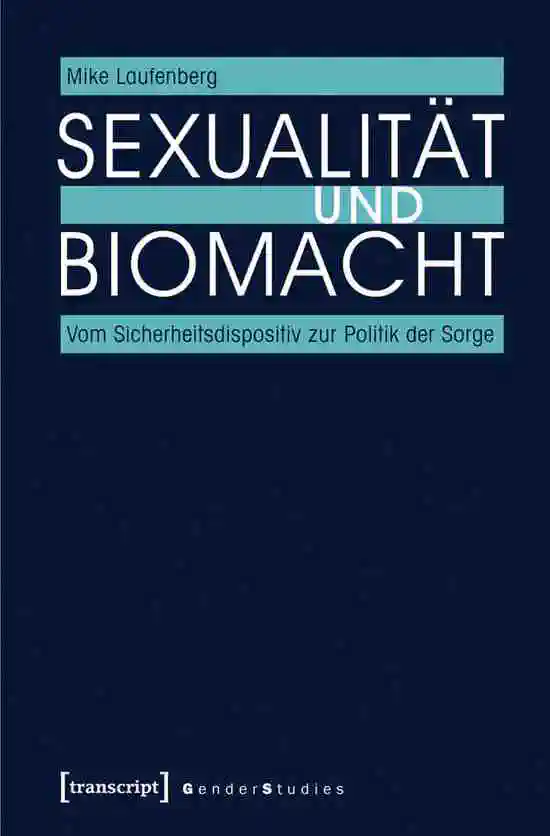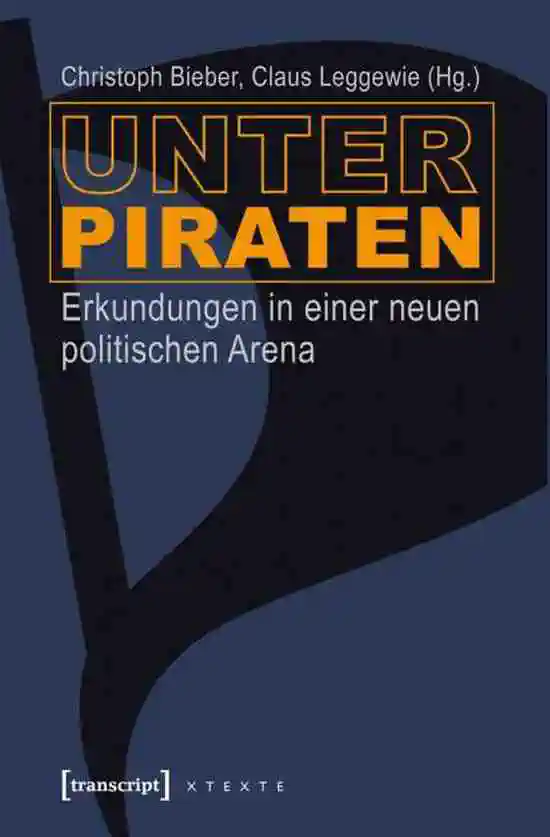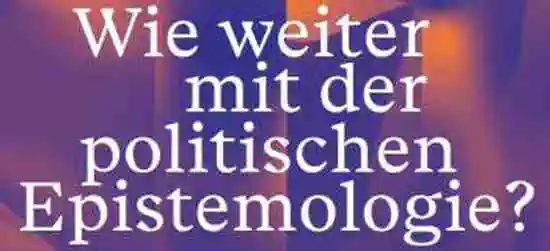
Political Epistemology
My research focus on political epistemology bundles different projects, for example on the effectiveness of knowledge, on the concept of normativity or on the history of political epistemology.
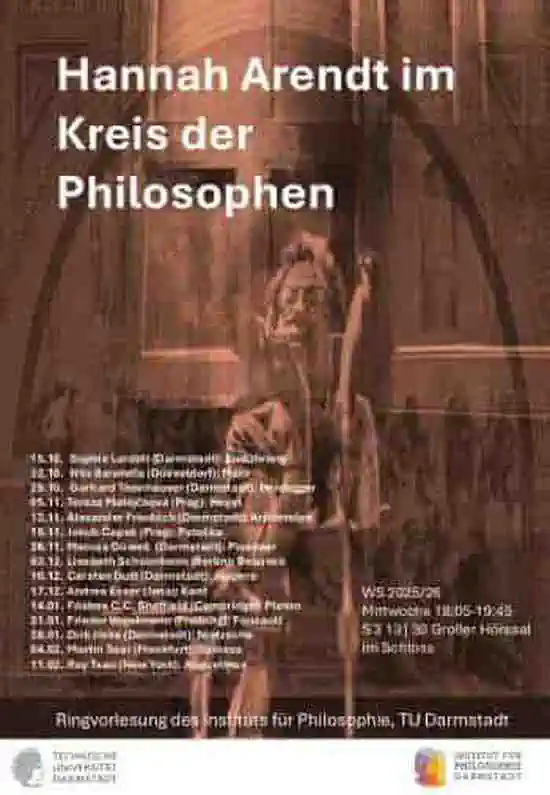
Arendt und Foucault: Politik und Wahrheit
Was tragen die Überlegungen von Hannah Arendt und Michel Foucault dazu bei, das Verhältnis von Politik und (Un)Wahrheit besser zu verstehen?

Vom Regen in die Traufe: Rechts- ohne Verantwortungskritik
Rechtskritik insistiert auf der Kritik auch der juristisch formierten Subjektivität. Sie muss transformieren, wer Recht von Gewalt zumindest entlasten will.

On Air
In October, Deutschlandfunk broadcast two programmes (in German) to which I contributed a few sentences.
Unwahrheit in der Politik
Vortrag im Rahmen der Master-Vorlesung Krise und Politik an der Christian-Albrechts-Universität zu Kiel.
Zwischen epistemischem Autoritarismus und epistemischem Quietismus: (Irr)Wege aus der „Wissenskrise“
Kommentar auf dem Panel „Erschütterte epistemische Autoritäten? Historische und aktuelle Perspektiven“
![Impure Reason, Not Non-Ideal Theory: For a New Line of Demarcation [in German]](/public/publication/2025_09_mills/featured_Mills_hu_59121f9c1559e53e.webp)
Impure Reason, Not Non-Ideal Theory: For a New Line of Demarcation [in German]
In this chapter, I argue against using the distinction between ideal and non-ideal theory in favour of the distinction between idealistic and materialistic philosophy.

Political Epistemology Against Fascism: Eleven Theses
A talk on the double meaning of “political” in political epistemology, which does not only inquire into the epistemic dimension of political events and developments but is itself politically engaged philosophy.
Responsibility as a Concept for Social Obligations [in German]
A talk on the conceptual history of “responsibility” in the lectures series of the Forschungskolloquium Zeitgeschichte.
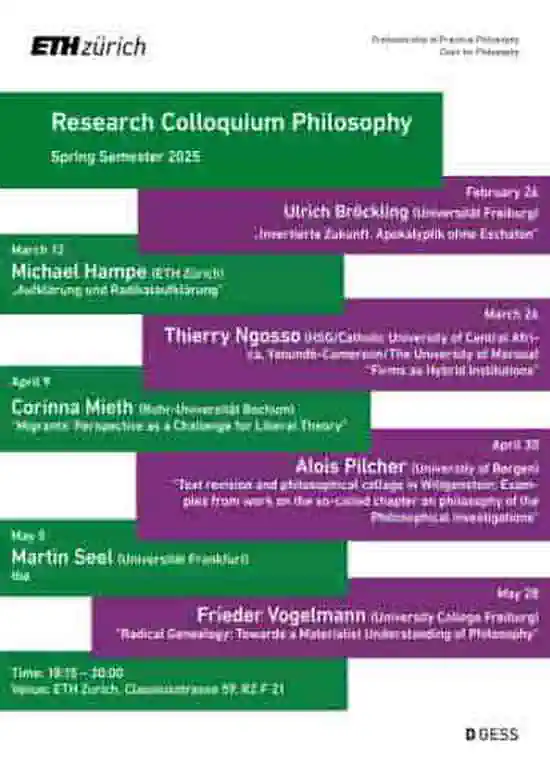
Radical Genealogy: Towards a Materialist Understanding of Philosophy
Genealogy has become a lively debated method but is currently stripped from some of its defining features: (a) the destruction of the origin; (b) the emphasis on conflicts in which ideas, concepts and practices emerge; (c) the spotlight on the bodies on which this violent history leaves its mark.
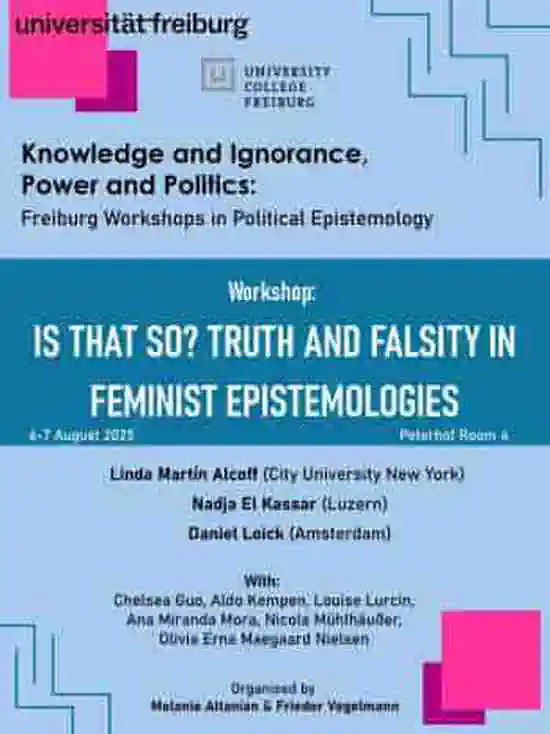
Workshop Is that so? Truth and Falsity in Feminist Epistemology
A two-day workshop in Freiburg on concepts of truth and falsity in Feminist Epistemology.
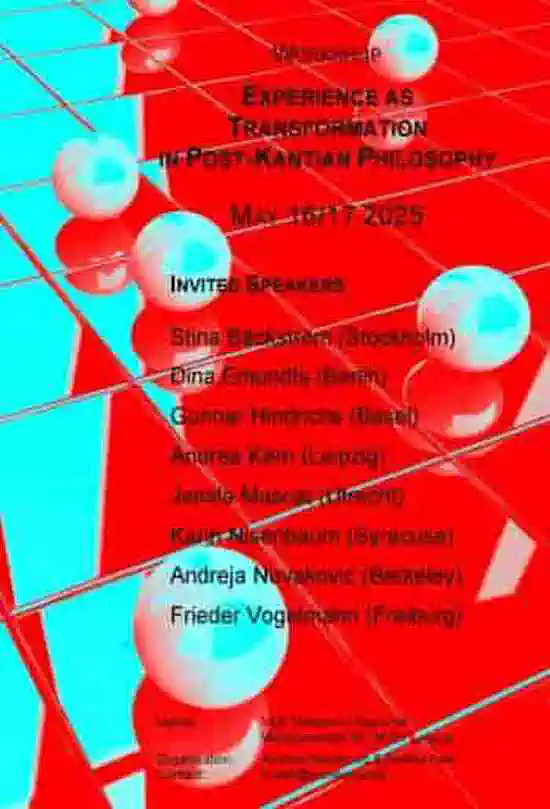
Experience as a Subject-Transforming Force: A Foucauldian Perspective
A talk on Foucault’s concepts of experience.

Live-Podcast with Jan Groos of Future Histories
Auf der Tagung Politische Öffentlichkeit: Strukturen der DVPW-Theoriesektion in Erfurt hab ich mit Jan Groos von Future Histories über politische Öffentlichkeit gesprochen: Über mediale und ökonomische Bedingungen kapitalistischer Ressentimentbewirtschaftung, das teils freiwillige, teils aufgezwungene Einüben faschistischer Denk- und Sprechweisen sowie die Frage, welche Rolle eine politische Epistemologie für die Analyse spielen kann.

Introduction to the Philosophy of Science
Please read the syllabus carefully!
The lecture introduces students to philosophy of science by looking at the most important problems and debates: What are sciences, and how are they related to philosophy? How do scientific explanations work? Are there laws of nature? What roles do empirical accuracy, curiosity, diversity and other values play in scientific practices? Does science discover what is real?
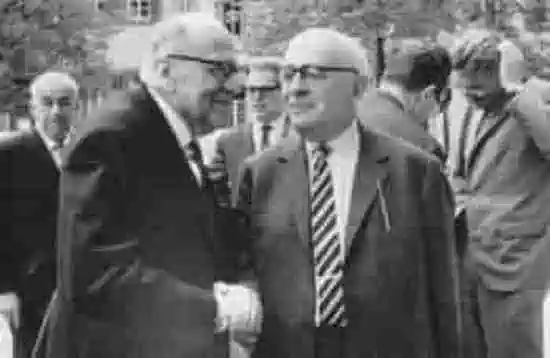
Emancipation by Theory? Topics from Frankfurt School Critical Theory
Bitte lesen Sie den Seminarplan sorgfältig!
This seminar will introduce students to early Frankfurt School Critical Theory and its subsequent developments. While a comprehensive overview is impossible in just one semester, we will cover a mixture of canonical and less well-known topics relevant for the contemporary debates in critical theory. The seminar will focus four core aspects:
![Feminist Epistemologies [in German]](/public/teaching/2025/2025_sose_feministische-epistemologie/featured_fe_hu_4606e8f88ee086da.webp)
Feminist Epistemologies [in German]
Bitte lesen Sie den Seminarplan sorgfältig!
Feministische Erkenntnistheorie benennt ein weites Feld von Epistemologien, die bei allen Unterschieden drei Gemeinsamkeiten haben: Erstens gehen sie davon aus, dass epistemische Phänomene – Überzeugungen, Wissen, Rechtfertigungen usw. – situiert sind, d.h. eingebettet in soziale Praktiken und nicht einfach von diesen ablösbar. Im Gegensatz zu traditionellen Erkenntnistheorien verbieten sich daher beispielsweise Definitionen von Wissen, die ein generisches, abstraktes Subjekt voraussetzen.

Kaleidoscope. Colloquium for Alternative Epistemologies
The aim of this colloquium is to discuss epistemologies beyond the beaten tracks of European philosophy. This does not mean to neglect ideas from classical “western” epistemology wholesale, but to bring them into dialogue with epistemological arguments from other traditions of thought. Thus, philosophy has to consider texts and authors from beyond its canon and seek interdisciplinary exchange. The colloquium provides a room for doing so – what happens in it will be up to those who come.
The Public – Live Podcast Future Histories [in German]
A conversation with Jan Groos of Future Histories about the public at the conference Politische Öffentlichkeit: Strukturen in Erfurt.
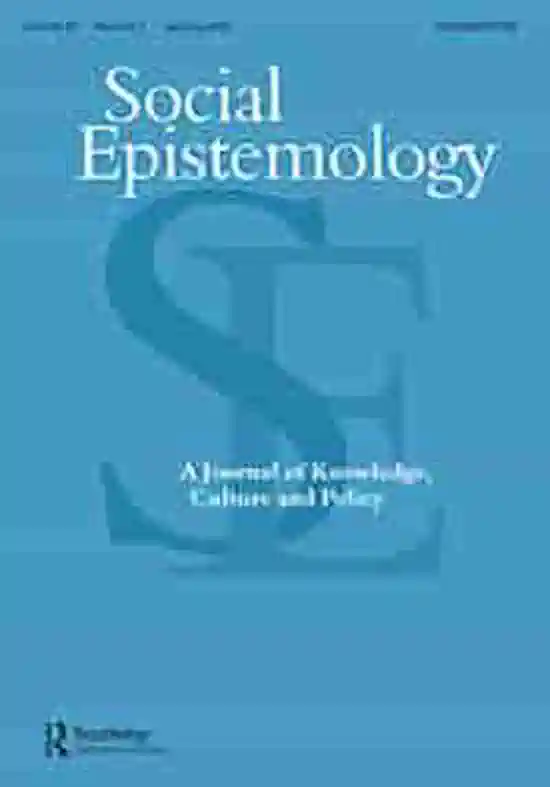
Truth as Force: A Materialist Picture
In this article, I argue for a materialist picture of truth as a force that emerges from social practices but is not reducible to them, that is weak in comparison to other forces, that exclusively targets subjectivities and that has a ‘ratchet effect’ on these subjectivities.
Political Epistemology without Apologies [in German]
The argument presented in the talk aims to show that intertwining epistemology with social and political theory must transforms of both sub-disciplines, due to three basic requirements: minimal materialism, radical self-reflection and epistemic non-sovereignty.
![Political Epistemology without Apologies [in German]](/public/event/2025/2025-01-28_leipzig_pe/featured_philkoll_pic_hu_a93637449bff1bd.webp)
Political Epistemology without Apologies [in German]
The argument presented in the talk aims to show that intertwining epistemology with social and political theory must transforms of both sub-disciplines, due to three basic requirements: minimal materialism, radical self-reflection and epistemic non-sovereignty.
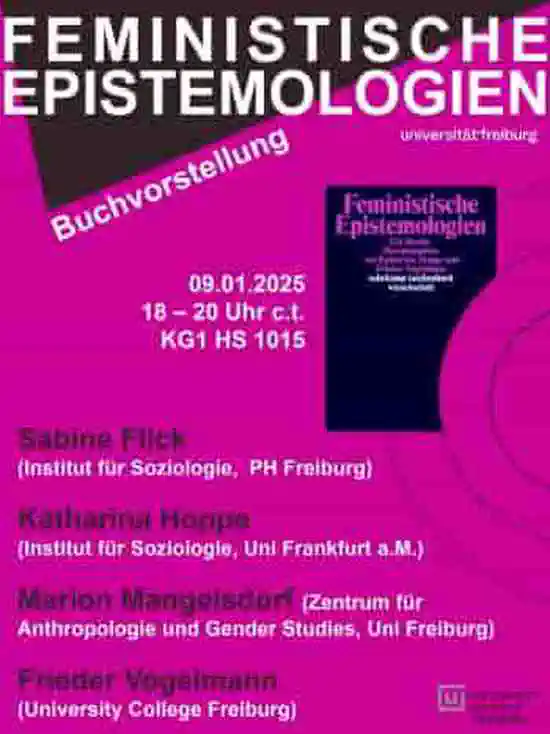
Buchvorstellung Katharina Hoppe/Frieder Vogelmann (Hrsg.): Feministische Epistemologien. Ein Reader
Anlässlich der Publikation von des Bandes Feministische Epistemologien. Ein Reader diskutieren Sabine Flick (PH Freiburg), Katharina Hoppe (Universität Frankfurt am Main), Marion Mangelsdorf (Universität Freiburg) und Frieder Vogelmann (Universität Freiburg) über feministische Erkenntnistheorien und alles, was dazugehört.
Zum Beispiel. Über philosophische Fantasie
In diesem Vortrag untersuche ich verschiedene Varianten von Beispielkritik in der Philosophie, wobei ich mich auf die Art von Wirklichkeit konzentriere, die Beispiele in die Philosophie einführen. Kritik verdienen sie vor allem, so möchte ich zeigen, wenn sie diese Wirklichkeit vorschnell von Konflikt und Kontingenz reinigen.
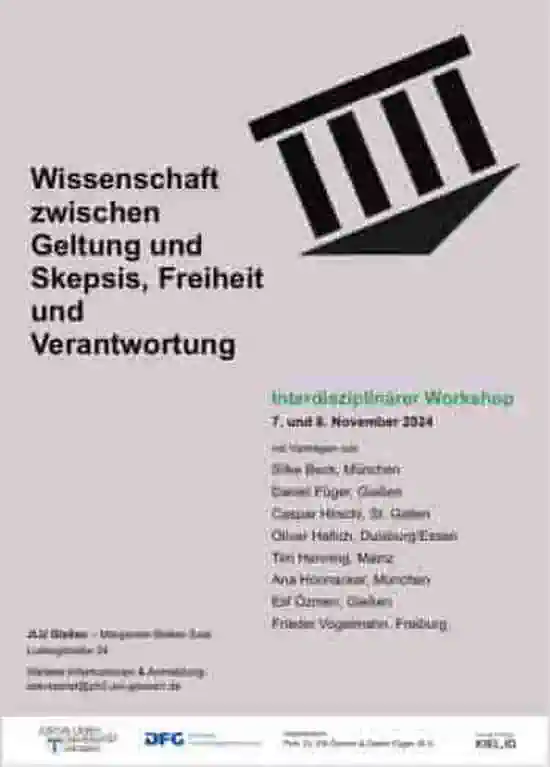
Die Wahrheit und ihre Geltung. Aspekte einer Genealogie von Normativität
Der Vortrag untersucht nicht, warum wissenschaftliche Erkenntnisse gelten, sondern woher die Idee kommt, sie als geltend zu beschreiben.
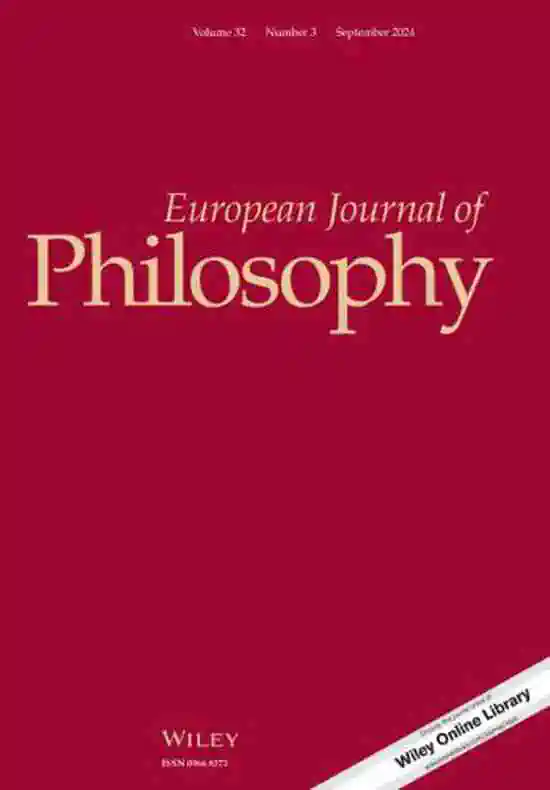
Political Epistemology without Apologies
In this article, I argue for a broad but critical conception of political epistemology characterised by three foundational commitments: minimal materialism, radical self-reflexivity, and epistemic non-sovereignty.

Umkämpfte Wissenschaften – zwischen Idealisierung und Verachtung
Prof. Dr. Frieder Vogelmann (Albert‐Ludwigs‐Universität Freiburg) wird sein Buch „Umkämpfte Wissenschaften“ und ihre Bedeutung in der Gesellschaft vorstellen. Der Vortrag findet am Montag, 21. Oktober 2024, 19 Uhr im Vortragssaal des Stadtarchivs Stuttgart statt.
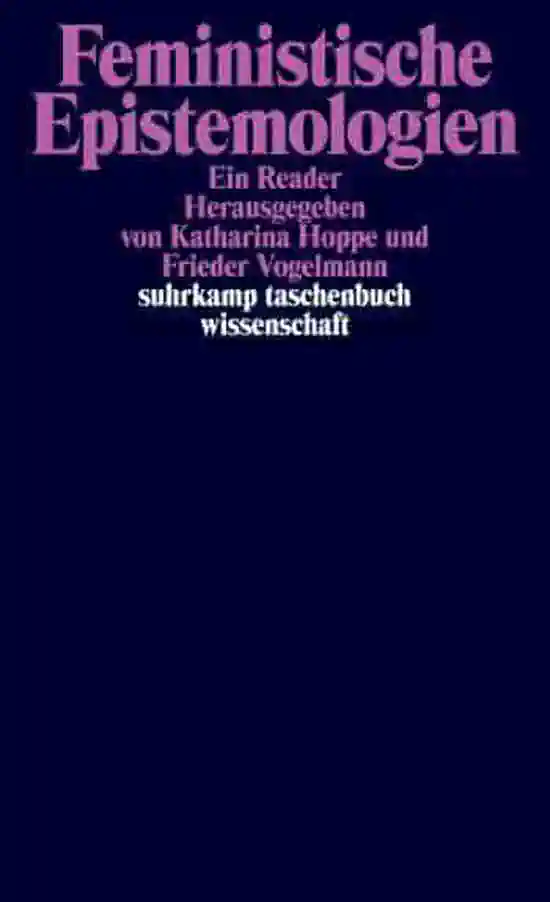
Feministische Epistemologien. Ein Reader
Der Reader versammelt klassische und aktuelle Texte der feministischen Erkenntnis- und Wissenschaftstheorien, viele davon erstmals in deutscher Übersetzung.
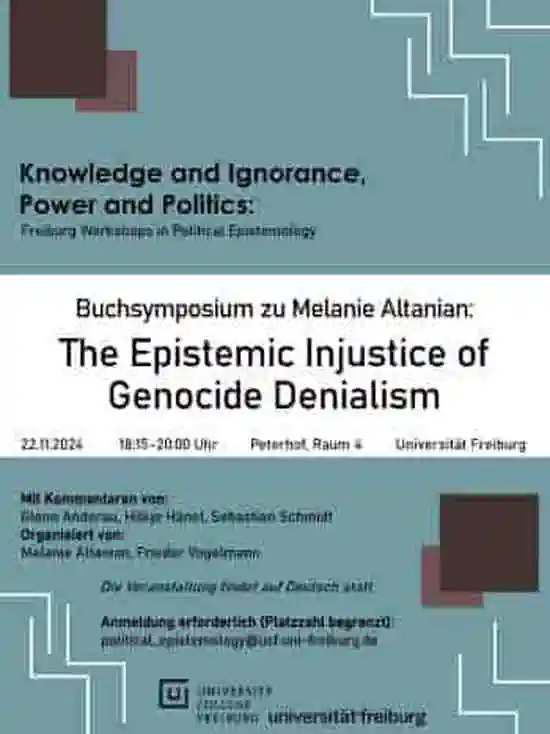
Book symposia on Melanie Altanian: The Epistemic Injustice of Genocide Denialism
Melanie Altanian in discussion with Glenn Anderau (University of Zürich), Hilkje Hänel (University of Potsdam) und Sebastian Schmidt (University of Zürich).

Genealogy as a Philosophical Method: A Radical View
Genealogy has become a lively debated method but is currently stripped from some of its defining features: (a) the destruction of the origin; (b) the emphasis on conflicts in which ideas, concepts and practices emerge; (c) the spotlight on the bodies on which this violent history leaves its mark.

Introduction to Epistemology
Course Description
Please read the syllabus carefully!This course offers an overview of contemporary epistemology with a primer on the basics of philosophical logic (propositional and predicate logic). At the same time, it introduces non-philosophy students to philosophy in the sense of working on conceptual problems, questions and arguments.

Kaleidoscope. Colloquium for Alternative Epistemologies
The aim of this colloquium is to discuss epistemologies beyond the beaten tracks of European philosophy. This does not mean to neglect ideas from classical “western” epistemology wholesale, but to bring them into dialogue with epistemological arguments from other traditions of thought. Thus, philosophy has to consider texts and authors from beyond its canon and seek interdisciplinary exchange. The colloquium provides a room for doing so – what happens in it will be up to those who come.
Sozial- und geisteswissenschaftliche Neuerscheinungen besprechen. Eine Schreibwerkstatt
Course Description
Buchrezensionen sind ein wichtiges Medium einer Public Sociology und zugleich ein ausgezeichnetes Lernfeld für wissenschaftliches Schreiben. Im Rahmen dieses als Schreibwerkstatt angelegten Seminars sollen gemeinsam sozial- und geisteswissenschaftliche Neuerscheinungen diskutiert und von den Teilnehmerinnen und Teilnehmern rezensiert werden. Grundlage der Teilnahme ist die Bereitschaft, selbst Buchbesprechungen zu verfassen und die eigenen Texte im Seminar zur Diskussion zu stellen.

Why? Argumentation in Theory and Practice
Course Description
Please read the syllabus carefully!Like children, scholarly work is driven by why-questions—and by giving answers to these questions. More than that: The structure and content of academic texts should answer why-questions: it should give arguments for the concepts used or discarded, the positions defended or attacked, for the interpretations advanced or undermined. The same holds true of essays, term papers and virtually any text students are asked to write at the university. However, it is surprisingly difficult to give good–sound, easy to understand—arguments. It is even harder to come up with a structure for texts that supports the arguments given in it.
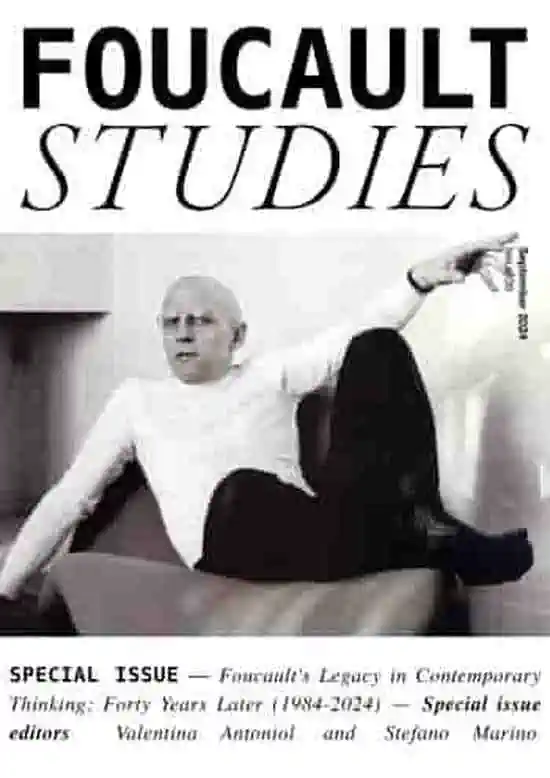
Thinking and Unthinking the Present: Philosophy after Foucault
In this article, Martin Saar and I explore what a contemporary philosophical practice after and following Foucault might look like.
![Evidence, Science, Politics. On the Dangers of Generalizations [in German]](/public/publication/2024_08_evidenzen/featured_cover_hu_3b1572f19daeda5.webp)
Evidence, Science, Politics. On the Dangers of Generalizations [in German]
Nobody would call for a policy that is not based on evidence, but instead completely disregards whether its decisions can be implemented in the given situation or whether they will actually have the desired effects. Or do they?
![Populism [in German]](/public/publication/2024_08_gg2/featured_gg_cover_hu_1e8b27ca6f899ca6.webp)
Populism [in German]
A short essay on the concept of “populismus” as part of the glossarium of the present.
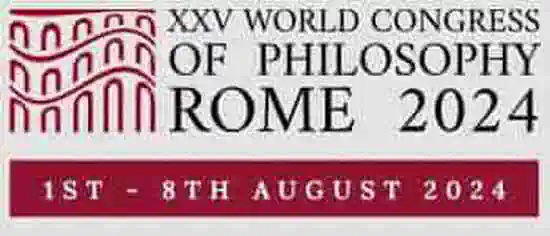
Do We Need a “European” Political Epistemology?
We crtically assess the recent idea of a “European” political epistemology.
![Dig and Grab: Philosophising with and after Foucault [in German]](/public/event/2024/2024-07-03_fouc_ffm/featured_ffm_fouc_hu_b55fb290e75b52d8.webp)
Dig and Grab: Philosophising with and after Foucault [in German]
In this talk, I present an interpretation of Michel Foucault’s philosophical method.
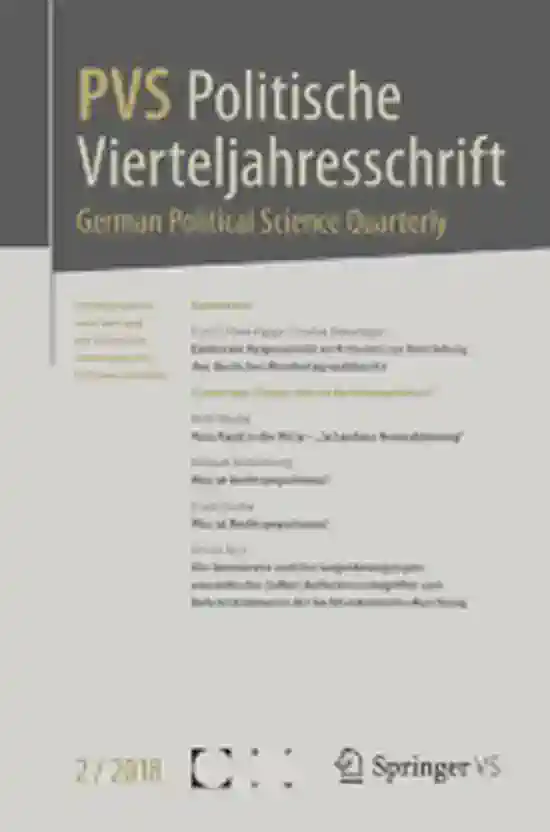
Does Diversity Trump Ability?
A roundtable on the “diversity trumps ability” (DTA) theorem by the economists Lu Hong and Scott E. Page (2004) with Peter Niesen, Kai Spiekermann, Lisa Herzog, Charles Girard & Frieder Vogelmann.
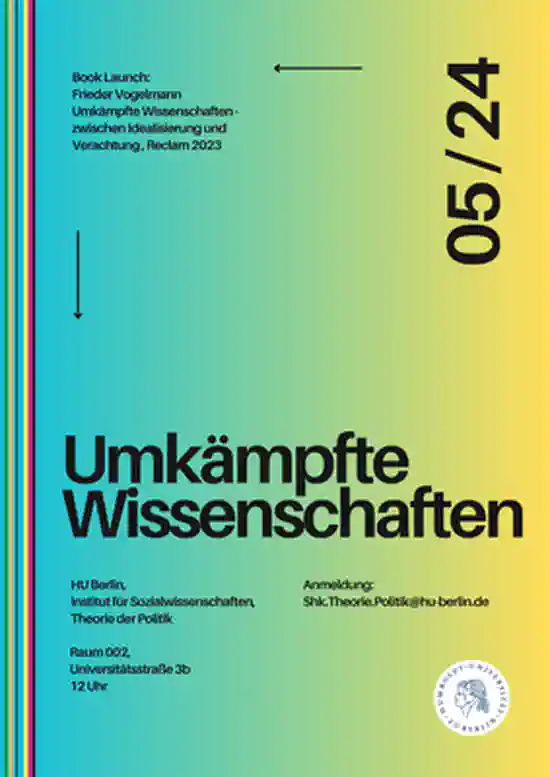
Moved: Book Launch Umkämpfte Wissenschaften – zwischen Idealisierung und Verachtung
Book Launch at the Research and Teaching Area Political Theory at Humboldt University Berlin.
Wahrheit und Praxis – Schwierige Verhältnisse [in German]
Talk and roundtable discussion with Prof. Dr. Christian Meyer & Prof. Dr. Sven Reichardt (Universiy Konstanz).
Umkämpfte Wissenschaften – zwischen Idealisierung und Verachtung
Gegen den nostalgischen Positivismus, der die »spontane Philosophie« der Wissenschaften dominiert, argumentiere ich für ein realistisches Verständnis wissenschaftlicher Praktiken – das allerdings die Umstellung auf eine nicht-souveräne Erkenntnistheorie erfordert, deren Grundidee ich in dem Vortrag skizziere.
![Roundtable “Fact and Trouble -- Democracy in Focus” [in German]](/public/event/2024/2024-05-30_leipzig/featured_efbi_hu_ac0f06f57f6f6733.webp)
Roundtable “Fact and Trouble – Democracy in Focus” [in German]
Roundtable at the congress Demokratie in Sachsen at the Else Frenkel-Brunswik Institut.
![Contested Sciences, Fragile Truths: On the Merits of a Non-Sovereign Epistemology [in German]](/public/event/2024/2024-05-22_goettingen/featured_goetiingen_hu_859165b2a6c55ccf.webp)
Contested Sciences, Fragile Truths: On the Merits of a Non-Sovereign Epistemology [in German]
Against the nostalgic positivism that dominates the currrent “spontaneous philosophy of science”, I argue for a realistic understanding of scientific practices. That, however, requires a non-sovereign epistemology, the outlines of which I will sketch in this talk.
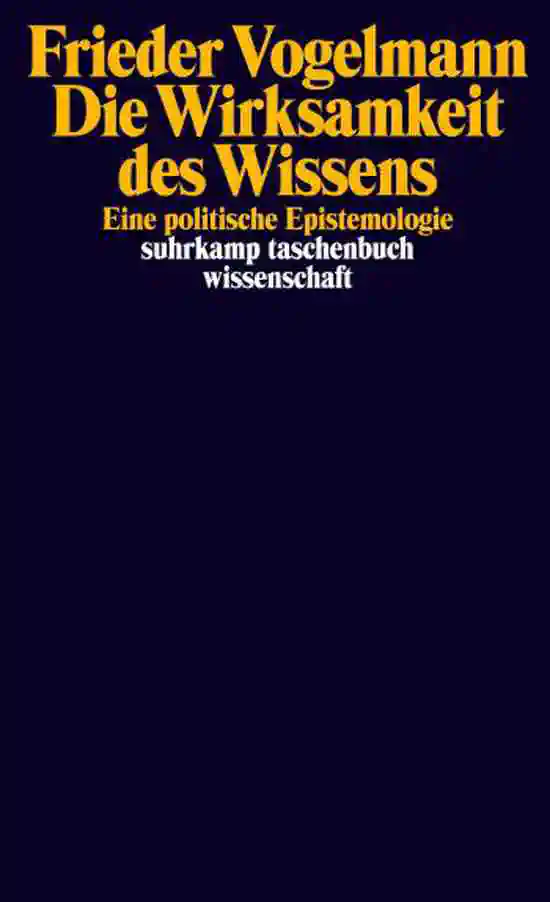
First english review of Die Wirksamkeit des Wissens
Regina Schidel reviews my book in the European Journal of Philosophy.
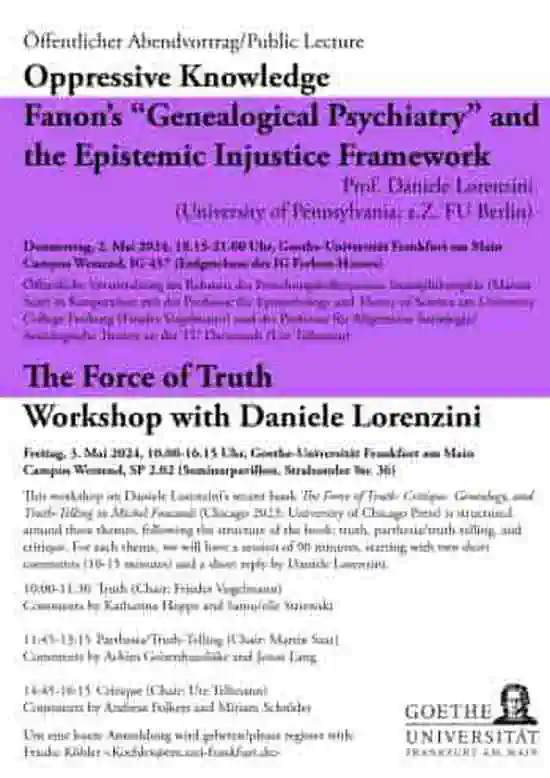
Vortrag und Workshop mit Daniele Lorenzini
Am 2. und 3. Mai 2024 kommt Daniele Lorenzini(University of Pennsylvania; z.Z. FU Berlin) nach Frankfurt für einen Vortrag und einen Workshop. Beide Events finden im Rahmen des Forschungskolloquiums Sozialphilosophie (Martin Saar) statt in Kooperation mit der Professur für Epistemology and Theory of Science am University College Freiburg (Frieder Vogelmann) und der Professur für Allgemeine Soziologie/Soziologische Theorie an der TU Darmstadt (Ute Tellmann)
![Postfoundationalism. Workshop on the book project by Sara Gebh & Sergej Seitz [in German]](/public/event/2024/2024-04-19_wien_postfundamentalismus/featured_plakat-pofu-1_1_hu_4f4cd47f6a864ae7.webp)
Postfoundationalism. Workshop on the book project by Sara Gebh & Sergej Seitz [in German]
With talks by Viktoria Huegel (Wien), Martin Nonhoff (Bremen), Rieke Trimçev (Erlangen) and Frieder Vogelmann (Freiburg).
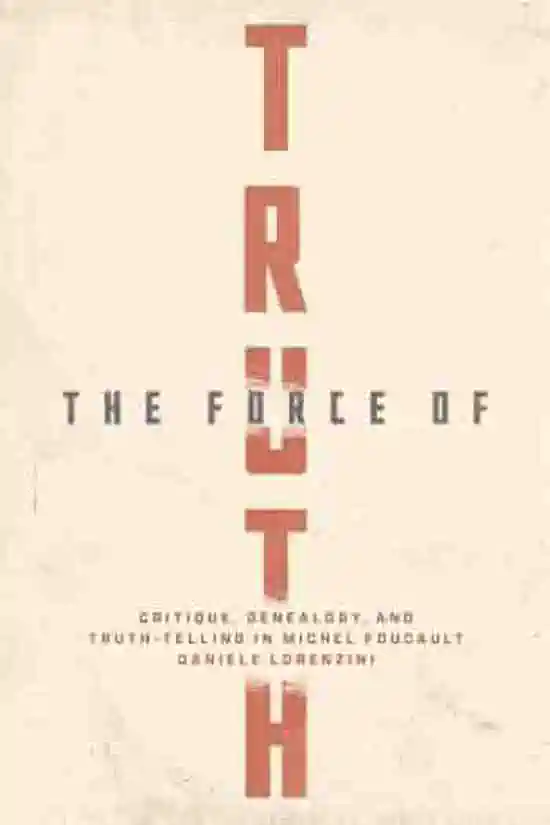
Review of Daniele Lorenzini: The Force of Truth: Critique, Genealogy, and Truth-Telling in Michel Foucault. Chicago/London: The University of Chicago Press, 2023.
Lorenzini elucidates Foucault’s lifelong project of a history of truth, situates Foucault’s late analysis of parrhesia within that …

Introduction to the Philosophy of Science
Please read the syllabus carefully!
The lecture introduces students to the philosophy of science by looking at the most important problems and debates: What are sciences, and how are they related to philosophy? How do scientific explanations work? Are there laws of nature? What roles do objectivity, rationality and other values play in scientific practices? Does science discover what is real?

Kaleidoscope. Colloquium for Alternative Epistemologies
The aim of this colloquium is to discuss epistemologies beyond the beaten tracks of European philosophy. This does not mean to neglect ideas from classical “western” epistemology wholesale, but to bring them into dialogue with epistemological arguments from other traditions of thought. Thus, philosophy has to consider texts and authors from beyond its canon and seek interdisciplinary exchange. The colloquium provides a room for doing so – what happens in it will be up to those who come.
![Knowledge, Sexuality and Identities. Linda Martín Alcoffs radical contemporary philosophy [in German]](/public/teaching/2024/2024_sose_alcoff/featured_Alcoff_hu_c3d3d35f56db1fd9.webp)
Knowledge, Sexuality and Identities. Linda Martín Alcoffs radical contemporary philosophy [in German]
Obwohl ihr Werk in der deutschsprachigen Philosophie erst seit wenigen Jahren verstärkt diskutiert wird, zählen Linda Martín Alcoffs Bücher und Aufsätze seit den 1990er Jahren zu den innovativsten Beiträgen zu einer radikal auf die Gegenwart bezogenen Philosophie. Diese Bezeichnung erscheint uns passend: nicht, weil Alcoff in ihren philosophischen Texten die Geschichte (nicht nur der Philosophie) ignorieren würde, sondern weil sie jeweils von real existierenden sozialen und gesellschaftlichen Bedingungen ausgeht. Die im Seminartitel genannten drei Themen sind dafür gute Beispiele und deuten zudem das Spektrum von Alcoffs Arbeiten an. Sie alle eint die sozial-situierte Herangehensweise, die historische, materielle und strukturelle Aspekte miteinbezieht:
Bloß keine Idee zur beherrschenden werden lassen
From Konrad Lorenz to Protagoras: a lecture by Paul Feyerabend from the year 1985.
Review of Paul Feyerabend (2023): Historische Wurzeln moderner Probleme. Vorlesung an der ETH Zürich 1985. Berlin: Suhrkamp. Published in Frankfurter Allgemeine Zeitung, March 12, 2024.
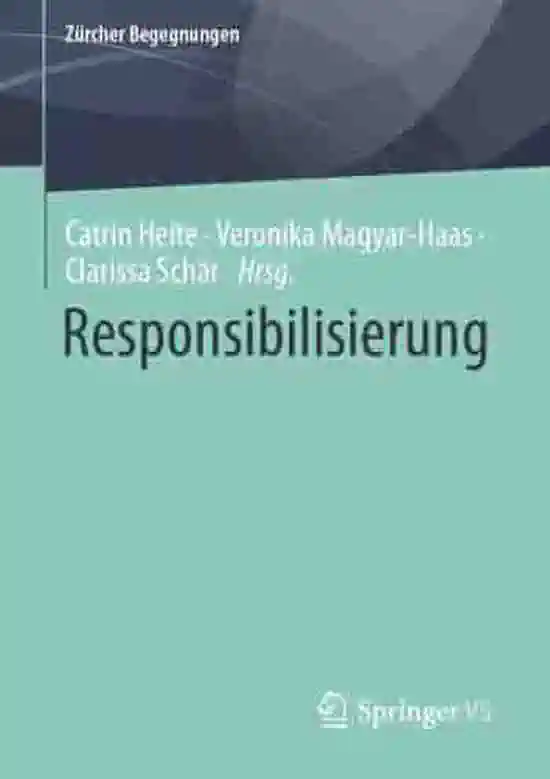
Against Responsibilisation: On the Domination of Concepts
Responsibilisation of thought means the domination of a certain usage of “responsibility” that hides the objectification of power relations within subjects in order to let them feel sovereign despite all their limitations.
Book Presentation: Umkämpfte Wissenschaften – zwischen Idealisierung und Verachtung [in German]
A discussion between Frieder Vogelmann and Melanie Altanian about the new book Umkämpfte Wissenschaften – zwischen Idealisierung und Verachtung in jos fritz bookshop in Freiburg.
![Contested Sciences -- between Idealisation and Disdain [in German]](/public/event/2023/2023-12-12_luzern/featured_Philkoll_HS23_web_1_hu_4b42ab4b16e47546.webp)
Contested Sciences – between Idealisation and Disdain [in German]
Against science denialism and uncritical idealisation of the sciences, I argue for a realistic understanding of scientific practices.
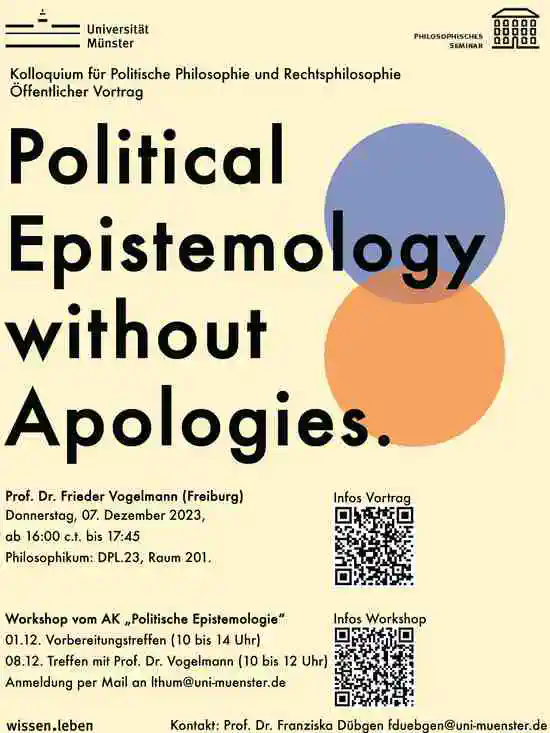
Political Epistemology without Apologies
The argument presented in the talk aims to show that intertwining epistemology with social and political theory must transforms of both sub-disciplines, due to three basic requirements: minimal materialism, radical self-reflection and epistemic non-sovereignty.
![Situated, Not Located: The Institute for Social Research as Impossible Place for Critical Theory [in German]](/public/publication/2023_10_ifs_100/featured_westend_cover_hu_59a90742d4d09ecf.webp)
Situated, Not Located: The Institute for Social Research as Impossible Place for Critical Theory [in German]
My contribution to the 100th anniversary of the Institute for Social Research in Frankfurt considers the necessary yet unrealisable expectations towards an institutionalisation of critical theory.

Diskussionsabend Umkämpfte Wissenschaften – zwischen Idealisierung und Verachtung
Eine Diskussion zwischen Frieder Vogelmann und Regina Schidel über das Buch Umkämpfte Wissenschaften – zwischen Idealisierung und Verachtung in der Karl Marx Buchhandlung in Frankfurt am Main.

New Review of Die Wirksamkeit des Wissens
Jan Slaby has written a review of my book for the Deutschen Zeitschrift für Philosophie.
![Contested Sciences -- Between Idealisation and Contempt [in German]](/public/media/Vogelmann_reclam_uw_cover_hu_597e6a87a36807ad.webp)
Contested Sciences – Between Idealisation and Contempt [in German]
Against the twin trends of science denialism and of a dangerously one-dimensional understanding of sciences, Vogelmann argues for a more realistic account of scientific practices.

Forschungspraktiken erforschen: Zur kritischen Reflexion akademischer Wissensproduktion
Die Ringvorlesung wirft aus ganz unterschiedlichen Perspektiven kritische Blicke auf akademische Praktiken.
![How to Cope With Untruth in Politics? [in German]](/public/event/2023/2023-10-10_basel/featured_basel_jenseits_pf_hu_a0057b829fb99b51.webp)
How to Cope With Untruth in Politics? [in German]
How should we react to untruths in politics, if we do not want to affirm the false diagnosis of a “posttruth era”?
Political Epistemology without Apologies
The argument presented in the talk aims to show that intertwining epistemology with social and political theory must transforms of both sub-disciplines, due to three basic requirements: minimal materialism, radical self-reflection and epistemic non-sovereignty.
![Foucault and Ontology [in German]](/public/publication/2023_09_saar_vogelmann/featured_cover_leben_regieren_hu_ff3a176e45c920b7.webp)
Foucault and Ontology [in German]
In our contribution, Martin Saar and I discuss how Michel Foucault’s philosophical thought stands vis-à-vis ontology.

Im Radio: Wissenschaft als Mittel gegen das »postfaktische Zeitalter«?
Im Hörsaal von Deutschlandfunk Nova wird am 1. Oktober 2023 die Aufnahme meines Vortrags »Wissenschaft als Mittel gegen das ›postfaktische Zeitalter‹?« ausgestrahlt.

Foucault Today: History, Politics, Philosophy
Please read the syllabus carefully!
Almost forty years after his early death, Michel Foucault is still one of the towering figures of the 20th century in the humanities and social sciences. A controversial thinker, his works continue to polarise scholars. The seminar offers an in-depth introduction to his unique way of intertwining wide-ranging philosophical ideas with detailed histories which un-earth “subjugated knowledge” in the service of sharp political critique.
Kaleidoscope. Colloquium for Alternative Epistemologies
The aim of this colloquium is to discuss epistemologies beyond the beaten tracks of European philosopy. This does not mean to neglect ideas from classical “western” epistemology wholesale, but to bring them into dialogue with epistemological arguments from other traditions of thought. Thus, philosophy has to consider texts and authors from beyond its canon and seek interdisciplinary exchange. The colloquium provides a room for doing so – what happens in it will be up to those who come.

Knowledge and Its Problems: An Introduction to Epistemology
Please read the syllabus carefully!
This course offers an overview of contemporary epistemology with a primer on the basics of philosophical logic (propositional and predicate logic). At the same time, it introduces non-philosophy students to philosophy in the sense of working on conceptual problems, questions and arguments.
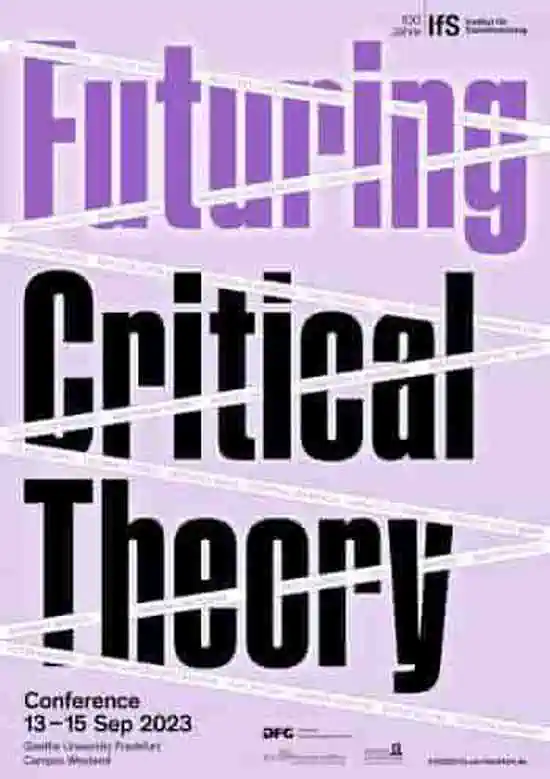
The Form of Critical Theories, or Why Political Epistemology Matters
My contribution the international conference Futuring Critical Theory at the Institute for Social Research in Frankfurt/Main, on the occasion of its 100th anniversary.

There Is No Contradiction: True and Effective Knowledge
In this talk, I will show how philosophy produces the widespread, if often implicit, claim that there is a contradiction between the truth and the effectiveness of knowledge. Once we see how the supposed contradiction is constituted, we will be able to free ourselves from it and arrive at a concept of knowledge as effective and true.
Whose Freedom? What Science? Requirements for Conceptions of Academic Freedom [in German]
What are the requirements for conceptions of academic freedom beyond a narrow legal conceptualisation?
Panel Discussion: Politics and Science – Teamplayer or Adversaries? [in German]
How does politics relate to science – and should politics relate to science?
![Wisdom’s Friend and the Whole World’s Enemy? Philosophy with, in and against the World [in German]](/public/publication/2023_dzphil/featured_pirate-Ship_hu_a42aab04b2929dac.webp)
Wisdom’s Friend and the Whole World’s Enemy? Philosophy with, in and against the World [in German]
The article, in which I inquire into the appropriate relationship between the world and philosophy, is based on my inaugural lecture at the University of Freiburg on 21 July 2022.
What Science? Whose Freedom? Requirements for Conceptions of Academic Freedom
What are the requirements for conceptions of academic freedom beyond a narrow legal conceptualisation?
Science as Antidote to the “Era of Post-Truth”? [in German]
Die populäre Diagnose eines »postfaktischen Zeitalters« trifft auf gravierende historische, begriffliche und erkenntnistheoretische Einwände und verbreitet ein idealisiertes Bild einer einheitlichen Wissenschaft. Dagegen entwickele ich im Vortrag eine Alternative.
![New Book in Autumn! [in German]](/public/media/Vogelmann_reclam_uw_cover_hu_597e6a87a36807ad.webp)
New Book in Autumn! [in German]
My new book Contested Sciences – Between Idealisation and Contempt comes out in the [Was bedeutet das alles?]-series with Reclam on 13 October 2023.
The Effectivity of Knowledge: Workshop with Frieder Vogelmann in Potsdam
A Workshop on my book Die Wirksamkeit des Wissens. Eine politische Epistemologie at the Potsdam Center for Post-Kantian Philosophy.
![How to Translate Science in the Public? [in German]](/public/post/2023/2023-03-20_sein_streit/featured_sein_streit_hu_b89d1eb0abdd3425.webp)
How to Translate Science in the Public? [in German]
In the radio show Sein und Streit from 19 March, I spoke with Catherine Newmark about our understanding of the sciences and their relation to politics.

Epistemic Injustice: Interdisciplinary Approaches
Please read the syllabus carefully!
In the most basic sense, “epistemic injustice” means that someone is wronged in her capacity as a knower. Examples abound: attributing less credibility to certain knowers because of their gender, race or class, silencing others’ voices in specific social situations, or hindering whole communities to develop an adequate vocabulary to describe their social suffering are just a few forms that epistemic injustice can take.
Kaleidoscope. Colloquium for Alternative Epistemologies
The aim of this colloquium is to discuss epistemologies beyond the beaten tracks of European philosopy. This does not mean to neglect ideas from classical “western” epistemology wholesale, but to bring them into dialogue with epistemological arguments from other traditions of thought. Thus, philosophy has to consider texts and authors from beyond its canon and seek interdisciplinary exchange. The colloquium provides a room for doing so – what happens in it will be up to those who come.
![Nothing But the Truth. Theories of Truth in the 20<sup>th</sup> and 21<sup>st</sup> Century [in German].](/public/teaching/2023/2023_sose_wahrheitstheorien/featured_What_is_truth_hu_5dff9a1ad8ee856c.webp)
Nothing But the Truth. Theories of Truth in the 20th and 21st Century [in German].
Bitte lesen Sie den Seminarplan aufmerksam, bevor Sie Fragen dazu stellen!
»›Was ist Wahrheit?‹ sagte Pilatus spöttisch und wollte nicht bleiben, um die Antwort zu hören.« (John L. Austin, »Wahrheit«, 1950)

Introduction to the Philosophy of Science
The lecture introduces students to the philosophy of science by looking at the most important problems and debates: What are sciences, and how are they related to philosophy? How do scientific explanations work? Are there laws of nature? What roles do objectivity, rationality and other values play in scientific practices? And does science discover what is real?
![Workshop *Wie weiter mit der politischen Epistemologie?* [in German]](/public/post/2023/2023-06-01_wie-weiter-pe/featured_wie-weiter-pe_hu_d5a4a477b00fea53.webp)
Workshop Wie weiter mit der politischen Epistemologie? [in German]
A two-day workshop in Freiburg for discussing the present state and the potential future of political epistemology from all its different traditions, including postcolonial theory, feminist epistemology, critical theory and analytic epistemology.
Truth as Force: A Materialist Picture
Truth is a contested concept, yet that concept takes place in an idealist picture leading to a sovereign understanding of truth. In light of the problems it creates, I propose a materialist picture that helps us to understand the internal conception between truth and politics.

Evidenz, Wissenschaft, Politik. Über die Gefahr von Kollektivsingularen
Vortrag auf dem Workshop Welches Wissen (und welche Wissenschaft) braucht die Politik? Herausforderungen wissensbasierter Demokratie

Recording of the book presentation and discussion of Die Wirksamkeit des Wissens
The recording of the book presentation of Die Wirksamkeit des Wissens and its discussion with Ulrich Bröckling, Nadja Germann, Nicola Gess and Daniel Loick is now available on this page.
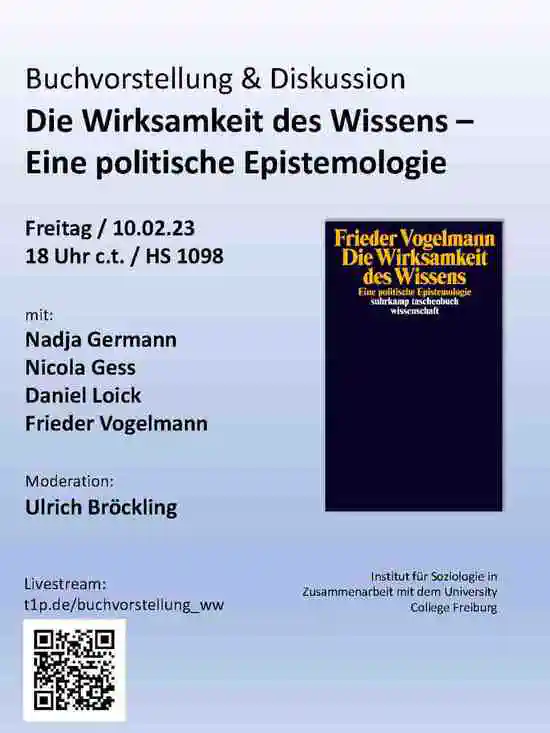
Die Wirksamkeit des Wissens. Buchvorstellung und Diskussion
Buchvorstellung und Diskussion mit Nadja Germann, Nicola Gess und Daniel Loick; moderiert von Ulrich Bröckling.
Unwahrheiten in der Politik: Ein Bestiarium
Vortrag im Rahmen der Vorlesungsreihe Im Dialog. Wissenschaften und ihr Publikum
“Wissen verändert uns”. Interview with Thomas Steiner
Frieder Vogelmann, interviewed by Thomas Steiner from Badische Zeitung
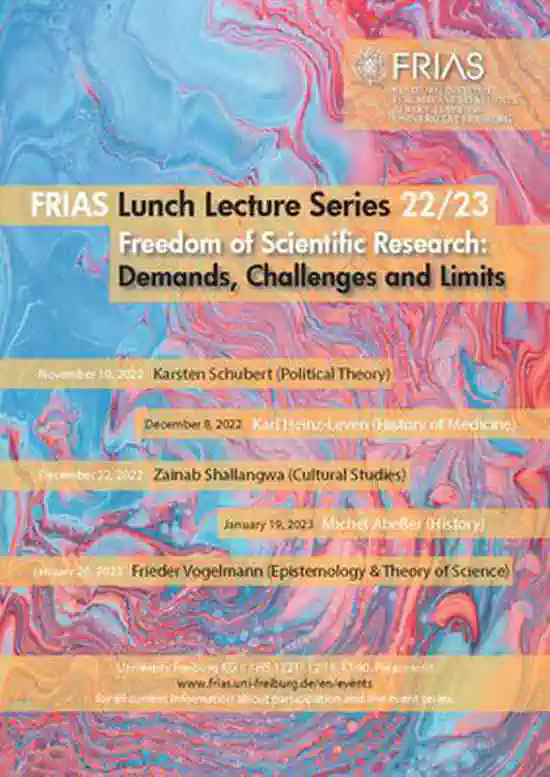
What Science? Whose Freedom? Mapping the Debates about Academic Freedom
What are the requirements for conceptions of academic freedom beyond a narrow legal conceptualisation?
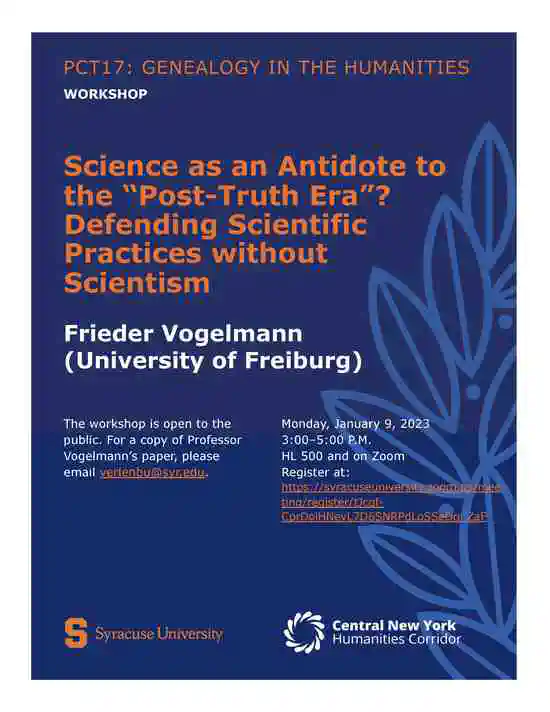
Science as an Antidote to the “Post-Truth Era”? Defending Scientific Practices without Scientism
How to defend scientific practices against the rise of untruth in politics without succumbing to scientism?
Truth as Force: A Materialist Picture
Truth is a contested concept, yet that concept takes place in an idealist picture leading to a sovereign understanding of truth. In the talk, I propose a materialist picture instead that helps us to understand the internal conception between truth and politics.
![Opponents, Elective Relatives -- Material? Foucault's Usage of the History of Philosophy [in German]](/public/event/2022/2022-12-12_duesseldorf_foucault/featured_cgw2020_final_hu_230375f9d4cfdb88.webp)
Opponents, Elective Relatives – Material? Foucault’s Usage of the History of Philosophy [in German]
Lecture for the lecture series “Michel Foucault und die Philosophiegeschichte”
Is Knowledge Power? An Interview with Florian Geisler [In German]
Wie wirken Wissensbestände wirklich auf Gesellschaft und Individuen ein? Frieder Vogelmann nimmt unsere Begriffe in seinem neuen Buch genauer in den Blick.

Two Interviews on Philosophy and Political Epistemology
For those who understand German, you can now listen to two podcast episodes on my new book and, more generally, on topics I am working on.
With the makers of Narabo, Lukas Kiemele and Roxana Rentsch, I chatted about my career path, philosophy, responsibility and political epistemology. Find all of that, and some video clips, in episode 23.
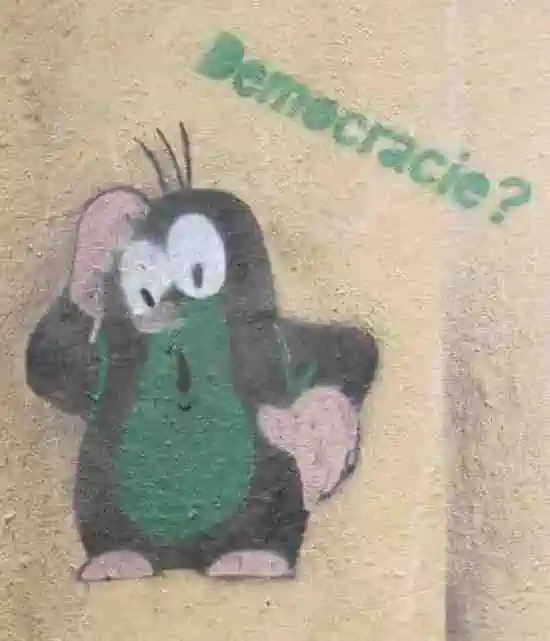
The Limits of Control. Was sollten radikaldemokratische Theorien leisten?
Talk at the conference “Transformations of the Political. Radical Democratic Theory for the 2020s”
![In Dialogue. Sciences and Their Audiences [in German]](/public/post/2022/2022-11_im_dialog/featured_im_dialog_hu_a21a578e8338e071.webp)
In Dialogue. Sciences and Their Audiences [in German]
A lecture series on the sciences and their different audiences.
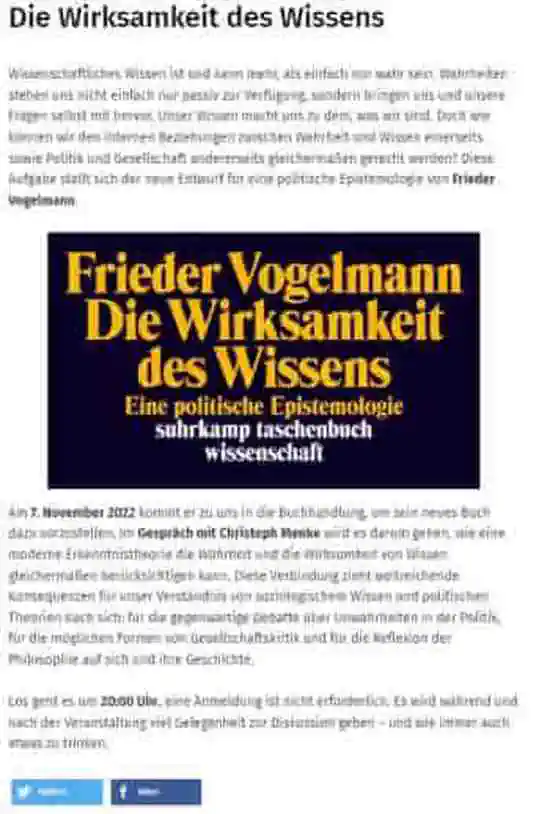
Book Launch Die Wirksamkeit des Wissens in Frankfurt/Main
On 7th November 2022, I will present my new book at Karl Marx Buchhandlung in Frankfurt am Main.

Vernunft und Politik: Beste Feinde?
Vortrag auf der Tagung “Rationalität und Demokratie”

Knowledge and Its Problems: An Introduction to Epistemology
Please read the syllabus carefully!
This lecture offers an overview of contemporary epistemology and introduces the basics of philosophical logic (propositional and predicate logic). At the same time, it introduces non-philosophy students to philosophy in the sense of working on conceptual problems, questions, and arguments. Students of all disciplines will profit from the introduction to conceptual thinking and logic.

Sciences vs. Non- and Pseudo-Sciences: The Demarcation Problem
Please read the syllabus carefully!
We have a rough and ready idea what sciences are and that some methods to gain knowledge are “scientific” whereas others are “unscientific.” Conducting a social survey, doing experiments in behaviour economics or constructing computer models to predict how the climate changes is scientific, relying on hearsay, following gut intuitions or compiling knowledge from randomly selected search results on google is not. Moreover, we consider some fields of knowledge to be “pseudo-sciences.” Astrology is a prime example, although it was consider being a science for a long time.
Sozial- und geisteswissenschaftliche Neuerscheinungen besprechen. Eine Schreibwerkstatt
Buchrezensionen sind ein wichtiges Medium einer Public Sociology und zugleich ein ausgezeichnetes Lernfeld für wissenschaftliches Schreiben. Im Rahmen dieses als Schreibwerkstatt angelegten Seminars sollen gemeinsam sozial- und geisteswissenschaftliche Neuerscheinungen diskutiert und von den Teilnehmerinnen und Teilnehmern rezensiert werden. Grundlage der Teilnahme ist die Bereitschaft, selbst Buchbesprechungen zu verfassen und die eigenen Texte im Seminar zur Diskussion zu stellen.
![New Publication: *The Force of Knowledge* [in German]](/public/media/ww_cover_hu_c53fdbf5a7e05b15.webp)
New Publication: The Force of Knowledge [in German]
“Political Epistemology begins with understanding that epistemology without political philosophy is idealistic whereas political philosophy without epistemolog is dogmatic.”
Today, my revised habilitation thesis has been published by Suhrkamp! In it, I develop a conception of knowledge that is able to grasp the truth and the force of knowledge at the same time. This conception of “effective knowledge” thus fulfils the demands of a political epistemology that intertwines epistemology with social and political philosophy.
![The Force of Knowledge. A Political Epistemology [in German]](/public/media/ww_cover_hu_c53fdbf5a7e05b15.webp)
The Force of Knowledge. A Political Epistemology [in German]
To aptly conceptualise the internal relationship between truth and knowledge on one side, and politics and society on the other side, political epistemology must reformulate the concepts of epistemology and social and political theory. For the concept of knowledge, this task implies to consider the truth and the force of knowledge equally.
Kaleidoskop. Denkraum für alternative Erkenntnistheorie
If you are interested, email us and come to the initial meeting on the 25th of October.
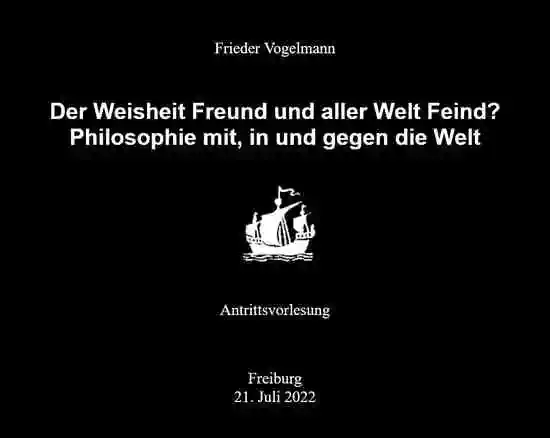
Video-Recording of my inaugural lecture at Freiburg
The recording of my inaugural lecture at the Faculty of Humanities of Albert-Ludwigs-University and University College Freiburg is now available.
![Wisdom’s friend and all the world’s enemy? Philosophy with, in and against the world [in German]](/public/event/2022/2022-07-21_freiburg_antritt/featured_Vogelmann_ETS_Antrittsvorlesung_hu_cf1b68202d67702e.webp)
Wisdom’s friend and all the world’s enemy? Philosophy with, in and against the world [in German]
Inaugural lecture at the Faculty of Humanities of Albert-Ludwigs-University and University College Freiburg.
Politische Epistemologie heute
Input for the workshop Theorie im “postfaktischen Zeitalter”
![Four Paths Towards Political Epistemology [in German]](/public/publication/2022_06_fs_nullmeier/featured_cover_festschrift_nullmeier_hu_470477c8d282902f.webp)
Four Paths Towards Political Epistemology [in German]
In this chapter, I suggest that we should understand “political Epistemology” as a name for the task to intertwine epistemology with social and critical theory.
![Neither Deny nor Glorify: For a Realistic Understanding of Scientific Practices [in German]](/public/publication/2022_leviathan_wiss/featured_leviathan_hu_15fbaec31f4977ab.webp)
Neither Deny nor Glorify: For a Realistic Understanding of Scientific Practices [in German]
In this article, I argue for a realistic understanding of sciences, which based on a materialist epistemology can acknowledge the plurality, historicity and contextuality of scientific practices.
Grounding Critical Theory
A short commentary on Iaan Reynolds’ article »The Dialectic of Progress and the Cultivation of Resistance in Critical Social Theory« for the Social Epistemology Review and Reply Collective.
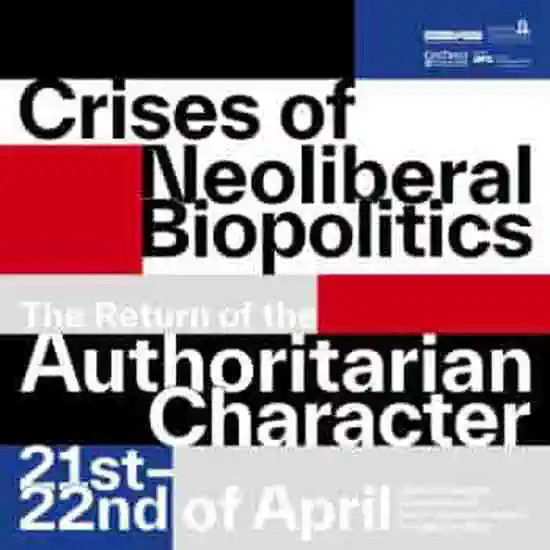
Contemporary Authoritarianism: A Dialectics of Positivism?
A look at the relationship of authority and reason in Horkheimer’s early articles and contemporary accounts of the new authoritarianism.
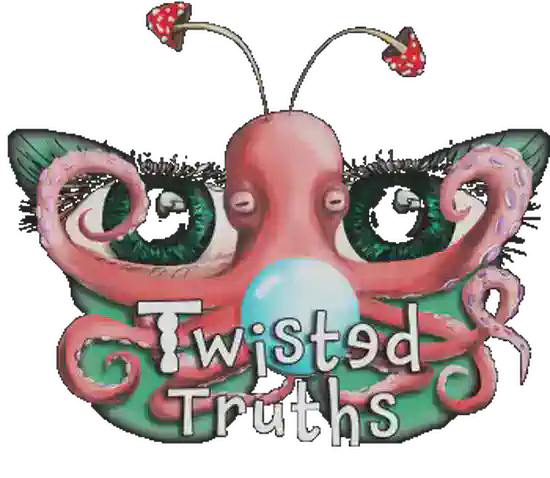
“Post-Truth,” Science and Democracy: Defending Scientific Practices without Scientism
The diagnosis of a “post-truth era” is popular but wrong: historically, conceptually, politically. Yet there is a grain of truth in it: we should be concerned with the rise of untruth in politics. I argue that non-sovereign conceptions of truth and knowledge from feminist epistemology can help to defend scientific practices epistemically against science denialism without succumbing to scientism.

Ideology Critique in Critical Theory
“Ideology” is as central a concept in critical theory as it is contested. In many critical theories, it has been and still is a key concept because they understand themselves as practicing ideology critique. The debate about “ideology” therefore provides a keyhole through which we can un-derstand the development of critical theories in general, as well as their fierce disagreement over conceptions of critique.

Introduction to the Philosophy of Science
The lecture introduces students to the philosophy of science by looking at the most important problems and debates: What are sciences, and how are they related to philosophy? How do scientific explanations work? Are there laws of nature? What roles do objectivity, rationality and other values play in scientific practices? And does science discover what is real?
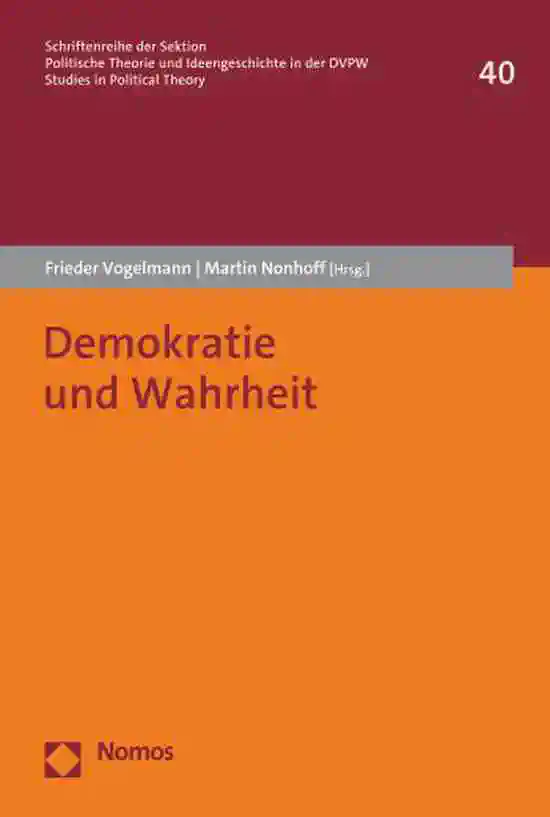
Demokratie und Wahrheit
In twelve contributions, political theorists investigate the relationship between truth and politics against the background of the current discussions about ‘post-truth,’ conspiracy theories and desinformation.

Realismus statt Kritik? Eine Verteidigung radikaler Vernunftkritik
Radical critiques of reason are possible, I argue, if we turn our attention to the practices of criticizing, if we refrain from a sovereign epistemology, and if we pluralize reason without trivializing it.
Machtverhältnisse statt Mythen. Für ein emanzipatorisches Verständnis von Wissenschaftsfreiheit
(Queer-)feministische und anti-rassistische Positionen treffen derzeit auf den Vorwurf, sie würden die Wissenschaftsfreiheit gefährden. Doch dieser vermeintlichen Freiheitsbedrohung liegt eine selektive, politisch motivierte Dramatisierung von Einzelfällen zugrunde, die Machtasymmetrien ausblendet. Ein emanzipatorisches Verständnis von Wissenschaftsfreiheit führt zu einer anderen Lageeinschätzung.
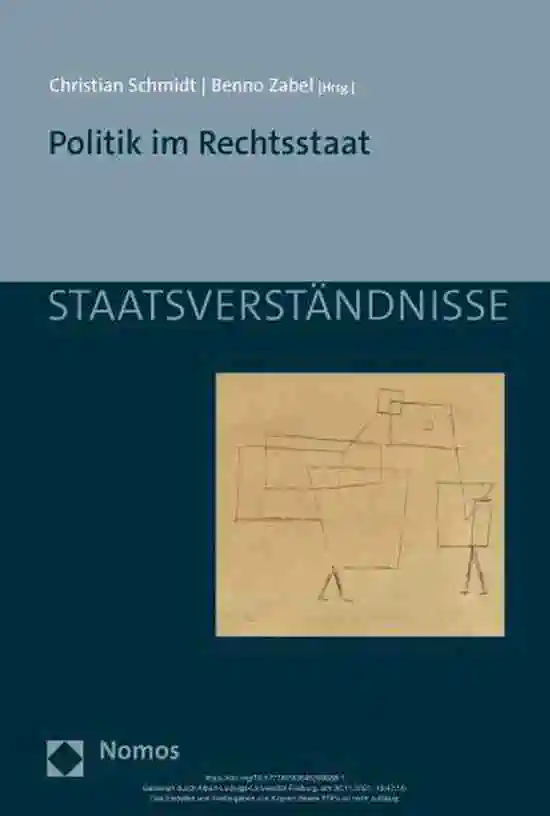
»Autonomie« als Prinzip politischer Rationalität: Eine Blockade unserer politischen Vorstellungskraft?
Is it possible that the concept of “autonomy,” as an unquestioned cornerstone of political rationality, has turned into an obstacle for our political imagination?

Book Announcement: Die Wirksamkeit des Wissens
Next year, my revised habilitation thesis will be published by Suhrkamp! In it, I develop a conception of knowledge that is able to grasp the truth and the force of knowledge at the same time. This conception of “effective knowledge” thus fulfils the demands of a political epistemology that intertwines epistemology with social and political philosophy.
Wissenschaftsfreiheit, die wir meinen
Das ist nicht die Wissenschaftsfreiheit, die wir meinen. Unsere Intervention zur grassierenden anti-woken, anti-cancel-culture, kurz: rechten Verteidigung des Status quo.
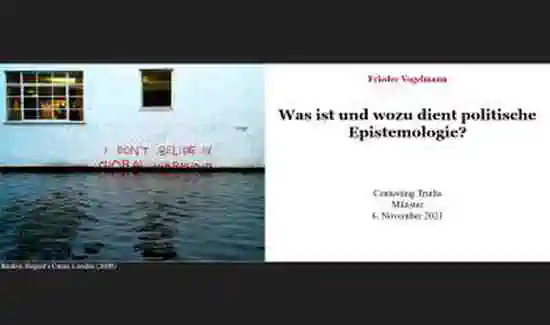
Was ist und wozu dient politische Epistemologie?
In diesem Vortrag stelle ich am Beispiel der Diskussion über das »postfaktische Zeitalter« und die Rolle der Wissenschaften vor, was politische Epistemologie ist und wofür wir sie brauchen.
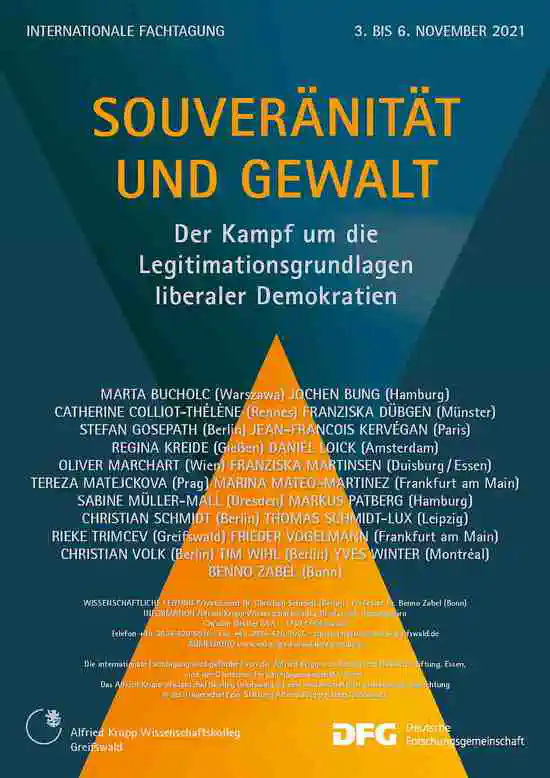
Souveränität und Gewalt. Der Kampf um die Legitimationsgrundlagen liberaler Demokratien
Internationale Fachtagung unter der wissenschaftlichen Leitung von Privatdozent Dr. Christian Schmidt (Berlin) und Professor Dr. Benno Zabel (Bonn).
![Book launch for Thomas Lemke: *The Government of Things* (NYU Press) [in German]](/public/post/2021/2021-10-29_lemke_booklaunch/featured_Lemke_Buchvorstellung_flyer_hu_1bd0001a3604de7a.webp)
Book launch for Thomas Lemke: The Government of Things (NYU Press) [in German]
Thomas Lemkes new book The Government of Things. Foucault and the New Materialisms has just been published by NYU Press. On 29 October 2021, from 5-7pm, Thomas Lemke will present the book in a discussion with Ute Tellmann (Darmstadt) and Reiner Keller (Augsburg).
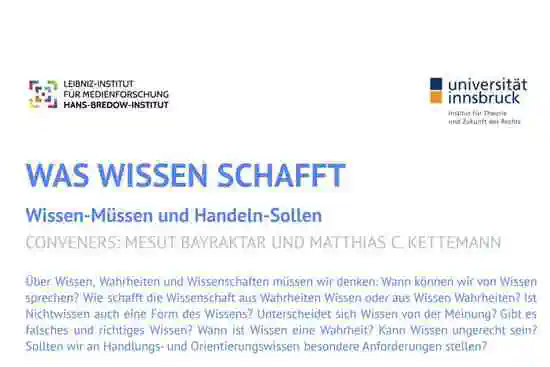
Wahrheit, Wissen und Wissenschaften
Ein Kurzvortag zum Zusammenhang von Wissen, Wahrheit und Wissenschaften aus der Perspektive der politischen Epistemologie.
Introduction to Feminist Science Studies [in German]
Die Feministische Wissenschaftskritik (Feminist Science Studies) entwickelte sich im Kontext der sogenannten zweiten Welle des Feminismus in den frühen 1980er Jahren, in der sich mit einem breiten Themenspektrum rund um Sexualität, Reproduktion, körperliche Autonomie und Familienstrukturen befasst wurde. Die Unterscheidung zwischen Sex und Gender war dabei von zentraler Bedeutung für die Bewegung und für feministische Theoriebildung.

Knowledge and Its Problems: An Introduction to Epistemology
This lecture offers an overview of contemporary epistemology and introduces the basics of philosophical logic (propositional and predicate logic). At the same time, it introduces non-philosophy students to philosophy in the sense of working on conceptual problems, questions, and arguments. Students of all disciplines will profit from the introduction to conceptual thinking and logic.
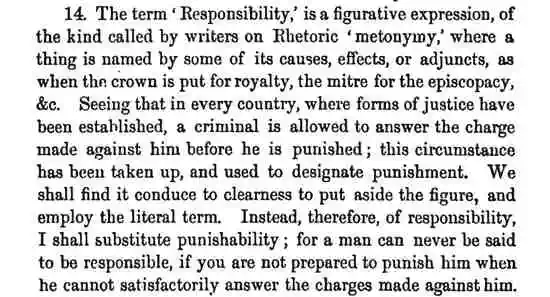
Political Responsibility: The Life of a Concept
In a spectacularly short time, the concept of responsibility has risen from obscurity to prominence: Coined as a political concept in the debates surrounding the democratic revolutions in America and France, it was used to rethink the relation between the government and the people or the government and the parliament. These beginnings as well as the subsequent developments of the concept—its individualization in ethics (Max Weber), its usage in Germany to cope with an unbearable past after World War II (Karl Jasper), its connection to sustainability (Hans Jonas) and its newest offspring in international relations, the “responsibility to protect”, to name only a few stages—are the first set of core themes in this seminar.
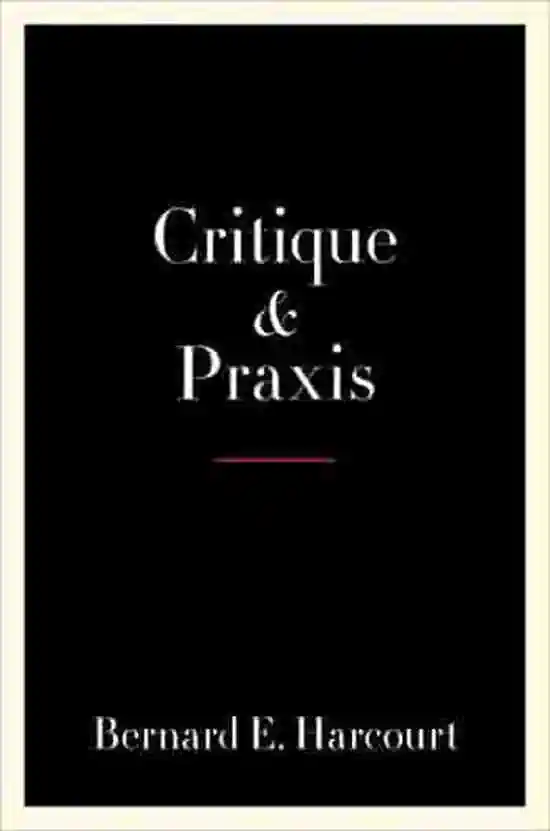
Lonely and Beyond Truth? Two Objections to Bernard Harcourt’s Critique & Praxis
Bold, brave and too short!
![Populismus und das postfaktische Zeitalter: Eine Krise der Universität? [in German]](/public/media/Buergeruni_2021_Infoscree_hu_7962b143dd24985f.webp)
Populismus und das postfaktische Zeitalter: Eine Krise der Universität? [in German]
Eine Podiumsdiskussion über Universitäten im postfaktischen Zeitalter.
![Interview on Horkheimers *Traditional and critical theory* [in German]](/public/media/horkheimer_cover_hu_e83c253aeb63d7c6.webp)
Interview on Horkheimers Traditional and critical theory [in German]
The agora42 team asked three questions about the new edition of Max Horkheimer’s essay, a new edition of which I have recently published. You can now read my answers on the agora42 blog.
![“Validity” versus “Life”, “Normativity” versus “Force”. Genealogy of a Fault Line in (Social) Philosophy [in German]](/public/media/2021_azp46_2_hu_483e910c6acfb70.webp)
“Validity” versus “Life”, “Normativity” versus “Force”. Genealogy of a Fault Line in (Social) Philosophy [in German]
In this article, I argue that (a) “force” and “normativity” are two paradigms the confrontation of which (b) repeats the struggle between neo-Kantian Normativism and life-philosophy in the 19th century but (c) changes the role of subjectivity fundamentally.
![Political Falsehoods: Diagnoses and Concepts [mostly in German] [Update]](/public/media/2021_politische_falschheiten_hu_591dbf30a85b8aef.webp)
Political Falsehoods: Diagnoses and Concepts [mostly in German] [Update]
A series of online-talks on the different concepts that we use to analyse untruths in politics, from ideology and lies to half-truths and conspiracy theories.
![Recording of my meiner inaugural lecture as “Privatdozent” [in German]](/public/post/2021/2021-05-27_antrittsvorlesung_ffm/featured_ffm_2021-05-26_hu_2ca8a7a8a55dc01d.webp)
Recording of my meiner inaugural lecture as “Privatdozent” [in German]
If you have missed my inaugural lecture as a “Privatdozent” in philosophy, you can watch the recording at the media server of the University of Frankfurt. An abstract and details to the original event can be found here.
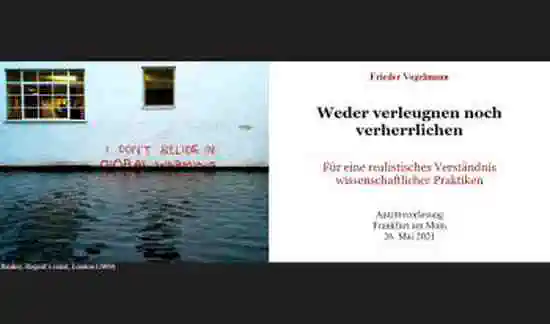
Weder verleugnen noch verherrlichen. Für ein realistisches Verständnis wissenschaftlicher Praktiken
In dem Vortrag präsentiere ich eine realistische Betrachtung wissenschaftlicher Praktiken gegen ihre Verleugnung und Verherrlichung.
Wahrheit als epistemische Kraft. Ein philosophisches Bild
In diesem Vortrag entwickle ich ein philosophisches Bild von Wahrheit als epistemischer Kraft, die aus sozialen Praktiken emergiert. …
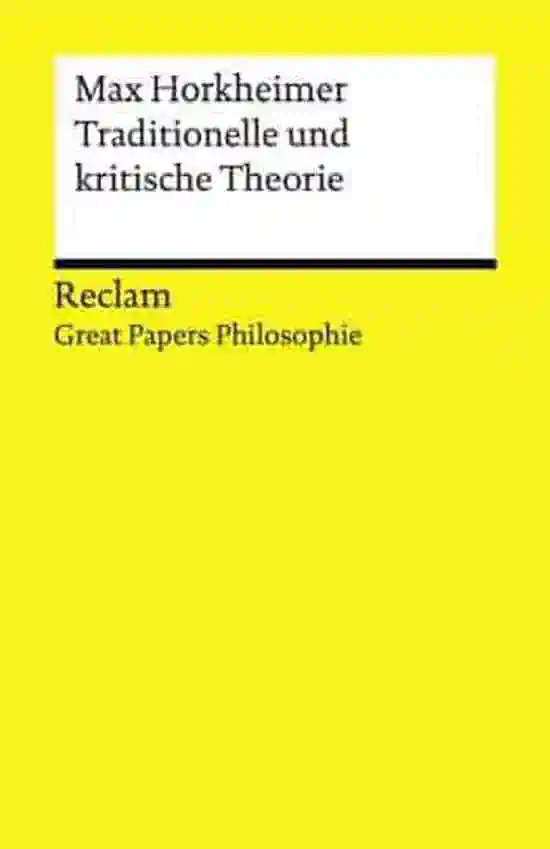
Max Horkheimer: Traditionelle und kritische Theorie (Great Papers Philosophie)
Kritische Theorie soll die Gesellschaft emanzipieren, statt sie wie herkömmliche Forschung nur zu erfassen. Die Grundzüge dieser engagierten Wissenschaft skizziert Max Horkheimer in seinem berühmten Aufsatz von 1937 in der Zeitschrift für Sozialforschung. Das Nachwort hilft, die schwierigen Konsequenzen dieser einfachen Idee nachzuvollziehen. Frieder Vogelmann stellt zudem die wichtigste Kritik an Horkheimers Argumenten sowie deren Weiterentwicklung in der Frankfurter Schule vor.
Colloquium for Social Theory [in German]
Das Kolloquium Soziologische Theorie dient der vertieften Diskussion von Abschlussarbeiten (BA und MA), Forschungsprojekten und neuer Literatur aus dem Bereich der Sozialtheorie. Die Kolloquiumsplanung findet in der ersten Sitzung statt.
From Politeness to Propaganda: Social Forms of Falsehood [in German]
Angelogen zu werden ist empörend: es verletzt soziale Normen. Manche Wahrheiten ungeschminkt gesagt zu bekommen ist ebenso empörend: auch damit werden soziale Normen übertreten. An die Vielfalt von Formen der Falschheit wollen wir in diesem Seminar soziologisch herangehen. Dazu untersuchen wir erstens mehr oder minder alltägliche Formen von Falschheit wie Höflichkeit, Diplomatie oder (Not)Lügen, zweitens soziale Formen der Falschheit in der Wirtschaft, von Werbung bis hin zu Korruption, sowie drittens soziale Formen von Falschheit in der Politik, wie Propaganda oder Ideologien.
Theories of Society: Habermas vs. Luhmann [in German]
Anhand des produktiven Streits zwischen Niklas Luhmanns Systemtheorie und Jürgen Habermas Gesellschaftstheorie des kommunikativen Handelns werden wir in diesem Seminar grundsätzliche Differenzen in der Architektur von Gesellschaftstheorien diskutieren. Dabei werden wir einerseits die zentralen Streitfragen über Objektivität, Normativität und die Rolle des Subjektbegriffs in der Gesellschaftstheorie behandeln. Andererseits werden wir immer wieder danach fragen, welche Argumentationsverfahren die soziologische Theorie zu Verfügung stellt, um solche grundsätzlichen Differenzen in der Perspektive auf Gesellschaft zu diskutieren, statt zur Geschmackssache verkommen zu lassen.
Values in the Social Sciences [in German]
Welche Rolle spielen Werte in den Sozialwissenschaften – und welche sollten sie spielen? Unbestritten ist, dass die wissenschaftliche Arbeit nicht wertfrei vonstattengehen kann. Davon zeugen ethische Grundsätze für gute wissenschaftliche Praxis, die sowohl Anforderungen an den Umgang mit Versuchspersonen, Informant_innen und den erhobenen Daten stellen als auch Sanktionen für das Fälschen von Forschungsergebnissen oder Plagiate enthalten. Darüber hinaus werden epistemische Werte wie empirische Adäquatheit, Objektivität, Einfachheit, Widerlegbarkeit als regulative Ideale für wissenschaftliche Praxis anerkannt. Aber wie sieht es mit explizit politischen Werten wie Inklusivität oder Diversität aus? Welchen Platz haben sie in der wissenschaftlichen Arbeit, welchen sollten sie haben, und wie vertragen sie sich mit den epistemischen Werten? Im Seminar werden wir dazu einführende Texte und Originalbeiträge aus verschiedenen Debatten über Werte in den Wissenschaften diskutieren, vom Werturteilsstreit über den Positivismusstreit bis zu zeitgenössischen Debatten in der feministischen Wissenschaftstheorie.

Das Diagramm der Gegenwart. Drei Fragen an Joseph Vogls »Finanzregime und Plattformökonomie«
Ein Kommentar zu Joseph Vogls Artikel »Finanzregime und Plattformökonomie«.

Dichtung und Wahrheit. Rezension zu Nicola Gess: Halbwahrheiten. Zur Manipulation von Wirklichkeit
Gess bietet mit “Halbwahrheiten” einen interessanten Begriff als Instrument an, um die Genese und Funktion solcher Behauptungen zu erhellen, die sowohl faktische als auch fiktive Anteile enthalten und gerade aus dieser Amalgamierung Kapital schlagen.

Horkheimer’s Great Paper
In May 2021, a new edition of Horkheimer’s seminal essay “Traditional and critical theory” will be published in the Great Papers Philiosophie-series by Reclam, including my detailed afterword. For more information, visit Reclam’s website.
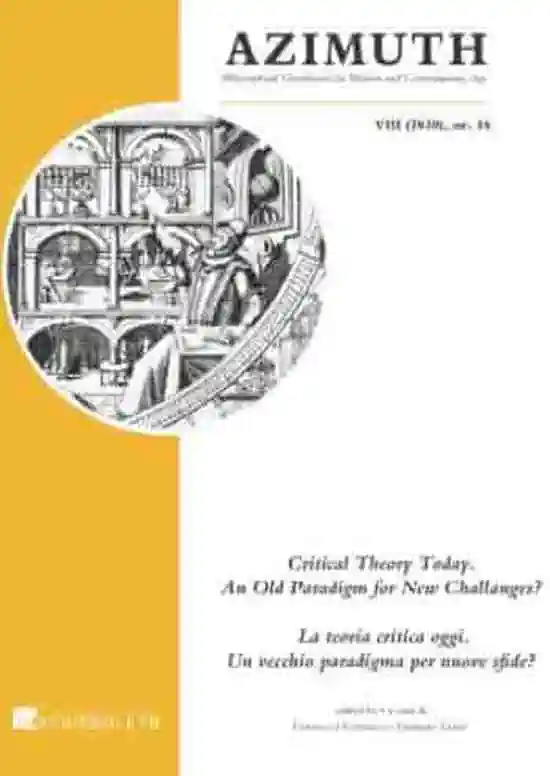
Critical Theory and Political Epistemology
The rise of untruth in politics has mostly been met by a stout defense of a robust notion of truth and an equally robust notion of the sciences. Yet all too often, this answer sacrifices the results of critically examinations of actual practices in the sciences and humanities.
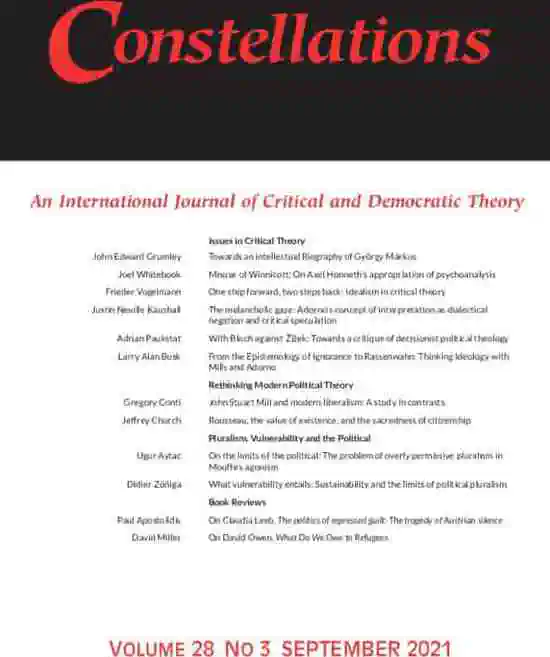
One Step Forward, Two Steps Back: Idealism in Critical Theory
The article shows that Amy Allen’s diagnosis of a too idealistic account of reason forms the backbone of her critique of contemporary Frankfurt School critical theory, before it discusses her criteria for an adequate conceptualization of the intertwinement of reason and power.

Ein neuer Sammelband zu Michel Foucaults Vorlesungen am Collège de France
Von den Theorien und Institutionen des Strafens über die psychiatrische Macht bis zum modernen Staatsrassismus und der (neo)liberalen Gouvernementalität, von den Selbstbildungspraktiken der griechischen Antike über die Notwendigkeit des freimütigen Sprechens in der Demokratie bis zur kynischen Wahrheit einer anderen Welt reichen die Themen in Michel Foucaults Vorlesungen, die er am Collège de France von 1970 bis 1984 gehalten hat. Und quer durch alle hindurch ziehen sich die Fragen nach dem Zusammenhang von Wissen, Macht und Subjektivität sowie nach der Methode, um diese erhellen zu können.
Dieser Band nimmt die vollständige Veröffentlichung der 13 Vorlesungen zum Anlass, sie sowohl als Ganzes als auch jede einzelne Vorlesung zu betrachten. Damit bietet er tiefe Einblicke in Foucaults Vorlesungen und liefert zugleich eine umfassende Einführung in diesen Teil von Foucaults Werk.

Critical Theory and Political Epistemology. Six Theses on Untruth in Politics
How can we diagnose and criticize “untruth in politics” without idealising the sciences or a supposedly singular “scientific method”?.

“Fragmente eines Willens zum Wissen”. Michel Foucaults Vorlesungen 1970–1984
Dieser Band nimmt die vollständige Veröffentlichung der 13 Vorlesungen zum Anlass, sie sowohl als Ganzes als auch jede einzelne Vorlesung zu betrachten. Damit bietet er tiefe Einblicke in Foucaults Vorlesungen und liefert zugleich eine umfassende Einführung in diesen Teil von Foucaults Werk.
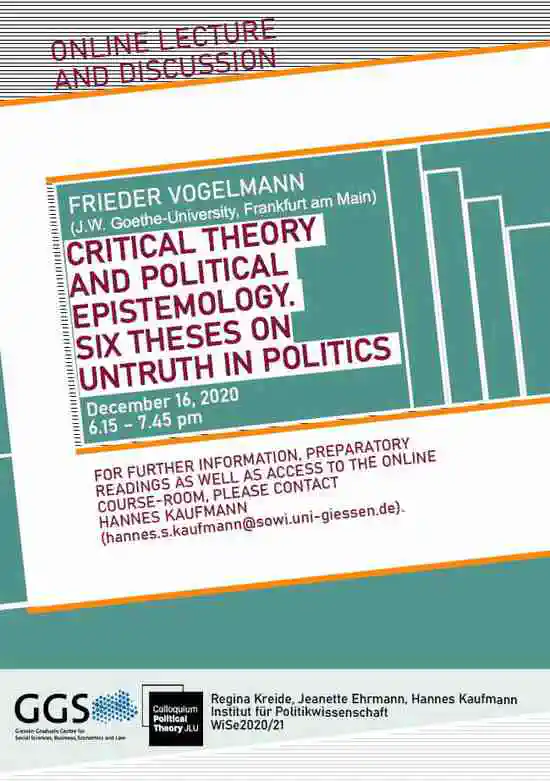
Critical Theory and Political Epistemology: Six Theses on Untruth in Politics
The rise of untruth in politics has mostly been met by a stout defense of a robust notion of truth and an equally robust notion of the sciences. Yet all too often, this answer sacrifices the results of critically examinations of actual practices in the sciences and humanities. This article outlines a response for critical theories that enables them to defend truth and objectivity against organized climate change denialists or political propagandists without embracing a naïve positivism about ‘the scientific method’ or objectivity.
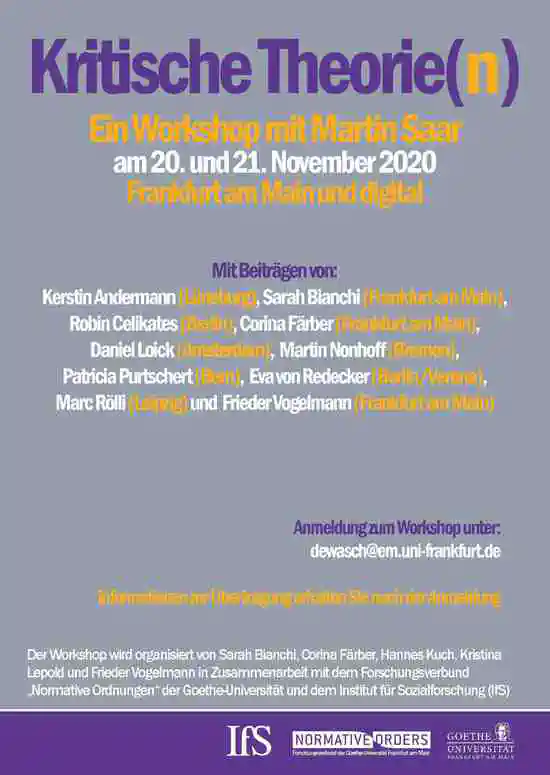
Drastisch gegenwärtig. Über Stil und Geschichte in der Philosophie
In diesem Vortrag rekonstruiere ich die eigenständige Form kritischer Philosophie, die Martin Saar in den letzten Jahren Schritt für Schritt entwickelt hat.

Kritische Theorie(n). Ein Workshop mit Martin Saar
Am 20./21. November findet ein kleiner Workshop zum Thema “Kritische Theorie(n)” mit Martin Saar statt. Organisiert wird er von Sarah Bianchi, Corina Färber, Hannes Kuch, Kristina Lepold und Frieder Vogelmann in Zusammenarbeit mit dem Forschungsverbund “Normative Ordnungen” der Goethe-Universität Frankfurt und dem Institut für Sozialforschung (IfS). Leider können wir aufgrund der Pandemie Publikum nur digital zulassen; dafür bedarf es einer Anmeldung vorab.
Four Neglected Roads to Political Epistemology
In the talk I argue that political epistemology should include four often neglected research traditions with similar ambitions: Frankfurt School Critical Theory, Feminist Epistemology, Poststructuralism and Postcolonial Theory.
ECPR GC220 Panel “Theoretical Perspectives on Knowledge and Politics”
The goal of this section is to reconsider the relationship between knowledge and politics.
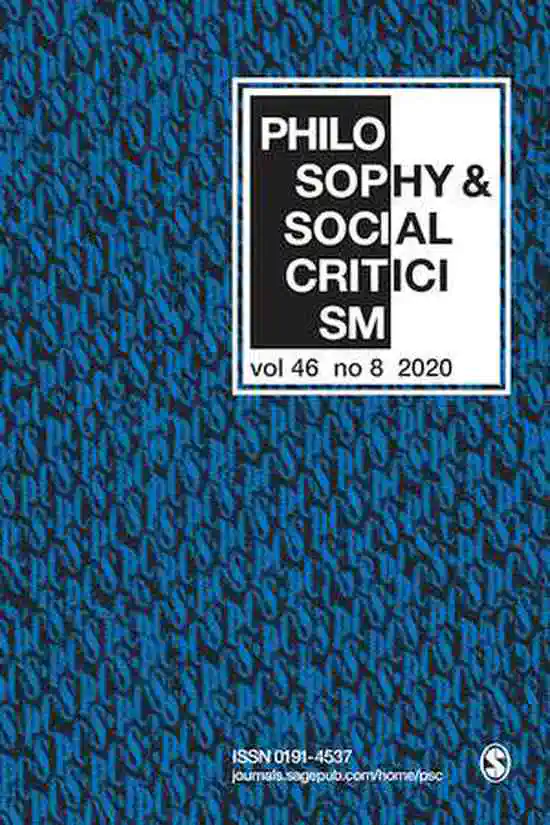
Keep Score and Punish: Brandom’s Concept of Responsibility
A critical reading of Robert Brandom’s usage of the concept of responsibility to explicate normativity’s binding force.
Update August, 2020: Finally, the article has left the ‘onlineFirst’-limbo and found a home in issue 48.8!

Wer nicht twittern kann…
… schreibt über Twitter: Genau das habe ich in Widerspruch. Münchner Zeitschrift für Philosophie getan. Mein kleiner Essay über die agitatorische Logik digitaler Öffentlichkeiten, die ich mithilfe einiger anachronistischer Überlegungen zum Propagandabegriff entwickele, basiert auf dem Vortrag zu Propaganda, den ich für das Corona-Glossar des Frankfurter Arbeitskreises für Politische Theorie und Philosophie gehalten habe.
![Reluctant Propagandists? On the Agitational Logic of Digital Publics on Twitter [in German]](/public/media/widerspruch_cover_hu_4176a8322dc42dc0.webp)
Reluctant Propagandists? On the Agitational Logic of Digital Publics on Twitter [in German]
Can the concept of propaganda help us to understand digital publics? My essay considers early analyses of propaganda by Alfred and Elizabeth Lee, Leo Löwenthal and Norbert Guterman and Victor Klemperer to shed light on the agitational logic of digital publics on twitter.
Truth as Force [in German]
A proposal for an understanding of truth as an epistemic force that emergates in social practices.
Epistemology as Social Theory: Jürgen Habermas’ Knowledge and Human Interests [in German]
In seinem später aus verworfenen Überlegungen in Erkenntnis und Interesse tritt Habermas das Erbe der älteren kritischen Theorie an. Insbesondere in Anknüpfung an Horkheimers klassischen Essay “Traditionelle und kritische Theorie” versucht Habermas darzulegen, warum und wie Gesellschafts- und Erkenntnistheorie miteinander verflochten sind. Im Seminar werden wir Habermas’ (anspruchsvolles!) Buch ebenso gründlich diskutieren wie die Kritik daran – nicht zuletzt auch Habermas’ Selbstkritik, die ihn schließlich dazu führte, seine Fassung der kritischen Theorie auf andere, nämlich sprachphilosophische Grundlagen zu stellen.
Introduction to Modern Social Theory [in German]
Das Seminar bietet einen Einstieg in die moderne soziologische Theorie, indem darin klassische und zeitgenössische Texte zu wichtigen Begriffen und Themen diskutiert werden, die die Debatte der soziologischen Theorie nachhaltig geprägt haben. Ein besonderer Schwerpunkt liegt auf den Themen Herrschaft, Handlungsfähigkeit und Kritik sowie der Frage, welche Position soziologische Beobachter_innen gegenüber den beobachteten Individuen, Gruppen und Praktiken einnehmen.
Populism as a Social Phenomenon: Current Theories about a Contested Issue [in German]
Der Begriff “Populismus” ist heute in aller Munde – doch aus sozialwissenschaftlicher Sicht ist alles andere als klar, was genau damit gemeint ist. Im Seminar werden wir die wichtigsten, aktuellen Theorie des Populismus diskutieren und vor allem danach fragen, wie Populismus als soziales (und nicht allein politisches) Phänomen zu verstehen ist: welche sozialen Probleme sprechen Populismen an, welche neuen Denk- und Verhaltensweisen erschaffen sie? Gegen Ende des Seminares werden wir uns zudem ansehen, welche Konsequenzen die unterschiedlichen Theorien des Populismus für den Umgang mit diesem strittigen Sozialphänomen haben.
Theories of Society from Marx to Luhmann [in German]
Was ist und wozu treiben wir Gesellschaftstheorie? Im Seminar beschäftigen wir uns anhand verschiedener Formen von Gesellschaftstheorie – eben von Marx bis Luhmann – mit dieser Frage. Dabei diskutieren wir auch das ursprüngliche Programm einer umfassenden, materialistischen Theorie der Gesellschaft, das Max Horkheimer in den 1930er Jahren zum Programm des Instituts für Sozialforschung machte.
![Critical Theories in the Pandemic: A Glossary -- (no) Finissage [plus podcast!]](/public/post/2020/2020_05_pandemie/featured_finissage_hu_706ae5e96d8cf214.webp)
Critical Theories in the Pandemic: A Glossary – (no) Finissage [plus podcast!]
The Frankfurter Arbeitskreis rounds up its “Corona Glossary” in short talks on YouTube with a livestream on Sunday, 3rd May, at 17:00h (GMT +2). Again, we use this opportunity to ask for your support of the following organizations: Medico International, Project Shelter, Medical Volunteers International, Stand by me Lesvos, No Border Kitchen.
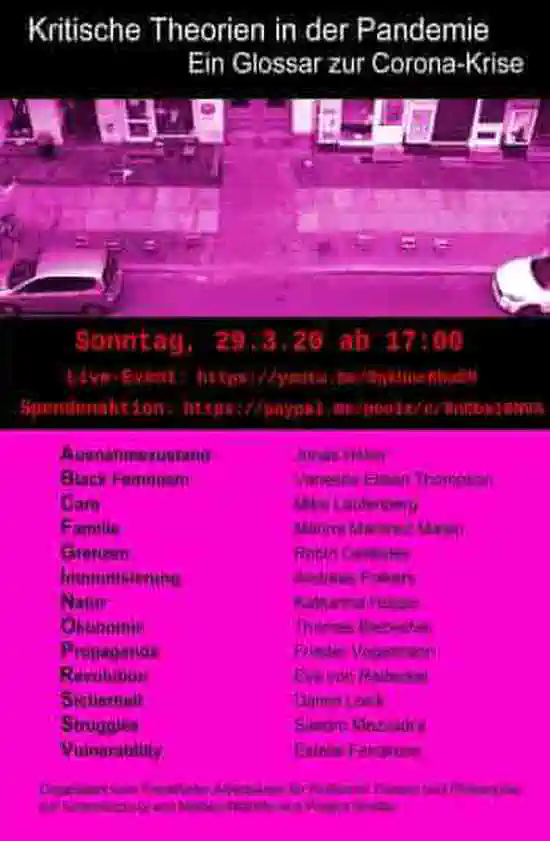
Critical Theories in the Pandemic: A Glossary – Online Fundraiser
The Frankfurter Arbeitskreis presents a “Corona Glossary” in short talks on YouTube. Meant to stimulate discussion, it is also connected with a very practical aim: to raise money for two initiatives which support migrants in their vital needs and political struggles: Project Shelter, a local charity from Frankfurt, and Medico International, an organization which promotes the human right to health in cooperation with many left-wing political forces around the globe.
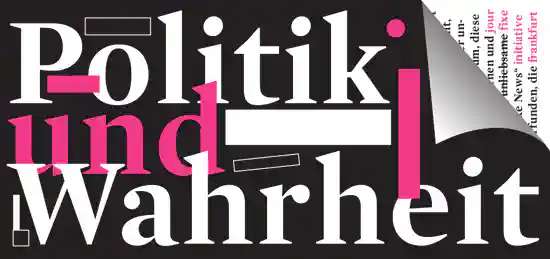
Lies, Ideology, Propaganda… Untruth in Politics and How We (Should) Conceptualize It (in German)
Der Vortrag beleuchtet die gravierenden Probleme der Diagnose eines “postfaktischen Zeitalters” und erinnert an die Vor- und Nachteile alternativer Begriffe zu Diagnose von Unwahrheit in der Politik.
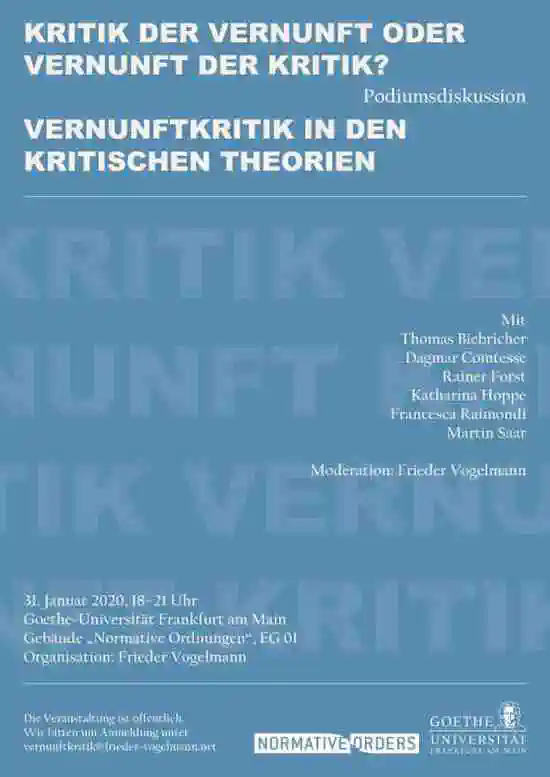
Critique of Reason or Reason of Critique? Critiques of Reason in Critical Theories (in German)
Roundtable discussion on critiques of reason
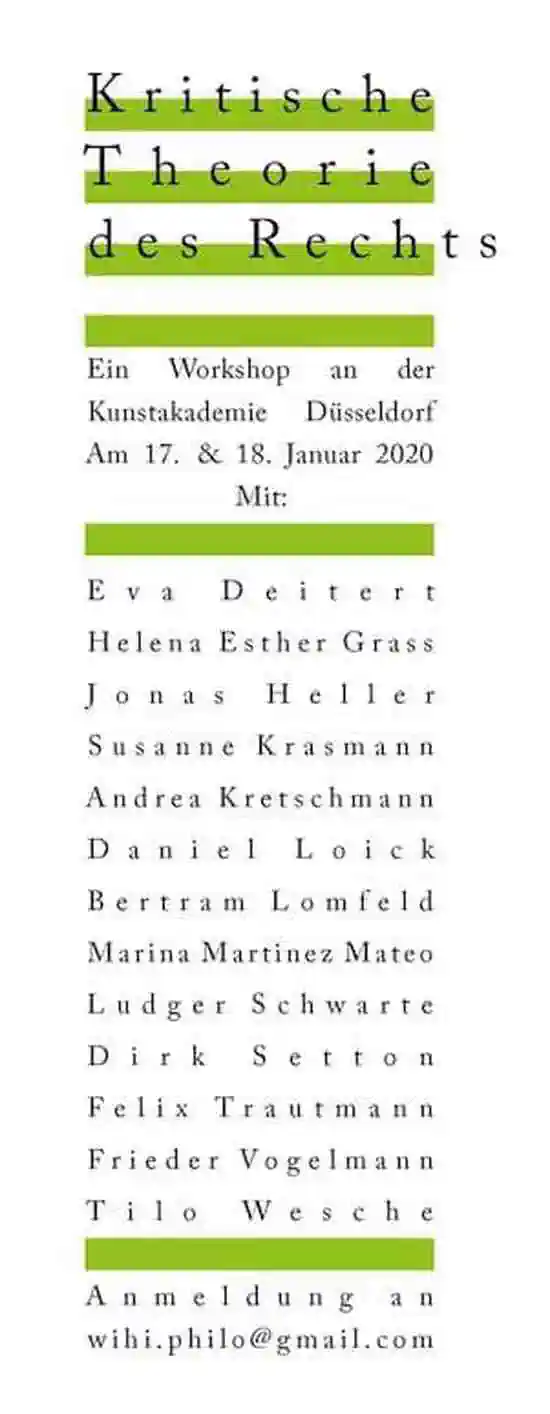
Out of the Frying Pan into the Fire: The Critique of Law without a Critique of Responsibility (in German)
Selbst wenn viele Rechtskritiken die Gewalt des Rechts mindern, ja Strafe abschaffen wollen, schrecken sie davor zurück, Schluss mit …
The History of Sexuality, Volume I: An Introduction. Michel Foucault on Sexuality, Biopolitics and Racism (in German)
Michel Foucault’s first volume of his “history of sexuality” is a modern classic. In it, Foucault develops his concept of power vis-à-vis the historical material he analyzes. Foucault presents three far-reaching theses: First, sexuality is not a natural yet repressed phenomena; it rather is a modern invention of the 19th century, systematically nurtured by the dominant powers. Thus struggles against the repression of sexuality are far less liberating than they take themselves to be. On the contrary, they are actually complicit with the power they want to fight against. Second, this power is no longer the sovereign power political theory usually speaks of, and even is not only the disciplinary power Foucault described in Discipline and Punish (1975). Instead, it must be conceptualized as “bio-power”: the power to foster life and to let die. Third, this bio-power is no less deadly than other forms of power; the legitimation of ever larger massacres will now be found in a new form of state racism.
Sociology as a Diagnosis of the Present (in German)
Wie von keiner anderen Gesellschaftswissenschaft wird von der Soziologie erwartet, nicht nur Gesellschaftstheorien bereitzustellen, sondern auch ihre jeweilige Gegenwart in griffigen Zeitdiagnosen zu bündeln. Im Seminar werden wir einen solchen aktuellen Versuch – Andreas Reckwitz: Das Ende der Illusionen (2019) – intensiv lesen. Reckwitz’ Diagnose bietet sich an, weil sie einen leichten Einstieg auch in seine Gesellschaftstheorie ermöglicht. Sie kann zudem als “Fenster” dienen, um auch auf alternative Theorien etwa zum Wandel der Arbeitswelt, der Politik oder der Kultur zu blicken. Nicht zuletzt werden wir in der Diskussion über Reckwitz’ Gegenwartsdiagnose diese mit alternativen soziologischen Gegenwartsdiagnosen konfrontieren.
Value-free Social Science? Old and New Contributions to the “Werturteilsstreit” (in German)
Der Werturteilsstreit widmet sich grundsätzlich der Frage, inwiefern Wissenschaften wertfrei vorgehen müssen oder dies gerade nicht können – und was unter “wertfrei” genau zu verstehen ist. Schon in der Kontroverse zwischen Max Weber und Gustav Schmoller geht es nicht nur darum, ob und wie Wissenschaftler_innen als Wissenschaftler_innen normative Urteile vorbringen dürfen, sondern auch darum, welche Vorstellung wir uns von wissenschaftlichen Praktiken machen, um diese Frage zu beantworten. Sowohl im Zuge des Positivismusstreits zwischen Theodor W. Adorno und Karl R. Popper (aufgegriffen und zugespitzt von Jürgen Habermas und Hans Albert) als auch der neueren Debatte, die wesentlich aus der (analytischen) Philosophie stammt, kommen weitere Themen und Argumente hinzu. Das Seminar widmet sich diesen Auseinandersetzungen vor dem Hintergrund der aktuellen Debatte über die Rolle von wissenschaftlichen Fakten in der Politik.
What are Social Practices? (in German)
Spätestens seitdem 2001 der “practice turn” ausgerufen wurde, sind Begriffe wie soziale Praktiken, Praxistheorie oder Praxeologie in aller Munde. Doch was genau sind soziale Praktiken? Welche bestehenden Probleme löst die Konzentration auf soziale Praktiken – und welche neuen Probleme stellen sich einer Praxistheorie, die als Sozialtheorie antritt? Wichtige Themen für nahezu alle Ansätze aus dem extrem heterogenen Feld der Praxistheorie lassen sich in den Begriffspaaren sozialer Wandel und Beharrung, Subjektivierung und Objektivierung, Materialität bzw. Körperlichkeit und Diskursivität ausmachen. Im Seminar wollen wir uns anhand dieser Schwerpunkte sowohl einen Überblick über die verschiedenen zeitgenössischen Varianten der Praxistheorie verschaffen als auch ihre historische Entwicklung und einige wichtige Weiterentwicklungen ansehen.
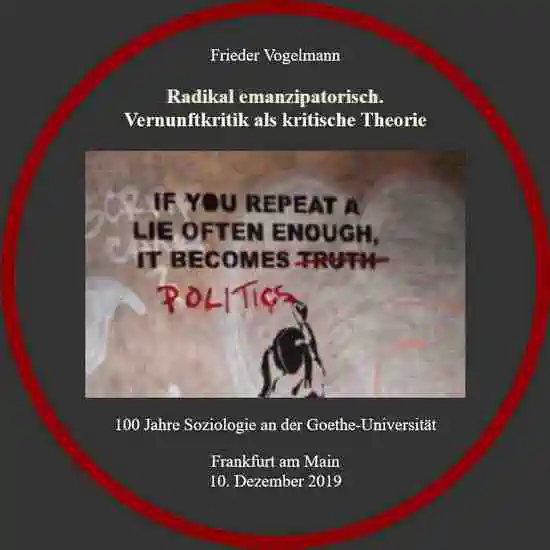
Video of My Talk “Radikal emanzipatorisch. Vernunftkritik als kritische Theorie”
If you have missed my talk “Radikal emanzipatorisch. Vernunftkritik als kritische Theorie” from the lecture series “100 Jahre Soziologie an der Goethe-Universität”, you can now watch it online in a video.

Radikal emanzipatorisch. Vernunftkritik als kritische Theorie
Basiert auf der Veranstaltung “Vernunftkritik in der kritischen Theorie”.
One Step Forwards, Two Steps Back: Critical Theory’s Progress
Amy Allen’s book The End of Progress: Decolonizing the Normative Foundations of Critical Theory returns us to the core of the …
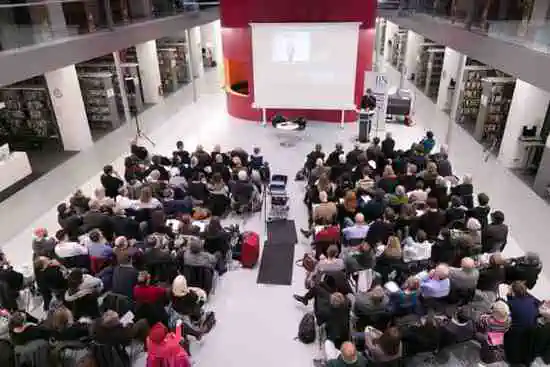
Article in WestEnd 2/2019
The new issue 2/2019 of WestEnd. Neue Zeitschrift für Sozialforschung features my article “Fighting with Untruth. Why a Critique of Reason Remains Necessary” [in German]. It grew out of the talk that I gave almost exactly a year ago in the lecture series “Frankfurter Positionen 2018/19”.
![Fighting with Untruth. Why a Critique of Reason Remains Necessary [in German]](/public/publication/2019_westend_unwahrheit/featured_westend_cover_small_hu_e8c808617fcb2a32.webp)
Fighting with Untruth. Why a Critique of Reason Remains Necessary [in German]
The role played by the diagnosis of an “era of post-truth” in political, scientific and medial struggles necessitates a critique of reason.
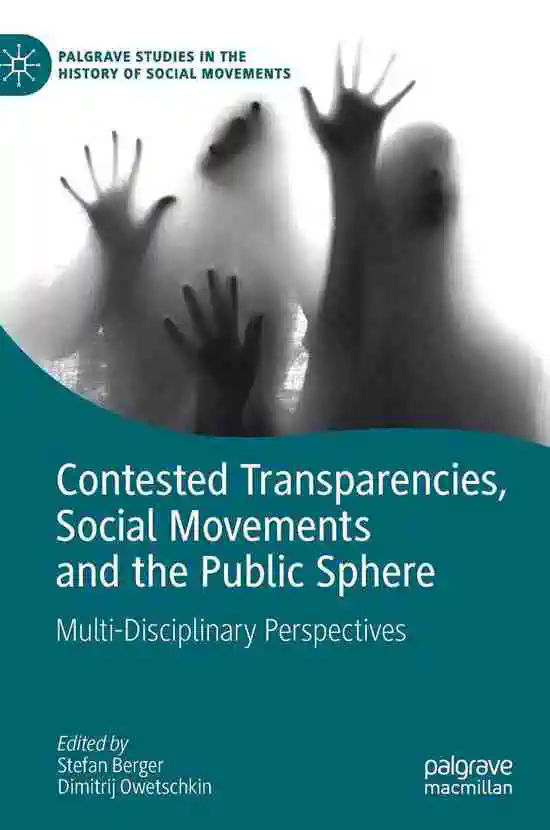
Transparency’s Trap: Problems of an Unquestioned Norm
The chapter analyses demands for transparency as a specific way of exercising power.
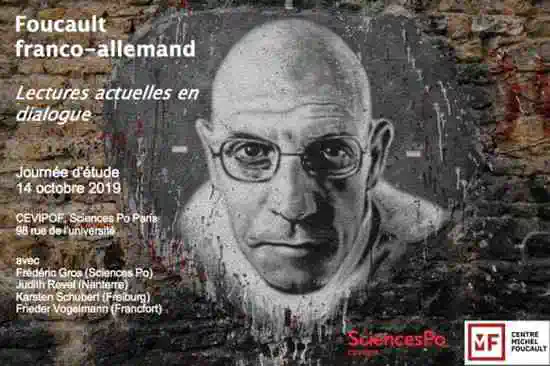
Prefigurative Emancipation: The Effective Knowledge of Foucault’s Critique
The task of diagnosing the present explains how Foucault’s critique functions as a philosophical practice, and by making explicit in which ways it emancipates us, it gives us reasons why we might be interested in doing critique like that.
Non-Sovereign Epistemology and the Practice of Doing Critique: In Defense of Radical Critiques of Reason
A defense of radical critiques of reason against the champions of “post-critical” thinking and the decriers of “post-truth”.

Die Macht des Seienden, das Sein der Macht und die politische Signifikanz von Wahrheit. Drei Lesarten von Michel Foucaults Position zur Ontologie des Politischen
Drei Lesarten von Michel Foucaults Position zur Ontologie des Politischen.

Interview with Jan Groos of Future Histories
Jan Groos has a podcast “for expanding our ideas of te future,” appropriately named Future Histories. In the last episode, I was invited to speak about my project alternative governmentalities. However, I would also recommand listening to all the other interesting episodes!

Should Critique be Tamed by Realism? A Defense of Radical Critiques of Reason
Radical critiques of reason are possible, I argue, if we turn our attention to the practices of criticizing, if we refrain from a sovereign epistemology, and if we pluralize reason without trivializing it.
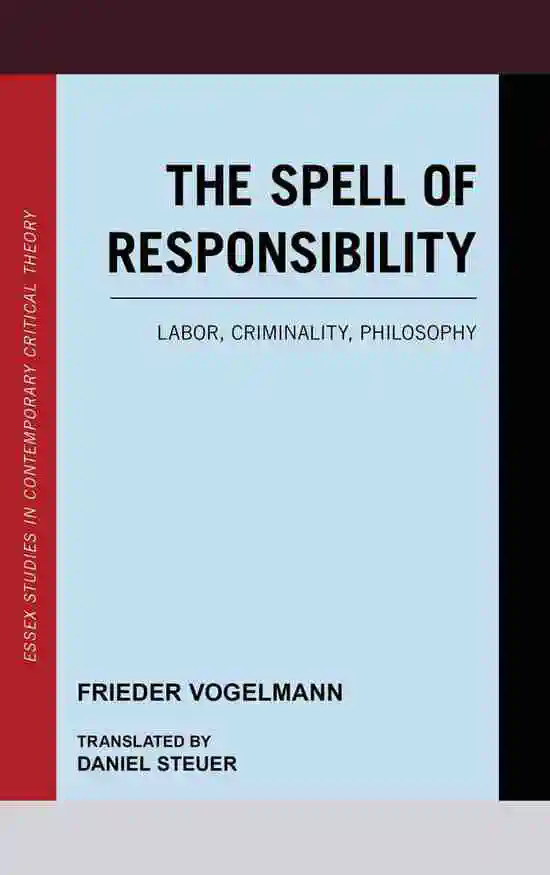
Paperback Edition of The Spell of Responsibility
Rowman & Littlefield International has just published the paperback edition of The Spell of Responsibility: Labour, Criminality, Philosophy. Also, you can save 30% using the code from the flyer.
Colloquium for Critical Social Theory [in German]
More information coming soon.
Marcuse versus Habermas: Critical Theory, Left Politics and Technological Rationality [in German]
In diesem Seminar soll eine besondere Episode Kritischer Theorie ideengeschichtlich und systematisch untersucht werden: Der Zusammenhang von Theorie und Praxis in den 1960/70er Jahren, wie er sich in den Auseinandersetzungen zwischen Herbert Marcuse und Jürgen Habermas darstellt. Beide, so die Ausgangsvermutung, sind unzufrieden angesichts des von Theodor W. Adorno und Max Horkheimer bestenfalls zögerlich hergestellten Übergangs von Theorie und Praxis; beide verstehen, dass die politische Situation nach mehr verlangt als dem Aufruf zur Besonnenheit. Dennoch geben Marcuse und Habermas sehr unterschiedliche Antworten – die vielleicht heute auf neues Interesse stoßen angesichts einer neu entstehenden Schüler_innen- und Studierendenbewegung. Denn: Was sagt die Kritische Theorie beispielsweise zu Fridays for Future? Wie stellt sie heute den Bezug von Theorie und Praxis her?

New article in Philosophy & Social Criticism
My latest article on the concept of responsibility is a critical interpretation of Robert Brandom’s use of ‘responsibility’ to make explicit normativity’s binding force.
The Critique of Reason in Critical Theories [in German]
“Vernunftkritik” klingt heute altmodisch, nach einer abgelegten Debatte aus den 1980er Jahren. Doch sind die Fragen, die in der eher unglückselig verlaufenden sogenannten “Foucault-Habermas-Debatte” gestellt wurden, nie wirklich abgegolten worden. Im Seminar werden wir daher die Rolle von Vernunftkritik in der ganzen Bandbreite der Kritischen Theorie – von Theodor W. Adorno bis Amy Allen, von Albrecht Wellmer bis Herta Nagl-Docekal – untersuchen und den Versuch unternehmen, die verschiedenen Vorgehensweisen einer Vielzahl von Vernunftkritiken möglichst so zu rekonstruieren, dass sie zunächst in ihrem Selbstverständnis nachvollzogen werden können, bevor wir sie unsererseits der Kritik unterziehen.
What is (not) Critique? [in German]
Das Seminar widmet sich der Debatte um den Kritikbegriff – einer für die Kritische Theorie zweifelsohne zentralen Auseinandersetzung, geht es doch um nicht weniger als die Vorgehensweise, ihre Rechtfertigung und damit letztlich um die Gestalt Kritischer Theorie. Das Seminar beginnt daher mit dem grundsätzlichen Bedenken, heute überhaupt noch an den Kritikbegriff anzuschließen, den Bruno Latour in “Elend der Kritik” vor einiger Zeit wirkmächtig geäußert hat. Im Anschluss werden wir einerseits rekonstruieren, wie der dominante Strang der Debatte den Begriff der Kritik anhand des Gedankens “normativer Maßstäbe” engführt, und andererseits auf die Alternativvorschläge eingehen, die dagegen versuchen, Kritik pluralistischer zu verstehen.
![Conference “Philosophie, Kritik, Geschichte: Foucaults historisch-philosophische Praxis in den Vorlesungen” [in German]](/public/event/2019/2019-07-30_frankfurt/featured_poster_foucault_ffm_hu_38fa9d26967fe69e.webp)
Conference “Philosophie, Kritik, Geschichte: Foucaults historisch-philosophische Praxis in den Vorlesungen” [in German]
Im Workshop sollen anhand von Foucaults Vorlesungen seine methodologischen Vorschläge diskutiert werden, zu einer anderen Form philosophischer und historischer Forschung zu gelangen.
Gegen Responsibilisierung. Über die Herrschaft von Begriffen
Die Responsibilisierung unseres Denkens führt zur Herrschaft eines bestimmten Gebrauchs von “Verantwortung”, der unsere Denk-, Handlungs-, und Seinsweisen bestimmt.
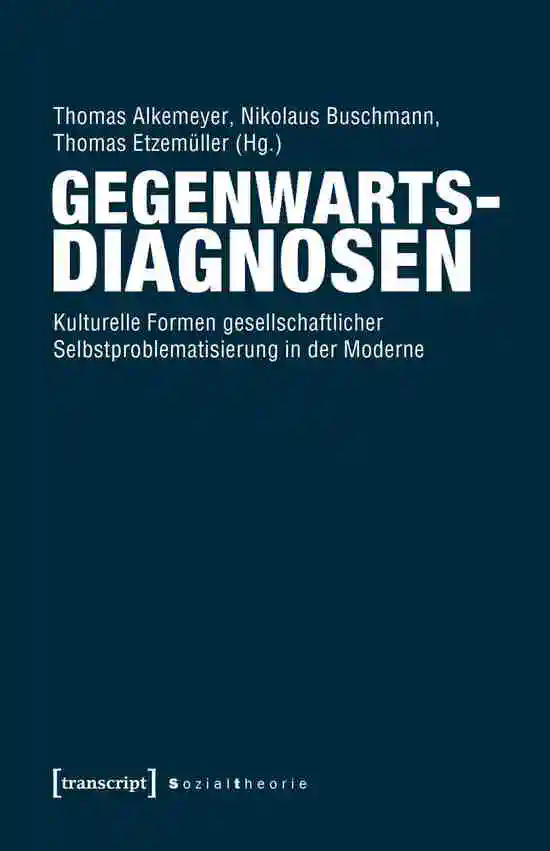
A new edited Volume: Gegenwartsdiagnosen
Es ist soweit: Nach langen Diskussionsrunden und Überarbeitungen ist der Sammelband Gegenwartsdiagnosen. Kulturelle Formen gesellschaftlicher Selbstproblematisierung in der Moderne erschienen, herausgegeben von Thomas Alkemeyer, Nikolaus Buschmann und Thomas Etzemüller. Von mir ist ein kleiner Text zur Kritik an Zeitdiagnosen enthalten, die aus der Soziologie und der Philosophie gern geäußert wird. Denn das Adjektiv “zeitdiagnostisch” kann ziemlich giftig sein…
![Neither Scientific, nor Philosophical, nor Critical? The Knowledge in Diagnoses of Our Times as Seen by Their Critics [in German]](/public/publication/2019_gegenwartsdiagnosen/featured_cover_gegenwartsdiagnosen_hu_77c3290424ea4591.webp)
Neither Scientific, nor Philosophical, nor Critical? The Knowledge in Diagnoses of Our Times as Seen by Their Critics [in German]
The chapter describes the specific knowledge articulated in diagnoses of our times by looking at the critique of such diagnoses voiced in sociology and philosophy.
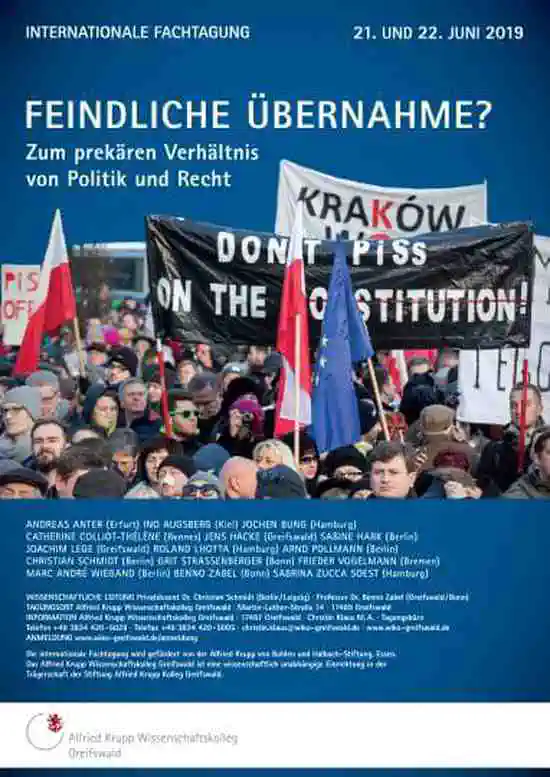
Not To Be Governed Like That? Autonomy as Impasse of Political Imagination
Seit 250 Jahren antwortet die politische Philosophie auf die Frage, wie so regiert werden kann, dass die Regierten keine Angst vor den Regierenden haben müssen, mit dem Prinzip der Autonomie. Es ist damit als unhintergehbares Lösungsprinzip der politischen Philosophie zur Sackgasse für unsere politische Vorstellungskraft geworden.
Truth as Force: Effective Knowledge
A workshop on some preliminary chapters from my new book Effective Knowledge. Rethinking a Basic Concept of Political Epistemology.
To Be Governed Without Fear: Does “Autonomy” Obstruct Our Political Imagination?
How can we govern so that those governed need not fear those governing? And what if the familiar answer of political liberalism, namely “autonomy,” turns out not to meet this criterion?

“Postfaktisch ist die falsche Diagnose”
Frieder Vogelmann, interviewed by Catherine Newmark

Interview on the Mistaken Diagnosis “Post-Truth”
There is a short interview with me published in the [special issue of the Philosophie Magazin devoted to Michel Foucault] (https://www.philomag.de/archives/12-philosophie-magazin-sonderausgabe-2019). With Catherine Newmark, I discuss the popular but wrong idea that Foucault or the heterogenous group of “postmodern” thinkers are characterized by contempt for truth or even for the often diagnosed surge in untruth in politics today.
![Conference “Philosophie, Kritik, Geschichte” in Frankfurt, 30/31 July 2019 [in German]](/public/post/2019/2019_05_foucault_frankfurt/featured_poster_foucault_ffm_hu_38fa9d26967fe69e.webp)
Conference “Philosophie, Kritik, Geschichte” in Frankfurt, 30/31 July 2019 [in German]
Zusammen mit Martin Saar organisiere ich einen Workshop zu Foucaults historisch-philosophischer Praxis, die exemplarisch in seinen 13 Vorlesungen am Collège de France sichtbar wird. Der volle Titel lautet: “Philosophie, Kritik, Geschichte: Foucaults historisch-philosophische Praxis in den Vorlesungen”.
Roundtable “Herausforderungen und Perspektiven der Lehre Politischer Theorie und Ideengeschichte”
Der Roundtable ist Teil des Workshops “Hochschullehre in der Politischen Theorie und Ideengeschichte: Selbstverständnis, Praxis, Perspektiven”, organisiert von Andreas Busen, Dannica Fleuß und Alexander Weiß mit Unterstützung des Arbeitskreises Hochschullehre der DVPW.
Ohnmacht und Intensivierung. Zur Logik des Verantwortungsbegriffs in Lohnarbeit und Arbeitslosigkeit
Der Gebrauch von “Verantwortung” unterliegt einem Wandel, der sich entgegen prominenter Diagnosen weder als “Diffusion” noch als “Individualisierung” begreifen lässt. Vielmehr intensiviert er den Selbstbezug von Verantwortungsträger_innen und die Machtasymmetrien zwischen ihrer Subjektposition und jener der Verantwortungszuschreiber_innen. Der Vortrag diskutiert die Folgen dieses Vorgangs.
“Ideology” in critial theory
Ideologie ist ein so zentraler wie kontrovers diskutierter Grundbegriff kritischer Theorien; ja, insofern diese sich oft als wesentlich ideologiekritische Praxis verstehen, lässt sich am Leitfa-den des Ideologiebegriffs und der Konzeptionen von Ideologiebegriff etwas über die Ent-wicklung kritischer Theorien insgesamt lernen. Doch am Anfang stehen Fragen: Ist Ideologie “wie Mundgeruch immer das, was die anderen haben” (Terry Eagleton) oder ist Ideologie universell? Gibt es Ideologie noch in der klassenlosen Gesellschaft? Schwingt im Ideologie-begriff unvermeidlich ein gewisser Paternalismus mit, weil die Kritikerin sich jenseits eines “epistemologischen Bruchs” situieren muss, der sie von denjenigen trennt, die noch in der Ideologie gefangenen sind?
Colloquium for Critical Social Theory
More information coming soon.
Max Horkheimers Eclipse of Reason
“Selbstauflösung der Vernunft als geistiger Substanz beruht auf innerer Notwendigkeit. Theorie heute hat den Prozeß, die gesellschaftlich bedingte Tendenz zum Neopositivismus, zur lnstrumentalisierung des Gedankens, sowie die vergeblichen Rettungsversuche zu reflektieren und auszusprechen.” (Horkheimer, Zur Kritik der instrumentellen Vernunft, 22)
Politics, History, Philosophy. Michel Foucault’s Historical-Philosophical Research Practice
Michel Foucault ist unstrittig einer der wichtigsten Denker des 20. Jahrhunderts – und zugleich einer der umstrittensten. Seine Texte haben Einfluss über alle Fächergrenzen hinweg auf ganz unterschiedliche Disziplinen gehabt, gelten allerdings als schwer verständlich und voller Brüche in seinen Begrifflichkeiten, Methoden und Themen. Tatsächlich übersieht man schnell die vorgebrachten Argumente in der Fülle historischer Details, verwechselt im herbeizitierten Stimmengewirr die Sprecher_innen und verirrt sich im ständigen Wandel von Foucaults Terminologie.
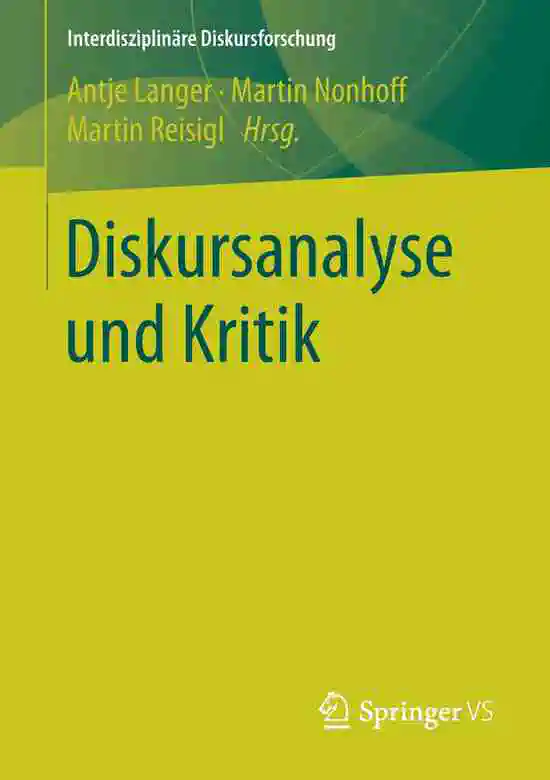
Kritik als Emanzipation. Zur Produktion sperrigen Wissens
Discourse analysis is critical, I argue, if it produces “unwieldy knowledge”.
Schlechte Nachrichten gehen gut. Review of Romy Jaster und David Lanius (2019): Die Wahrheit schafft sich ab. Wie Fake News Politik machen
Review of Romy Jaster und David Lanius (2019): Die Wahrheit schafft sich ab. Wie Fake News Politik machen. Stuttgart: Reclam.
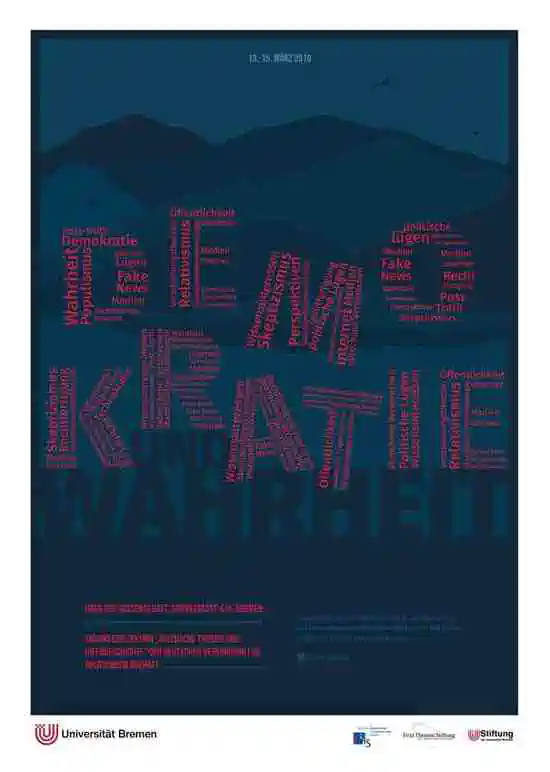
“Democracy and Truth”, 13-15 March in Bremen
The progam for the conference of the DVPW-Section Political Theory and History of Ideas has arrived!
The answer should not be “there is no truth”. Frieder Vogelmann on politics, truth und sciene (in German)
An interview with Clelia Minnetian and Janosik Herder on the relationship between politics and truth.

BEHEMOTH - A Journal on Civilisation
The journal Behemoth publishes semi-annually research articles on contingent and sometimes precarious regimes of (dis)order.
Interview on Politics and Truth
The journal diskurs just published an interview with me by Clelia Minnetian and Janosik Herder. It is mostly about the relationship between politics and truth and what that means for post-structuralist social sciences.

New Article “The Problem of Post-Truth” in Behemoth
My essay “The Problem of Post-Truth” has just been published in Behemoth. A Journal on Civilisation. I argue that the diagnosis of a “post-truth era” is wrong and dangerous. Yet its popularity attests to the fact, that the diagnosis strikes a nerve. So what is that problem that gives rise to the wrong diagnosis of a “post-truth era” yet is not correctly understood by the diagnosis?

The Problem of Post-Truth. Rethinking the Relationship between Truth and Politics
“Post-truth” is a failed concept, both epistemically and politically because its simplification of the relationship between truth and politics cripples our understanding and encourages authoritarianism.
Weder Spar- noch Homogenisierungsprogramm: Politik für und nach der Personalstrukturreform
Remarks on the position paper “Nachhaltigen Nachwuchsförderung” by DGPhil and GAP.
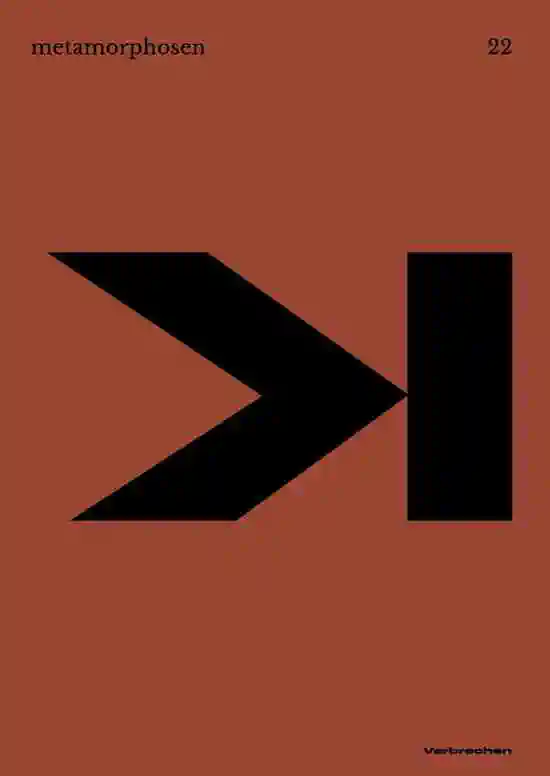
Entsolidarisierung als Programm
In the new issue on “crime” of metamorphosen, you will find a short polemical piece against crime fiction. Why? The short answer is that the genre intends to prevent solidarity with criminals and their crimes. I do have a longer answer, complete with reasons and arguments, but it won’t fit in a simple post. You can find it in the journal though.
![Preventing Solidarity. A Polemic [in German]](/public/publication/2018_metamorphosen/featured_metamorphosen_2018_hu_b7243b727c2504e2.webp)
Preventing Solidarity. A Polemic [in German]
Crime fiction novels are anti-emancipatory, or shorter and more brutal: they are politically right-winged.
Talks November 2018
My next talks in November 2018.
Free Speech: Reasons and Limitations of the Right to Free Speech
“What is freedom of expression? Without the freedom to offend, it ceases to exist.” (Salman Rushdie)
The right to free speech is one of the classic liberal rights. We are used to hearing it defended as such in the public. Yet at the same time, sharp controversies over its scope persist. If Salman Rushdie is right, then there is no claim to any protection from one’s most cherished values being maligned, be they religious or not. Or is there a right to have others limit their use of the right to free speech in such a way as to avoid harm?
Lies, only Lies?! Bullshit, Propaganda and Ideology
“Post-truth,” voted as the word of the year 2016 both in English and German, has become a popular concept, although the exact meaning of the diagnosis of our times as a “post-truth era” remains somewhat elusive.

A Common Stature of Critique? On Foucault, Horkheimer and Adorno
The SAGE Handbook of Frankfurt School Critical Theory, a monumental three-volume set edited by Beverley Best, Werner Bonefeld and Chris O’Kane, has just appeared – containing my chapter on common features of the ‘stature’ of Foucault’s, Adorno’s and Horkheimer’s model of critique.

Biopolitics as a Critical Diagnosis
I argue that the reasons both for the way ‘biopolitics’ stirred Foucault’s readers and for his subsequent abandonment are to be found in the relation between Foucault’s model of critique and the role ‘biopolitics’ plays in it: it names the counter-truths derived from Foucault’s critical diagnosis of the dispositif of sexuality

Reviewing Books (in German)
We, the editors of the Zeitschrift für philosophische Literatur, have written a short article for the blog praefaktisch. In it, we report about the aims, obstacles and joy of running an open-access online journal.
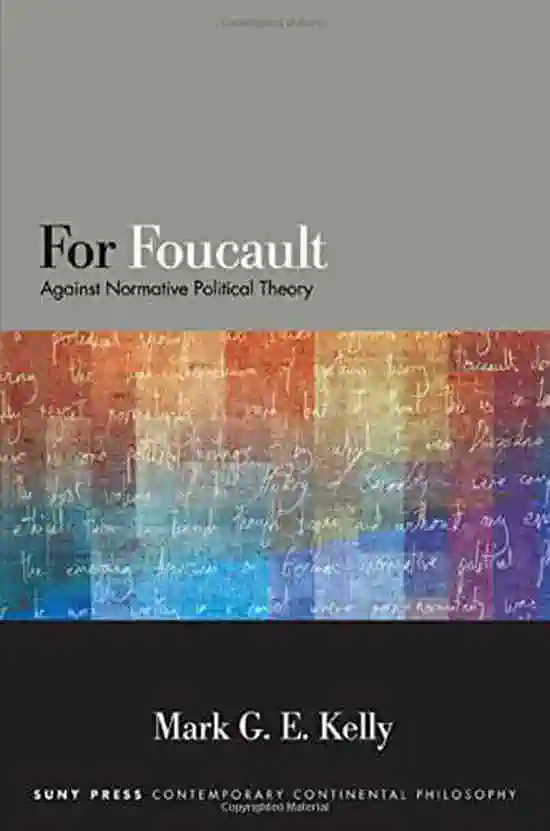
Review of Mark G. E. Kelly (2018): For Foucault: Against Normative Political Theory
Review of Mark G. E. Kelly: For Foucault: Against Normative Political Theory. State University of New York Press, 2018. 202 pages, …
Privacy Policy
Responsible party pursuant to data protection laws, in particular the EU General Data Protection Regulation (GDPR), is
Prof. Dr. Frieder Vogelmann
Professor for Epistemology & Theory of Science
University College Freiburg
Albert-Ludwigs-Universität Freiburg
Bertoldstr. 17
D-79098 Freiburg
E-Mail: frieder-{dot}-vogelmann-{at}-ucf-{dot}-uni-freiburg-{dot}-de
Telefon: +49 761 203 67617
Talks June-September 2018
My next talks from June to September 2018.
Disclaimer
Prof. Dr. Frieder Vogelmann
Professor for Epistemology & Theory of Science
University College Freiburg
Albert-Ludwigs-Universität Freiburg
Bertoldstr. 17
D-79098 Freiburg
E-Mail: frieder-{dot}-vogelmann-{at}-ucf-{dot}-uni-freiburg-{dot}-de
Telefon: +49 761 203 67617
Disclaimer
Please mind the following legal details with respect to the accountability for content and availability of these web pages, to copyright issues and to the accountability for external links.
Marx
Karl Marx certainly is one of the most influential political theorists of all times. Yet this is already subject to debate, for is Marx really a political theorist? Is he not, first and foremost, an economist, a philosopher—or a revolutionary? Thus, we find very different ideas how to interpret Marx’ texts lurking behind these questions. In our seminar, we will focus on Marx’ political thought—which of course can neither be simply separated from his economic theory nor from his philosophical foundations. At the same time, the seminar is intended as an introduction to Marx. Hence we will read texts from all periods of his work, from On the Jewish Question (1843) and his Economic and Philosophic Manuscripts (1844) to the first volume of Capital (1867). Precisely because Marx writing is as brilliant as it is difficult, his texts must be interpreted. Hence we will also look at how his texts have been read – for only the debate how to interpret Marx accounts for his actually in the 200th year after his birth.
Tutorial for the Introduction to Political Theory
This is a tutorial for the lecture “Introduction to political Theory” by Prof. Dr. Martin Nonhoff.
CfP: Democracy and Truth
Martin Nonhoff and I are organising the spring conferecne of the DVPW-Section Political Theory and History of Ideas in March 2019. The conference topic (and title) is “Democracy and Truth”. You can find the call for papers by clicking on “Read more” or download it as a PDF . Both are in German, though, as this will be the conference language.

Against Responsiility
I have writen a small teaser for my book The Spell of Responsibility on the RLI blog. Read it on https://www.rowmaninternational.com/blog/against-responsibility.
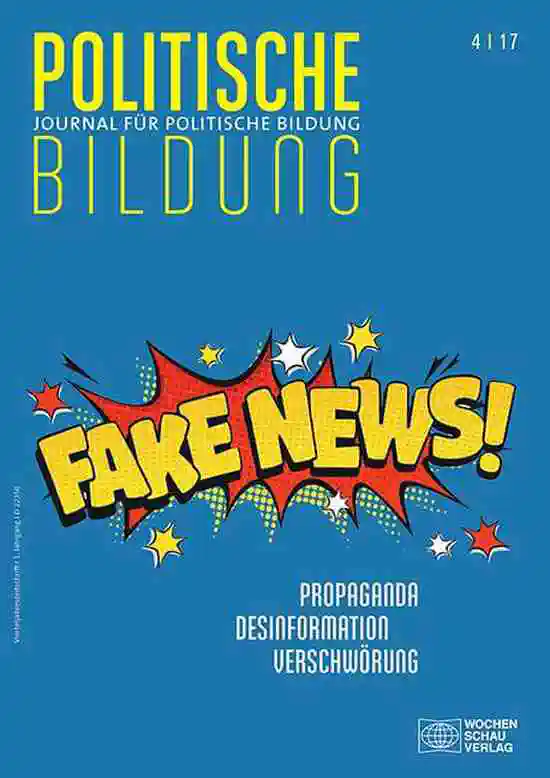
Food for Thought in Journal für politische Bildung
The Journal für politische Bildung issue 4/2017 is out. It focuses on propaganda, disinformation and conspiracies with articles by Juliane Wetzel, Johannes Baldauf and Jan Rathje, Manfred Pappenberger, Claus Leggewie - and myself.
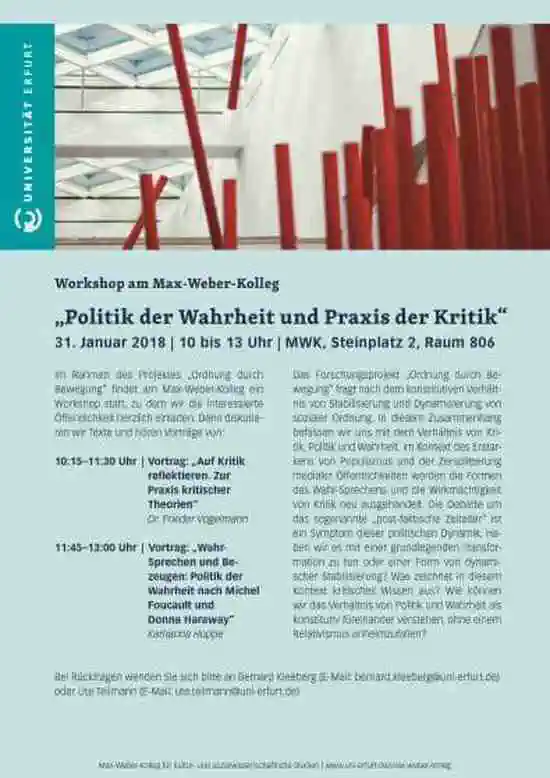
The Politics of Truth and Practices of Critique
This workshop (in German) will take place on 31 January 2018 at the university of Erfurt. Katharina Hoppe will give a talk on “Wahrsprechen und Bezeugen: Politik der Wahrheit nach Michel Foucault und Donna Haraway”; my own presentation is entitled “Auf Kritik reflektieren. Zur Praxis kritischer Theorien”.

Demokratische Wahrheit statt postfaktischer Politik
Speaking of an “era of post-truth” is popular but wrong.
Vom Nutzen und Nachteil der Moralphilosophie in der Politischen Theorie
In Frankfurter Allgemeine Zeitung, 1 November 2017, Julian Culp reviewed the special issue of the journal Mittelweg 36 that Martin Nonhoff and I edited: Politische Theorie in der Krise. Now our reply has been published in FAZ, 27 Dezember 2017.

The Spell of Responsibility
Still searching for a last minute present? Look no further: Daniel Steuer’s translation of my dissertation Im Bann der Verantwortung has arrived! Significantly shortend and revised, it has just been published as volume two in the series Essex Studies in Critical Theory.

The Spell of Responsibility. Labor, Criminality, Philosophy (translation of Im Bann der Verantwortung)
What is the significance of the fact that ‘responsibility’ now plays such a central role in, for example, work, the welfare state, or the criminal justice system? What happens when individuals are generally expected to think of themselves as ‘responsible’ agents? And what are the consequences of the fact that the philosophical analysis of ‘responsibility’ focuses almost exclusively on conditions of agency that are mostly absent from real life?
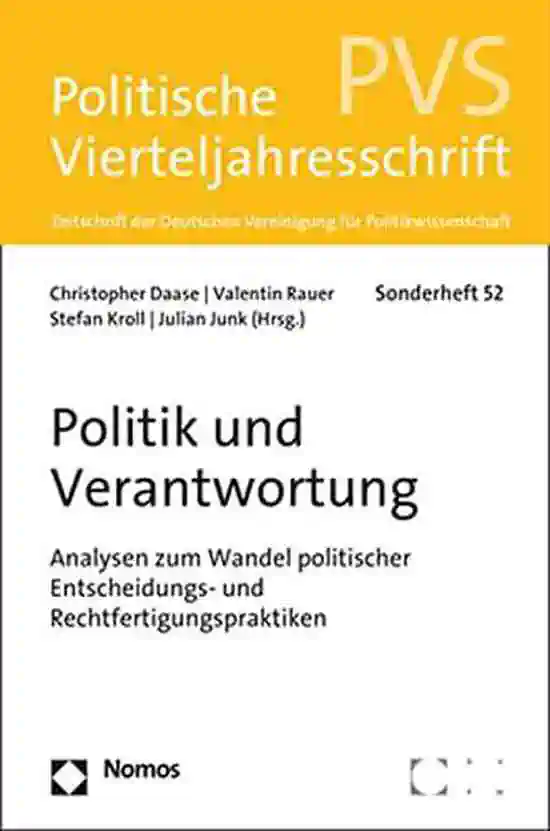
Souveräne schaffen und beschränken. Vorarbeiten zu einer Genealogie politischer Verantwortung
The article traces genesis and changes of the concept of political responsibility in the practices in which it is used
Alone On Top (Einsame Spitze)
Paul Munzinger writes very interestingly about the extreme hierarchies at German universities in Süddeutsche Zeitung. And: The Bremen initiative in the political science institute is mentioned! For more on our perspective, see the text by Angelika Schenk, Arndt Wonka and myselfe: Jenseits der Infantilisierung.
Upcoming Talks in November/December 2017
My next talks in November/December 2017.
Feminist Political Theory
Feminist political philosophy does have its favourite topics – including, but not limited to, gender justice, the politicization of the seemingly private or the debates on pornography or abortion, among others. Yet feminist political philosophy cannot be defined by these topics, for it aims at a different kind of political philosophy by incorporating questions concerning the oppression of women because of their gender into its methods of inquiry. The resulting theories are in deliberate tension to a traditional, value-free or neutral idea of science, thus requiring additional reflexivity. By reading classic texts of feminist political philosophy in the seminar, we will analyse both the substantial topics as well as the methodological implications embedded in feminist interventions in political theory. For above all, feminist political philosophy is a politicization of theory.
The Critique of Democracy
Democracy and critique belong together—at least this is the working hypothesis of this seminar. In the course of the 14 weeks, we will analyse the relation between democracy and critique from its two sides: On the one hand, we will read and discuss different forms of contemporary, as well as historically influential, critique directed against democracy. Here, we find both objections against specific conceptions of democracy—for example, against representative democracy or against the current “post-democratic” state of democracy—and fundamental critique of democracy as such, e.g. because it is said to turn necessarily into anarchy or mob rule.
Beyond Infantilization - Symposium [in German]
[As this is a political discussion about the intricacies of the institutional set-up of German Universities and how to improve the so-called Mittelbau, I have not translated the text. Anyone interested in these details is probably able to read German anyway.]
Der unter_bau hat mich eingeladen, über die politische Initiative zur Umwandlung des Mittelbaus in (tenure-track Junior-)Professuren am Institut für Politikwissenschaft der Universität Bremen zu diskutieren. Die Argumente für diesen Weg in Richtung eines Department-Modells - statt der Verdauerung von Mittelbau-Stellen - haben Angelika Schenk, Arndt Wonka und ich in Jenseits der Infantilisierung skizziert.
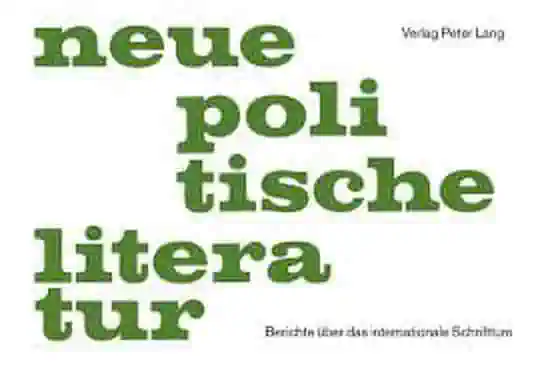
Review of Michel Foucault: Subjektivität und Wahrheit. Vorlesungen am Collège de France 1980–1981 and Pravu Mazumdar (ed.): Foucault und das Problem der Freiheit
Review of Michel Foucault: Subjektivität und Wahrheit. Vorlesungen am Collège de France 1980–1981, 414 pp., Suhrkamp, Berlin 2016 …
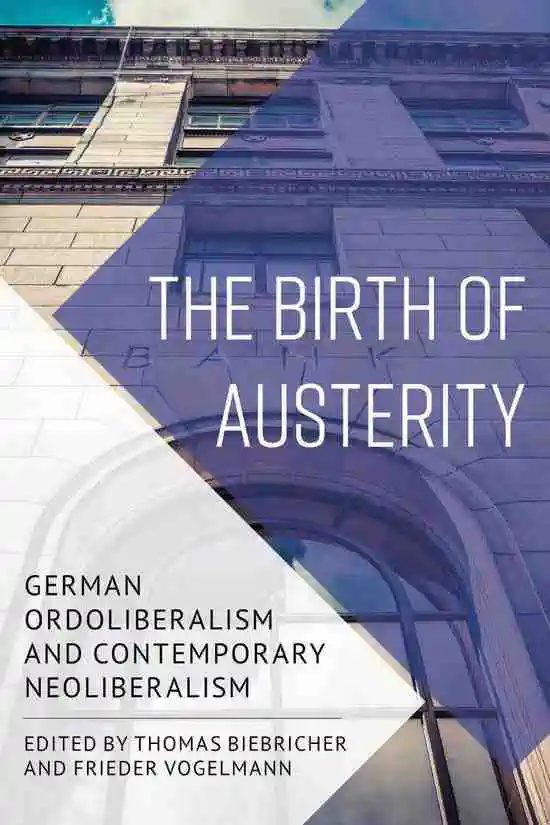
The Birth of Austerity. German Ordoliberalism and Contemporary Neoliberalism
This volume gathers together English translations of seminal ordoliberal texts as well as analyses of contemporary issues in light of ordoliberal thought.
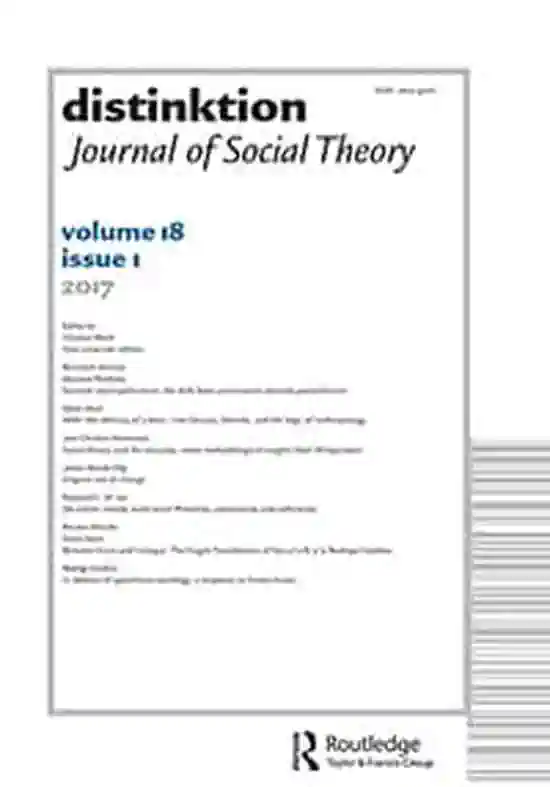
New Article in Distinktion
Distinktion: Journal of Social Theory just published my article on Foucault’s critique.

Critique as a Practice of Prefigurative Emancipation
Interpretations of Foucault’s critique have not payed full attention to all three of Foucault’s methodological imperatives which he calls nihilism, nominalism and historicism. The article offers such a reading of Foucault’s critique.

Out now: Special Issue of Foucault Studies on Discipline and Punish Today
All conferences yearn to become published - and ours is no different: From the conference “Überwachen und Strafen heute” that I organized together with Jörg Bernardy at the University of Bremen in 2015, a small selection of articles has now been published in the journal Foucault Studies.

Discipline and Punish Today
The articles in this special issue of Foucault Studies originate from the conference “Überwachen und Strafen heute”, held in November 2015 at the University of Bremen, Germany. An account of the conference (in German) can be found on the website Soziopolis.

Introduction: 40 Years after Discipline and Punish
This introduction diagnoses two tendencies among Foucaultian scholars with regard to Michel Foucault’s Discipline and Punish.
Upcoming Talks, September 2017
The next talks I will give are scheduled for September 2017.
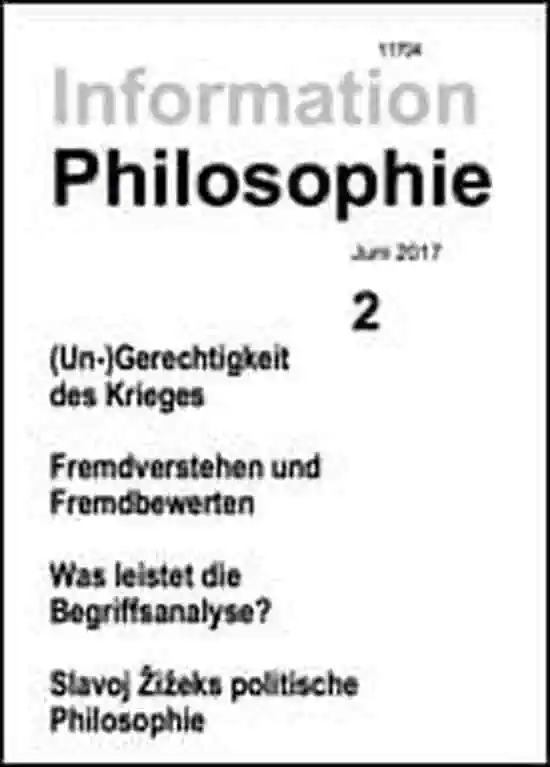
Was leistet die Begriffsanalyse? Stellungnahmen von Gottfried Gabriel, Joachim Horvath, Christoph Schamberger und Frieder Vogelmann
Was leistet die philosophische Begriffsanalyse? Inwiefern ist dies ein Beitrag zur Erkenntnis der Welt? Ist sie das zentrale Werkzeug der Philosophie? Wo liegen ihre Grenzen?
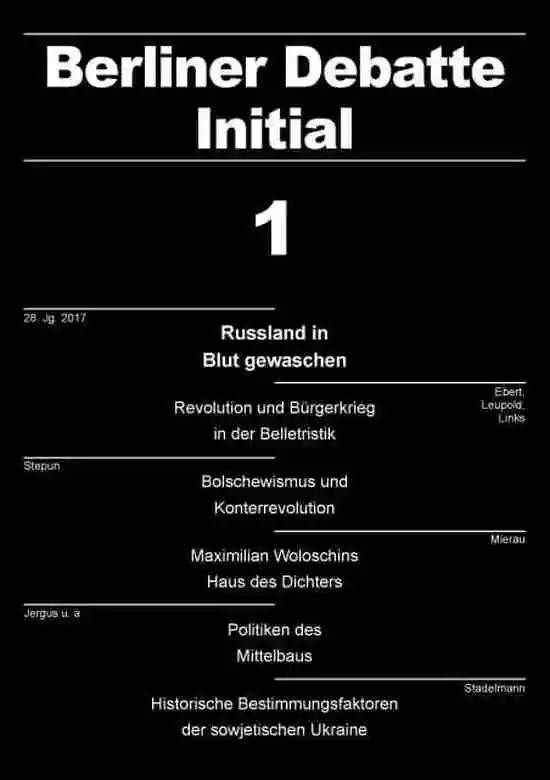
Jenseits der Infantilisierung. Plädoyer für einen Personalstrukturwandel an deutschen Universitäten
How can we change the miserable situation of “young” researchers at German universities - and in what way?
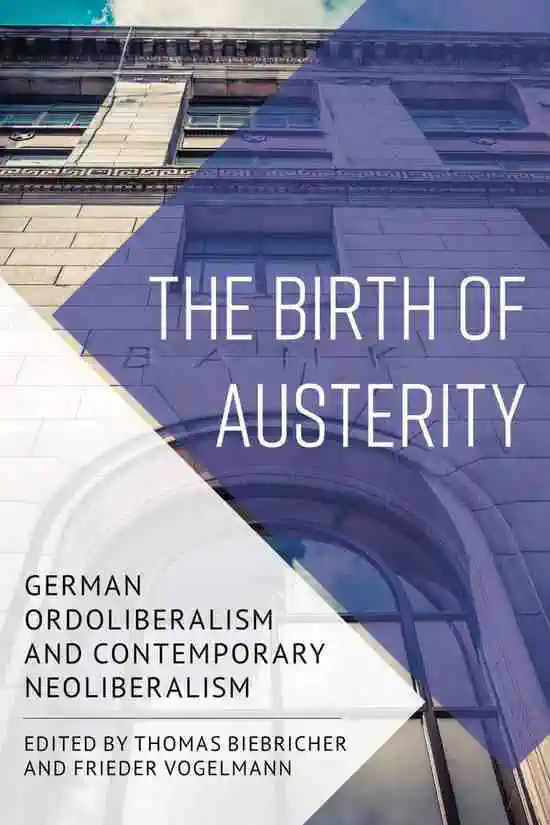
The Birth of Austerity
Together with Thomas Biebricher I have put together a rather special edited volume: The Birth of Austerity. German Ordoliberalism and Contemporary Neoliberalism provides key texts from core thinkers of ordoliberalism, some of them translated into English for the first time, and features four original analyses that show why ordoliberalism is back on the agenda for critics and defenders alike.
The History of Sexuality, Volume I: An Introduction. Foucault’s Analysis of Sexuality, Biopolitics and Racism
Michel Foucault’s first volume of his project of a “history of sexuality” is a modern classic. In it, Foucault systematizes and further develops the concept of power he has been working on since the beginning of the 1970s. Using historical material to sharpen the concept, Foucault arrives at three ambitious, far-reaching and hugely influential theses: First, sexuality is not a natural yet repressed phenomena; it rather is a modern invention of the 19th century, systematically nurtured by the dominant powers. Thus struggles against the repression of sexuality are far less liberating than they take themselves to be. On the contrary, they are actually complicit with the power they want to fight against. Second, this power is no longer the sovereign power political philosophy usually speaks of, and even is not only the disciplinary power Foucault described in Discipline and Punish (1975). Instead, it must be conceptualized as “bio-power”: the power to foster life and to let die. Third, this bio-power is no less deadly than other forms of power; the legitimation of ever larger massacres will now be found in a new form of state racism.
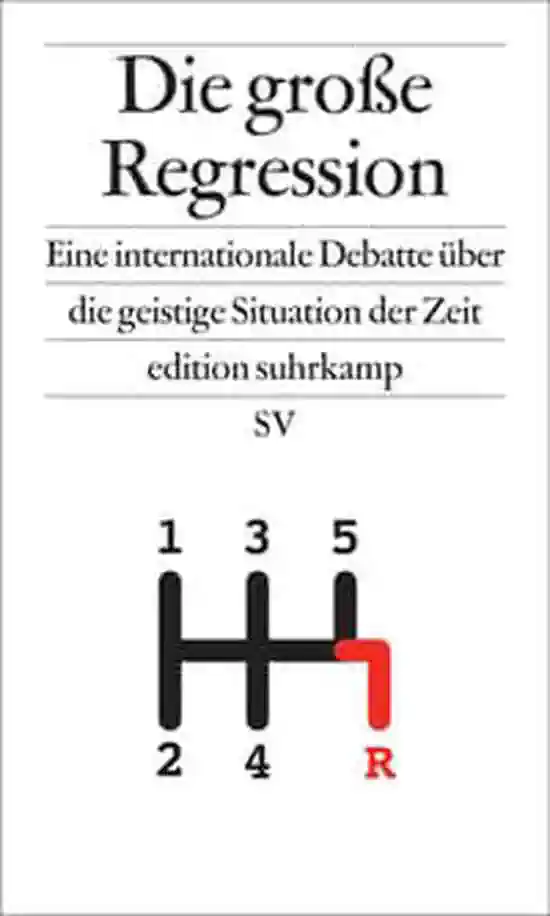
Stichworte zur politischen Situation der Zeit. Ein kritischer Sammelband thematisiert “Die große Regression”
Suhrkamp publishes today a collection of essays called “Die große Regression. Eine internationale Debatte zur geistigen Situation der Zeit” which will be published in several countries more or less simulteaneously. My review of some of the political diagnoses presented in the volume is now online: https://www.soziopolis.de/stichworte-zur-politischen-situation-der-zeit.html.
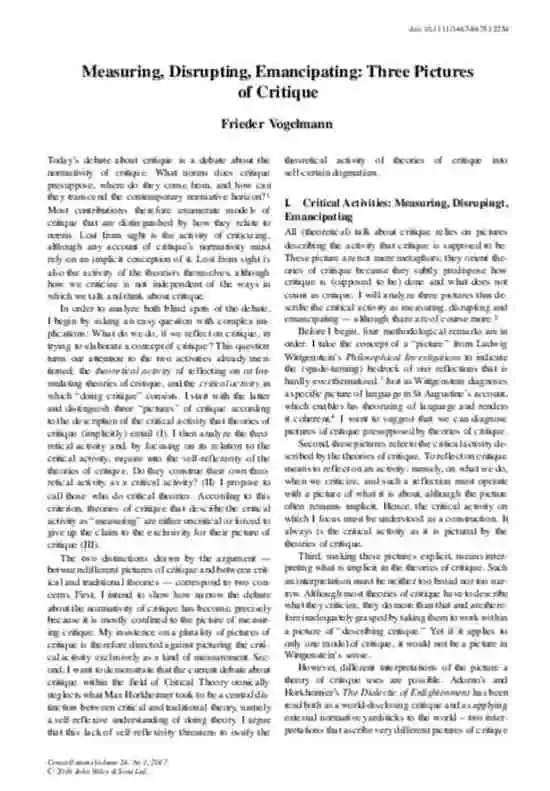
Measuring, Disrupting, Emancipating: Three Pictures of Critique
After distinguishing three pictures of the activity of critique – measuring, disrupting and emancipating critique – I discuss the theoretical activities these pictures commit critical theorists to.
Upcoming Talks, January/February 2017
The next three talks I will give in January and February 2017.
“Post-Truth”: The Authoritarian Temptation (in German)
Why “post-truth” is the wrong concept, analytically and politically.
Post-Truth: The Authoritarian Temptation
Just before the end of this year, I wrote a small essay - an interjection, really - on the concept “post-truth” and its German counterpart “postfaktisch”. Both have been voted as the “word of the year 2016”, and both favour a diagnosis of the present that is as unhistorica as it is politically misleading. It has been published (in German only) on Soziopolis: https://www.soziopolis.de/postfaktisch.html.
French Political Theory II
This seminar is the second part of an introduction to French political philosophy since 1945. Having focused on Existentialism (mostly on Sartre, Camus and Beauvoir) as well as Structuralism (mostly on Althusser and Barthes) in the previous semester, this semester will revolve around Post-Structuralism widely understood (especially Foucault, Deleuze and Derrida). Although the seminar continues straightforwardly from the previous discussions, it is explicitly open for new students. It three general aims are: Firstly, we want to get an overview of the rapid development in French political philosophy. Secondly, we want to see what commonalities we can find in the (fervid) disputes between the different theorists: What are the shared themes, concepts or problems from which we can understand the different theories? Thirdly and finally, we will analyse the respective concepts of politics and the respective tasks attributed to political theory as they appear in the thoughts of the different theorists.
Modern Social Theory
The purpose of the course is to discuss key questions of modern social theory by studying classic and contemporary texts that have shaped the current debate. On the basis of these texts, we will elaborate central concepts for the analysis and evaluation of modern societies. Topics for discussion include the methodological status of social theory, different characterizations of modern society, the relation of agency and structure, the critique of certain features of modern society and the relevance of the categories of race and gender. The course will serve as a general introduction to modern social theory – it does not require any previous knowledge of this field, but the willingness to engage with complex theoretical texts and their arguments.
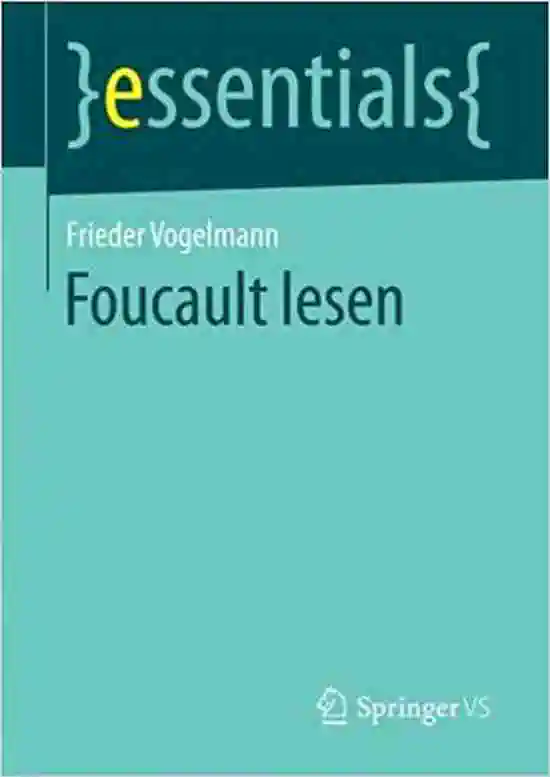
Foucault lesen
A systematic and philosophical reading of Foucault.

Reading Practices - How to Read Foucault? Review of Daniel Zamora/Michael C. Behrent (Hrsg.): Foucault and Neoliberalism and Mitchell Dean/Kaspar Villadsen: State Phobia and Civil Society. The Political Legacy of Michel Foucault
Review of Daniel Zamora/Michael C. Behrent (Hrsg.): Foucault and Neoliberalism and Mitchell Dean/Kaspar Villadsen: State Phobia and …
New Website
This website complements my website at the Institute for Intercultural and International Studies (InIIS). It was created with Hugo and the (somewhat modified) Hugo Academic Theme.
French Political Theory I
This seminar is the first part of an introduction to French political philosophy since 1945. It has three aims: Firstly, we want to get an overview of the rapid development in French political philosophy. Secondly, we want to see what commonalities we can find in the (fervid) disputes between the different theorists: What are the shared themes, concepts or problems from which we can understand the different theories? Thirdly and finally, we will analyse the respective concepts of politics and the respective tasks attributed to political theory as they appear in the thoughts of the different theorists.
To be Governed without Fear. Anarchic Answers to Liberal Questions
In 1976, Michel Foucault closes a depressing interview about prisons in the USSR with his diagnosis that actually existing socialism had never invented its own governmental rationality (and neither had Marxism as a whole). Instead, it would govern through a totalitarian bureaucracy, and hence Foucault concluded that it would be urgent to invent new ways of governing which should be neither liberal nor totalitarian: “[T]o invent a way in which power can be exercised without instilling fear. That would be a true innovation.” The liberal answer to that question is well-known; in a simplified Habermasian version it is the combination of public and private autonomy in a democracy under the rule of law. In the seminar, we will examine arguments to the effect that this combination of self-government in legal form is not as free of fear as it pretends to be. We will also look at alternative answers to the liberal question from heterodox traditions like anarchism and assessment whether they do indeed instill less fear.
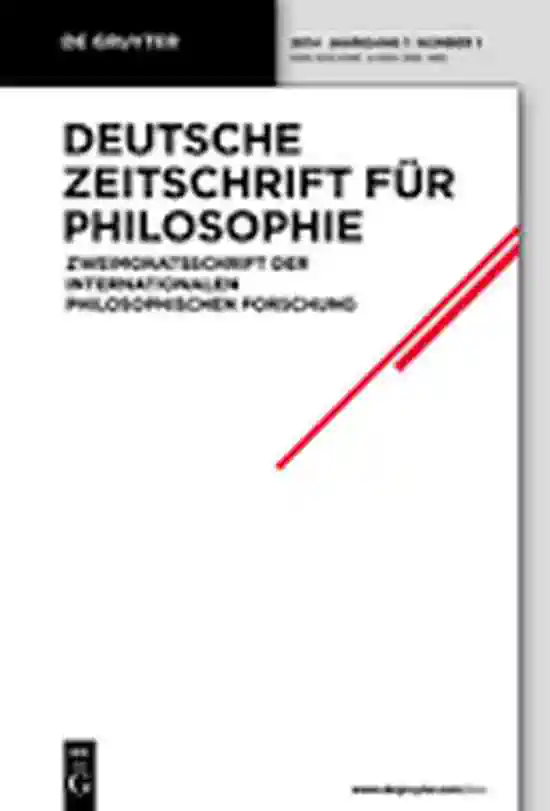
Drei Gefahren philosophischer Begriffsanalysen von Verantwortung
A framework for writing the history of “responsibility” in philosophy.
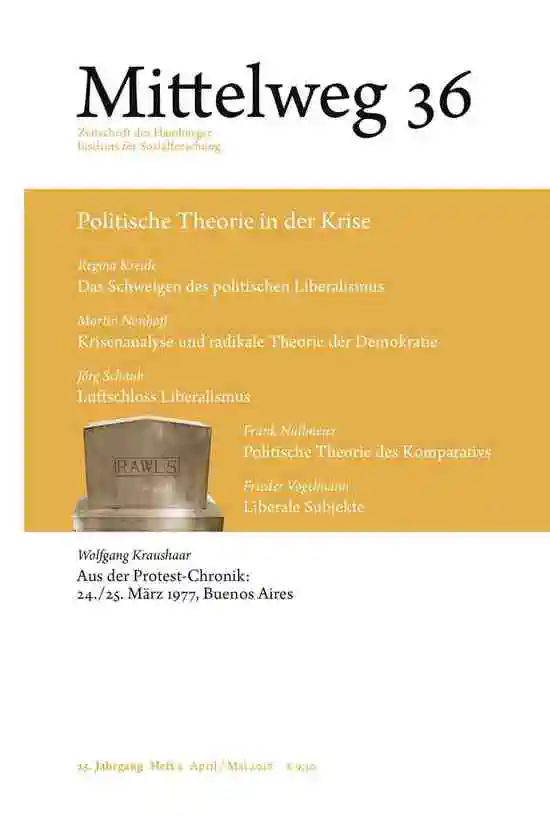
Liberale Subjekte. Eine affirmative Streitschrift
Der Beitrag untersucht das von liberalen Theorien produzierte Wissen. Er folgt dazu drei Selbstbeschreibungen des politischen …
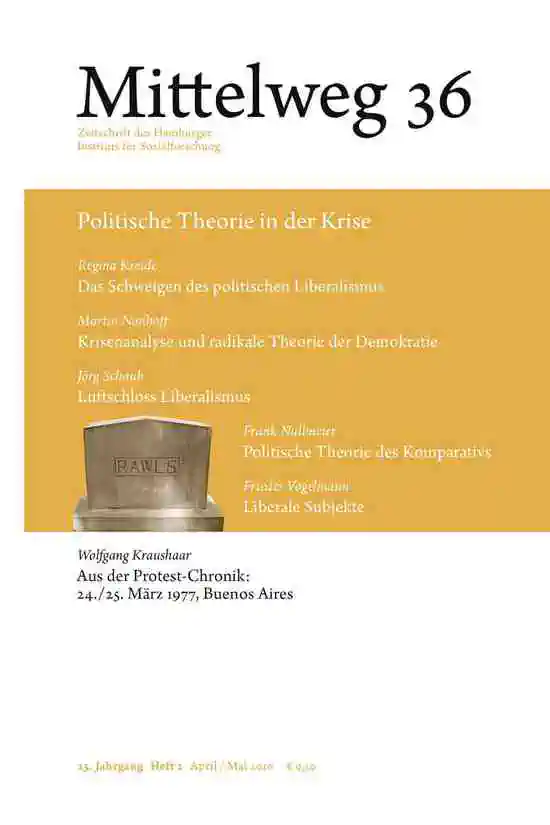
Politische Theorie in der Krise
Is political theory’s irritating silence regarding today’s crises a result of a political liberalism that turns political …

Schwerpunkt: Verantwortung – ein umkämpfter Begriff
Der Schwerpunkt Verantwortung – ein umkämpfter Begriff versammelt vier Beiträge zum Vorantwortungsbegriff von Nicola Lacey, Julia Eckert, Eva Buddeberg und Frieder Vogelmann.

Der kleine Unterschied. Zu den Selbstverhältnissen von Verantwortung und Pflicht
Die Debatte um die Differenz von “Verantwortung” und “Pflicht” ist kein bloßer Streit um Wörter, geht es doch um Begriffe, für die der …
Introduction to Academic Research and Writing in Political Science
Dieses Seminar, unterstützt durch ein Tutorium, verfolgt das Ziel, Sie in die Grundlagen politikwissenschaftlichen Arbeitens und der politikwissenschaftlichen Forschungslogik einzuführen. Dabei geht es darum, Ihnen das elementare Rüst- oder Handwerkszeugs zu vermitteln, das Sie in die Lage versetzt, künftig selbständig zu arbeiten und zu forschen. Bis Ende des Semesters sollten Sie insbesondere gelernt haben:
Plato’s Politeia in Political Theory
Plato’s Politeia is one of the most fundamental texts for political philosophy, and modern political theory still struggles with it. Hence, interpretations abound: On the one hand, Plato has been and is criticized for being a totalitarian thinker or for being anti-democratic because politics in his view should be ruled by philosophy. On the other hand, others still defended his thesis that politics must strive to establish a just order. The seminar will therefore have two parts: We will read Plato himself, before turning to interpretations from Popper to Badiou.
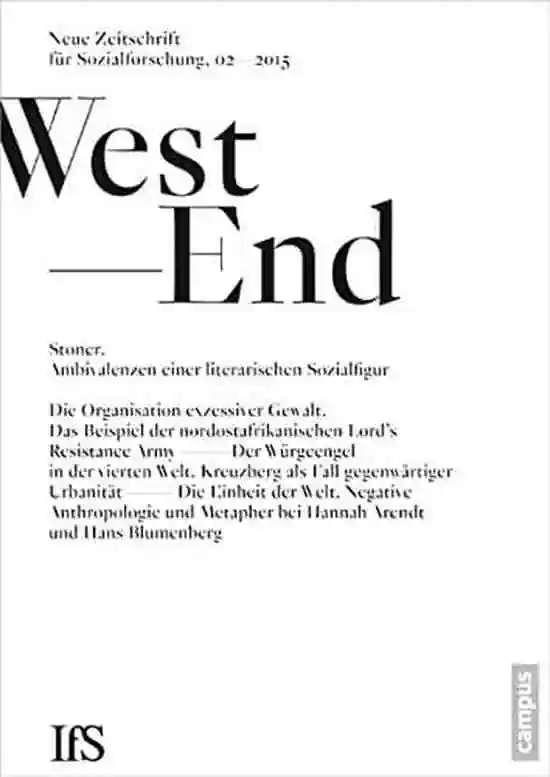
Sokrates in Missouri
This article belongs to Axel Honneth’s special issue “Stoner - Ambivalenzen einer Sozialfigur”.
Political Knowledge
Political knowledge might mean very different things: knowledge that is politically dangerous (e.g. because it might damage a rival’s chances in an election campaign), or knowledge that is politically contested (how to do a census, how the poverty report should be published, what records are handed over to an inquiry commission). In addition, it might mean knowledge about politics, whether the knowledge of political actors or the knowledge produced by political science. The seminar has two aims: On the one hand, it will give an overview of the different forms of political knowledge and how they are conceptualized in political theory. On the other hand, the seminar aims to take seriously the self-reflexive dimension of its topic: For when political theory asks about political knowledge it automatically asks about its own doing. But what methods does political theory have to address this task? And what would be a critical theory of political knowledge?
Tutorial for the Introduction to Political Theory
This is a tutorial for the lecture “Introduction to political Theory” by Prof. Dr. Martin Nonhoff.

Alternative Governmentalities
How can we govern in such a way that those governed need not fear those governing? What if the usual answer of political philosophy, namely “autonomy,” is not sufficient?
Allein das Recht? Emanzipatorische Vorstellungen angstfreien Regiert-Werdens
Eutopia is offline.

Concepts of Critique
How do we picture the activity of criticising, and how does this influence our theoretical activity of explicating the concept of critique? What kind of knowledge do we produce in criticising? And what is the relation between critique and necessity?
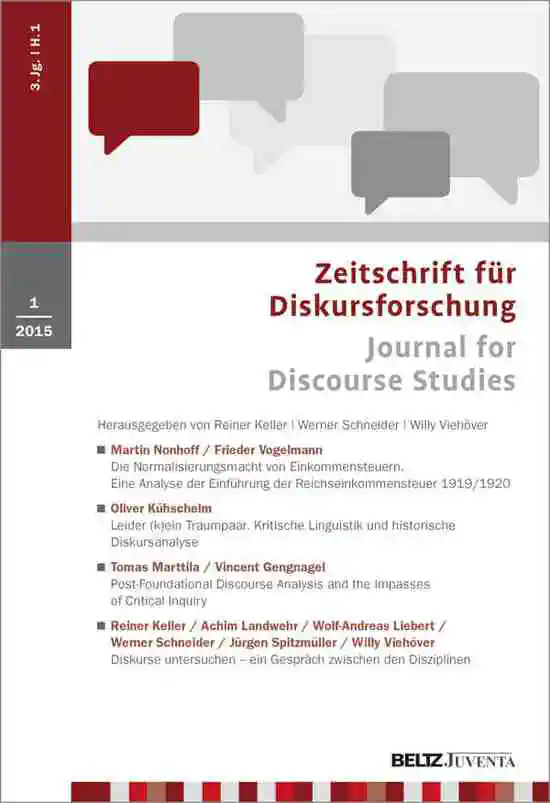
Die Normalisierung von Einkommensteuern. Eine Analyse der Einführung der Reichseinkommensteuer 1919/1920
The power of the modern state becomes manifest particularly in its capability to produce subjectivities of citizen. One obvious but little researched means of state subjectivation is taxation.
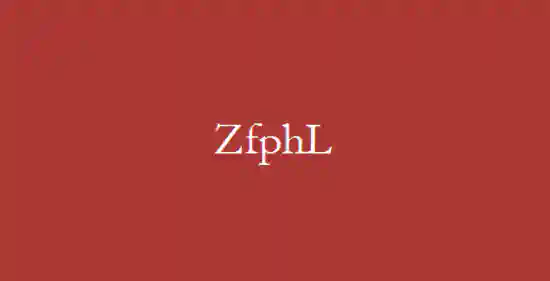
Zeitschrift für philosophische Literatur
Zeitschrift für philosophische Literatur is a peer-reviewed open-access online journal for book reviews in scholarly philosophy.
The Circle of Criminal Responsibility. Juridicism in Klaus Günther’s Discourse Theory of Law
Klaus Günther’s discourse theory of law links the concept of criminal responsibility with the legitimacy of democratic law. Because …
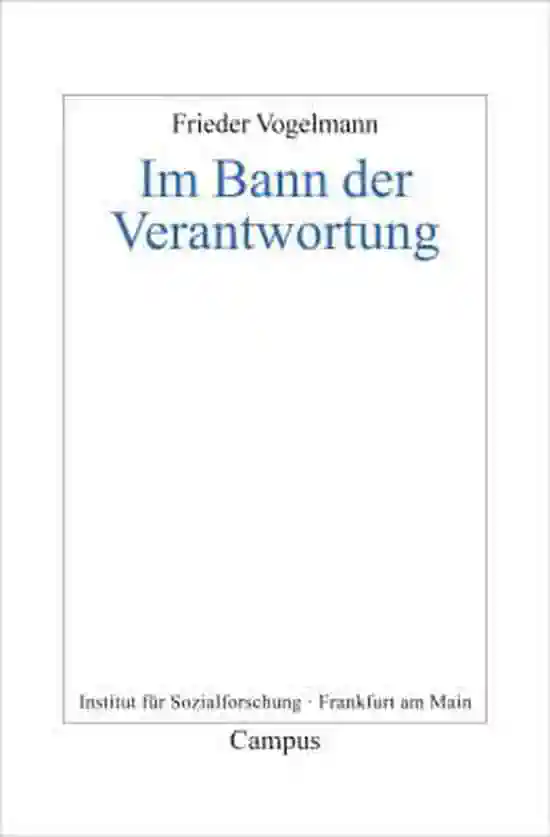
Im Bann der Verantwortung
Most people would agree that we should behave and act in a responsible way. Yet only 200 years ago, ‘responsibility’ was only of …
Democracy and Anarchy. Ungovernableness in Self-Government
If democracy is not simply the name of a institutional type of government, but an endless insurgent against the state (Abensour), the true name of politics as a disruption (Rancière) or an event to which one decides to be faithful (Badiou), then we can speak of an anarchic element within democracy. These (and other) theories of radical democracy highlight a moment of ungovernableness which is said to be constitutive of democracy. From another direction, anarchism has rethought democratic forms of self-organisation which function independent of repressive state-apparatuses.
Theories of Power
Power is a fundamental concept of political science – but what is “power”? From the beginning of political thought, power has been repeatedly reconceptualized and has been subject to a long, complex and on-going debate. Because different concepts of power make a profound difference the analysis of political phenomenon, we aim at making this debate accessible. Therefore, we will investigate the different theories of power from thinkers such as Aristotle or Machiavelli to Arendt, Luhmann or Foucault.
Habermas, die Demokratie, die Ökonomie
Die folgenden Überlegungen fragen, ob Habermas über die begrifflichen Ressourcen verfügt, nicht nur die politischen Grundlagen der …
Kraft, Widerständigkeit, Historizität. Überlegungen zu einer Genealogie der Wahrheit
Does truth have a history? Whereas Bernard William denies it and only allows a history of truthfulness, I defend the possibility of a …
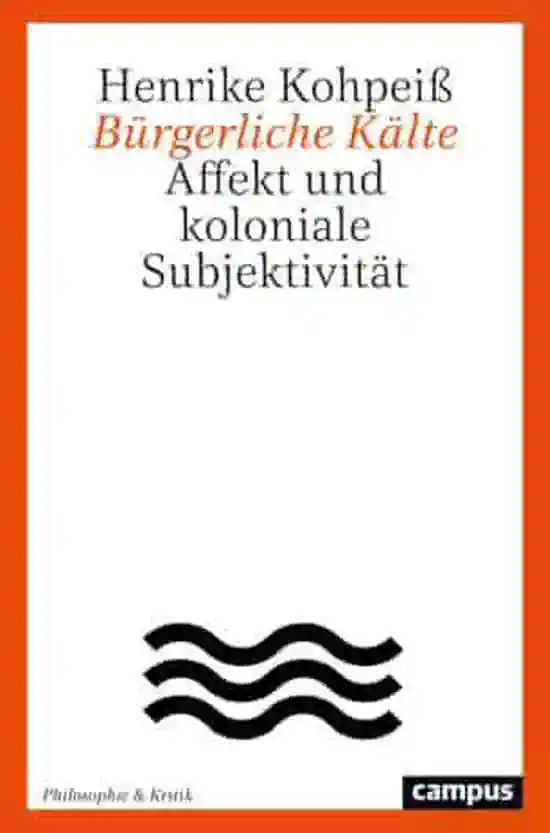
Philosophie & Kritik. Beiträge zur politischen Philosophie und Kritischen Theorie
The book series Philosophie & Kritik. Beiträge zur politischen Philosophie und Kritischen Theorie will start in 2017 with Springer VS. It publishes books which understand themselves as politically engaged philosophy.
Jürgen Habermas as Political Theorist
Within Jürgen Habermas’ philosophical work, political philosophy is of central importance. Habermas has, however, always reworked both his theoretical fundaments and the answers they provide to questions concerning the rule of law in a democratic state, the connecting between capitalism and democracy or politics beyond the nation-state. His last great theoretical effort produced Between Facts and Norms (1992) which forms the backbone of his current political philosophy. The seminar therefore starts with discussions of selections from Between Facts and Norms, before it focuses on different political questions in Habermas’ more recent writings (such as the future of the European Union or democratic capitalisms/capitalist democracy) and some important objections.
Methods of Political Theory
What does Political Theory do—and how? The question shows the difficulty in talking of “methods” in Political Theory, for it already seems hard to name the objects it studies. Because the objects and the methods used to analyze them are internally related, the seminar will have to take up both questions: what methods Political Theory uses and what Political Theory is.
Readings on Power
An overview of the debates about the concept of power.
Die Zukunft Europas zwischen Demokratie und Kapitalismus
The European Union’s ongoing “crisis” has forcefully turned attention to the problematic relation between democracy and capitalism. We …
Intensivieren, umordnen, explizieren. Verantwortung im philosophischen Diskurs
Die philosophischen Reflexionen zu “Verantwortung” erfolgten in den 1980er Jahren an drei Brennpunkten und lassen sich als …
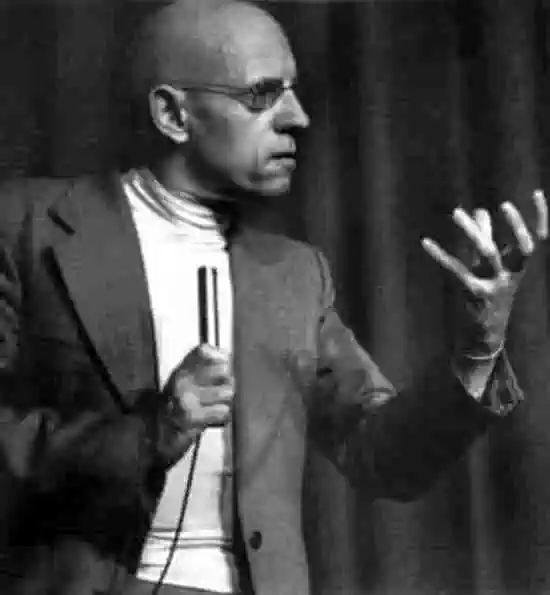
Michel Foucault’s Philosophy
From a systematic perspective I am especially interested in Michel Foucault’s methodology and the resulting conception of (political) philosophy as well as his attempts to write a non-relativistic ‘History of Truth’.
Democracy and Truth
The relationship between truth and democracy has always been a troubled one: On the one hand, democracy seems to ignore what is true, since democracy is the rule not of truth but of majority. On the other hand, democracy is often seen as a “truth machine”, for it requires deliberation before decision. Both sides still affirm truth as unproblematic, but if we start with democracy instead, too much truth seems equally threatening: for then the rule of the demos turns into the rule of experts, technocracy – or in the rule of truth itself, captured in the image of the philosopher king. And yet, democracy seems bound to the power of truth. So these (and further) dimensions of the problematic relation between truth and democracy will be at the heart of the seminar.
John Rawls’ Justice as Fairness
The revival of political philosophy in the 20th century is to no small extended due to the work of John Rawls. Published in 1971, A Theory of Justice first offered a conception of justice as fairness that Rawls later works – Political Liberalism (1993) and The Law of Peoples (1999) – further developed, refined and generalized to the international sphere. Thirty years later, in Justice as Fairness: A Restatement, Rawls integrates his later work systematically into to a restatement of his theory of justice. Thus, this book serves as an ideal entry into Rawls’ thought.
Political Responsibility. On the Development of a Concept
In a spectacularly short time, the concept of responsibility has risen from obscurity to prominence: Coined as a political concept in the debates surrounding the democratic revolutions in America and France, it was used to rethink the relation between the government and the people or the government and the parliament. These beginnings as well as the subsequent developments – its individualization in ethics (Max Weber), its usage to cope with an unbearable past after World War II (Karl Jasper), its connection to sustainability (Hans Jonas) and its newest offspring in international relations, the “responsibility to protect” – are the core themes of this seminar.
What is Feminist Political Philosophy?
Feminist political philosophy does have its favourite topics – which include gender justice, the politicization of the seemingly private or the debates on pornography or abortion, among others. But the feminist political philosophy cannot be defined by these topics, for it aims at a different kind of political philosophy by incorporating questions concerning the oppression of women because of their gender into its methods of inquiry. The resulting theories are in deliberate tension to a traditional, value-free or neutral idea of science, thus requiring additional reflexivity. By reading classic texts of feminist political philosophy, the seminar intends to analyse both the substantial topics as well as the methodological implications embedded in feminist interventions in political theory. For above all, feminist political philosophy is a politicization of theory.

Eine erfundene Krankheit? Zur Politik der Nichtexistenz
Vielleicht sind wir uns bereits dort zu sicher, wo wir noch zweifeln. Vielleicht wurde Burnout ja vorschnell zur “Volkskrankheit” …
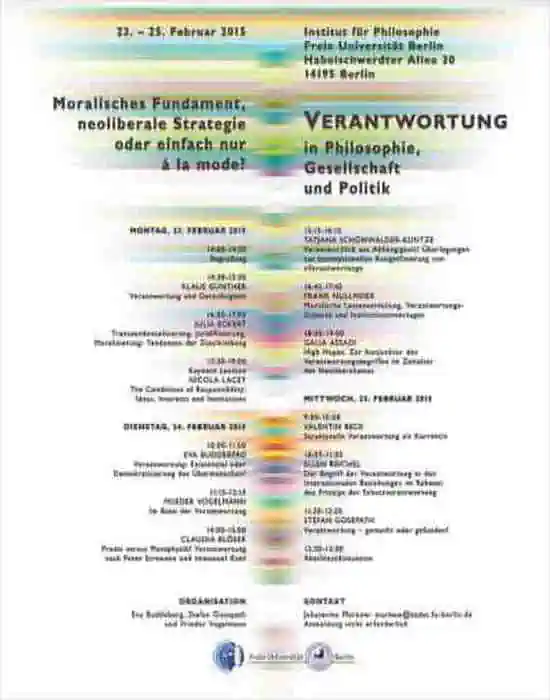
Responsibility
That we should behave and act responsibly seems to be a self-evident norm hardly questioned by anyone. Yet, historically speaking, this is fairly new – only 200 years ago, “responsibility” was a rather marginal legal concept with no ethical significance. So what does the surprising career of “responsibility” mean, both for our thinking and our acting? What happens when “responsibility” becomes a required self-understanding for individuals at the workplace, in the welfare state or in the criminal justice system? And what are the consequences when philosophy’s analyses of “responsibility” focus almost exclusively on conditions of agency mostly absent in non-philosophical practices?
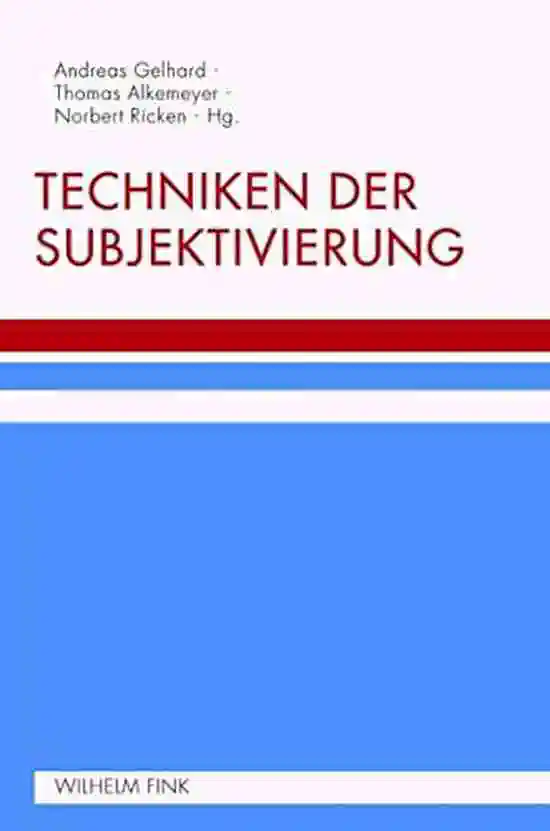
Verantwortung als Subjektivierung. Zur Genealogie einer Selbstverständlichkeit
Die Behauptung, dass Verantwortung eine Subjektform sowie die Technik zu ihrer Herstellung bezeichnet, wird kaum Erstaunen auslösen. …
Capitalism and Democracy: Histories of a Troubled Relationship
The relationship between capitalism and democracy is a fragile one, even before the current crisis in Europe that so forcefully reminded many of that fact. While Chancellor Merkel is confident that “we’ll find ways to redesign the Parliament to make it conform to markets” (Press conference September 1st, 2011), thus trying to resolve the relationship so as to establish a market-conform democracy, others – like Attac – insist that it is time to unleash democracy instead of markets. Both presuppose the relationship between capitalism and democracy to be antagonistic, making them incompatible. It seems that believe in a “peace formula” (Offe) – like the social state once promised to be – has been exhausted.
Michel Foucault’s Political Philosophy
Michel Foucault is without doubt one of the most influential thinkers in the 20th century whose writings have been read and reread to further political analyses. But do they amount to a political philosophy? Foucault’s interpretation of the relationship between politics and philosophy is controversial: because there are many rivaling readings of what he offers, but, more important, because his account of this relationship puts him in opposition to most of what is considered political philosophy today.
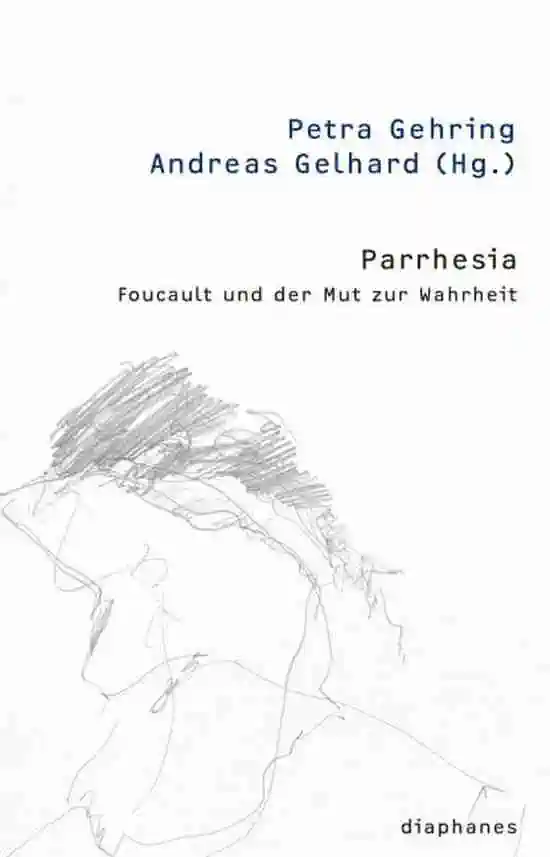
Foucaults parrhesia – Philosophie als Politik der Wahrheit
In seinen letzten beiden Vorlesungen untersucht Foucault anhand der historischen Praxis des freimütigen Sprechens auch seine eigenen …
Foucaults Praktiken
The article explains the conceptual conditions that Focuault’s notion of practices must meet and considers the methodological implications.
Governmentality and State Theory: Reinventing the Reinvented Wheel?
What constitutes the originality of governmentality as a state analytical framework? We argue that it is the specific kind of ‘unwieldy knowledge’ it produces.
Neosocial Market Economy
Although the governmentality literature has occasionally acknowledged the importance of the concept of a liberal truth-regime, there …
Die Falle der Transparenz. Zur Problematik einer fraglosen Norm
A critical examination of the power that demands for transparency exert
Die Ich-GmbH. Alternativen zum stahlharten Gehäuse der Verantwortung
2002 wurde die “Ich-AG” zum Unwort des Jahres gewählt, doch ihre Bedeutung geht weit darüber hinaus. Sie ist der Schlüsselbegriff der …
Macht und Leben. Foucaults politische Philosophie im Spiegel neuer Sekundärliteratur
A review of various books on Michel Foucault
Steigeisen fürs Theoriegebirge. Zwei Neuerscheinungen zum 80. Geburtstag von Jürgen Habermas
Review of two books on Jürgen Habermas

The Genealogy of Normativity
In this research project, I aim to write a genealogy of “normativity,” this “chief term” of philosophy.

The Roots of Political Epistemology
In this research project, I analyze theoretical advances towards a general political epistemology in different fields: philosophy of science, critical theory, feminist epistemology, French poststructuralism, analytic epistemology and postcolonial theory.
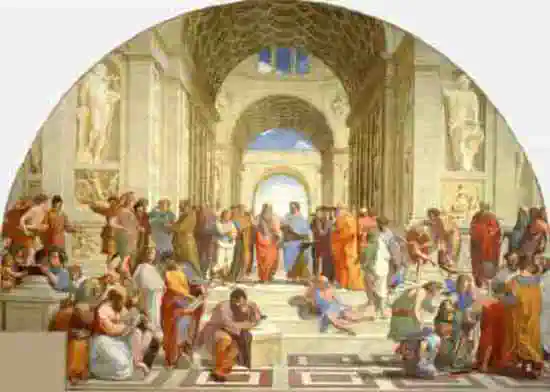
The Effectiveness of Knowledge. A Political Epistemology
How does knowledge affect us? What political significance do epistemological questions and insights have? My habilitation project investigates the force of knowledge
![The Effectivity of Knowledge: Workshop with Frieder Vogelmann in Frankfurt/Main [in German]](/public/event/2023/2023-05-11_ffm_workshop_ww/featured_poster_ww_hu_1f1634208750f491.webp)
![Podcasting Populism [in German]](/public/post/2021/2021-03-10_podcast/featured_podcast_hu_a4a8cf4261ad88cb.webp)
![Video of my talk “Fighting with Untruth. The Actuality of a Critique of Reason” [in German]](/public/post/2018/2018_11_ifs/featured_2018-11-28_ifs_5_hu_9d022a8942d60cdf.webp)


